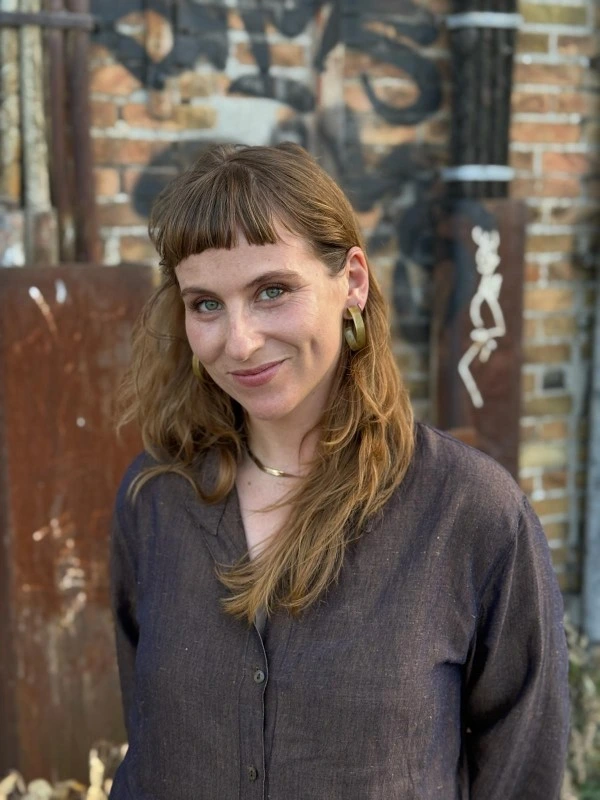
PhD, Yeast Synthetic Biology
Emma Hoch-Schneider received her PhD in yeast synthetic biology from the Technical University of Denmark’s Novo Nordisk Foundation Center for Biosustainability. Her PhD research focused on engineering microbial biosensors to monitor pharmaceutically relevant compounds and odorants important for food technology. As a postdoctoral researcher, she is expanding this biosensing toolbox to non-model yeasts with applications in planetary health and sustainable bioproduction. Emma has also been an active volunteer in Copenhagen’s biotechnology entrepreneurship community for several years, organizing talks and startup academies. Outside of the lab, she enjoys hiking, fermentation projects, and illustration.
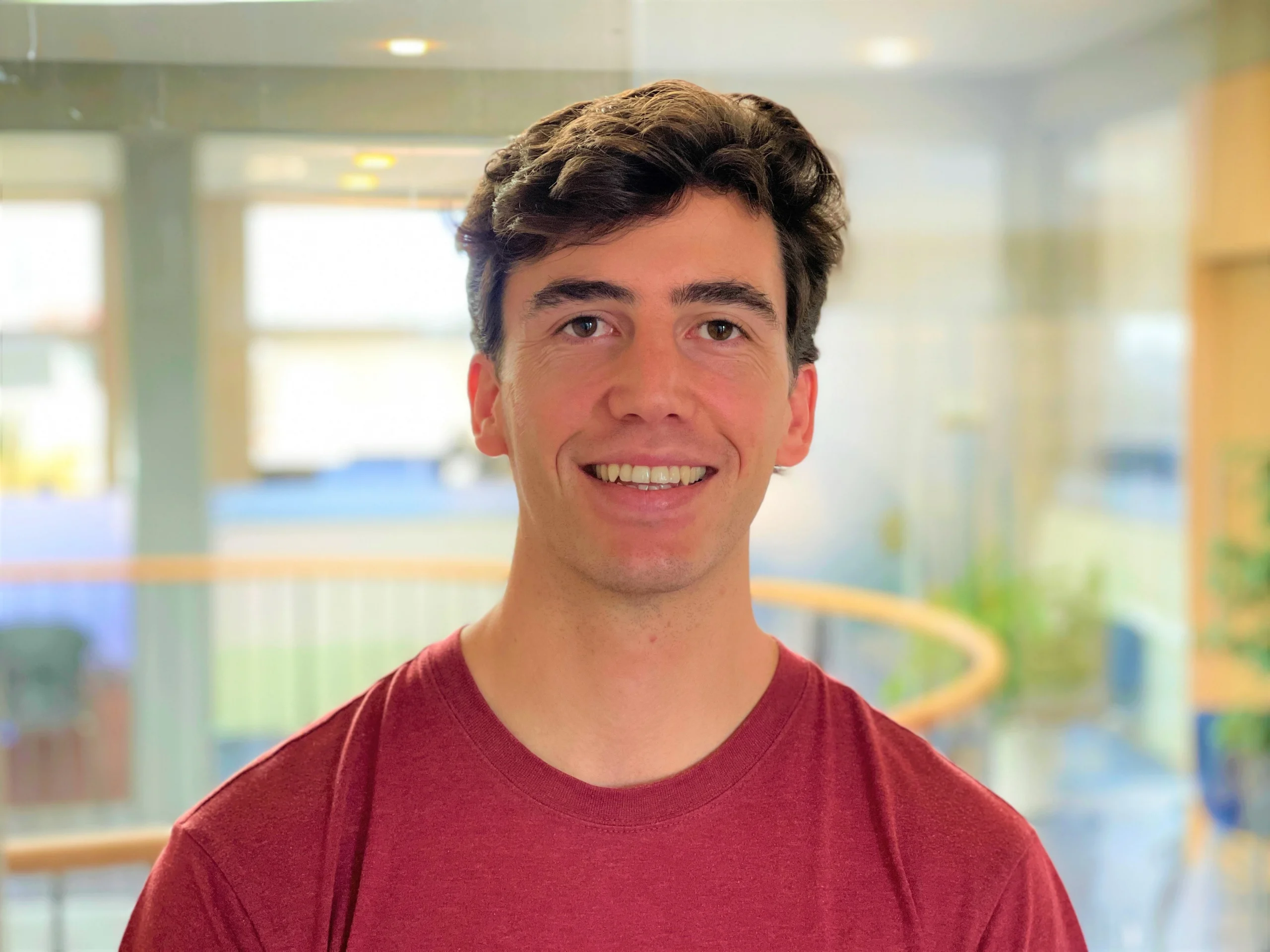
PhD, Food Chemistry, University of Copenhagen
Pedro is a biotechnologist by training (BSc, Pablo de Olavide University, Seville, Spain) with a MSc in Food Technology (Wageningen University, Wageningen, The Netherlands, 2020). He has always been fascinated by food and how its quality is perceived and measured. Food security and its importance across countries drives his personal mission of making our planet and our societies more food secure.
This led him to pursue a PhD in Food Chemistry in the Department of Food Science at the University of Copenhagen, which he completed in July 2025. During his PhD, he developed novel analytical methods to better measure off-flavors in aquaculture products. Farmed aquatic animals are generally perceived with a lower flavor quality compared to their wild counterparts. This is a huge problem for producers because farmed fish cannot be sold directly from production systems. This is caused by “specific” off-flavors dwelling in these farming systems that accumulate in fish during production. He has now started a postdoc, where he is studying meaty aroma generation through fermentation to improve the overall flavor quality of plant-based meat alternatives. See, all around flavor.
Pedro’s career goal is to use his knowledge and skills to help food companies and producers improve the quality assessment of their products, through product optimization or the development of easier and quicker analytical methods/techniques for their analyses. He aspires to create a team that can provide solutions across several of the most important flavor issues worldwide.
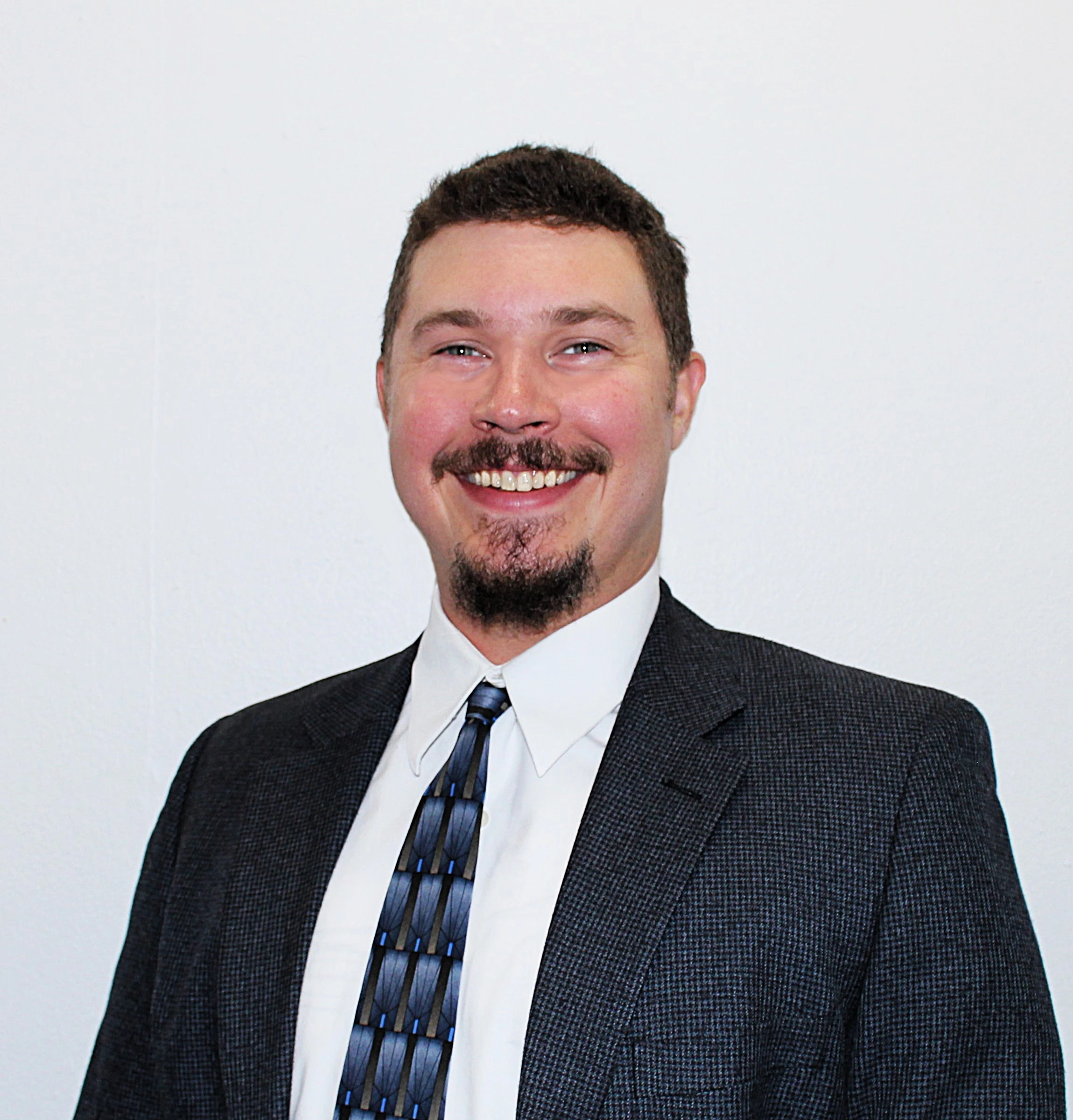
PhD, Biological Systems Engineering
Ian is a research engineer dedicated to improving the sustainability and circularity of food and materials production industries to reduce associated impacts on environmental and societal health. His research in the Bioenvironmental Engineering lab at UC Davis focuses on organic waste (food and manure) management and biofertilizer production utilizing anaerobic digestion and solid-liquid separation technologies. He is passionate about taking promising cutting-edge bench and lab scale research solutions and scaling them to pilot and full scale to ensure their adoptability by existing industries.
Ian earned his Bachelor of Science in Electrical Engineering from California Polytechnic University, San Luis Obispo, focusing on automation and helping lead the campus aquaponics club. He then worked in the Bioproducts Research Unit at the USDA Western Regional Research Center on bioplastics production, nutshell and hull pyrolysis, and techno-economic analysis. During his time at UC Davis, he has completed his Master of Science and is currently a PhD candidate in Biological Systems Engineering under the guidance of his mentor, Ruihong Zhang
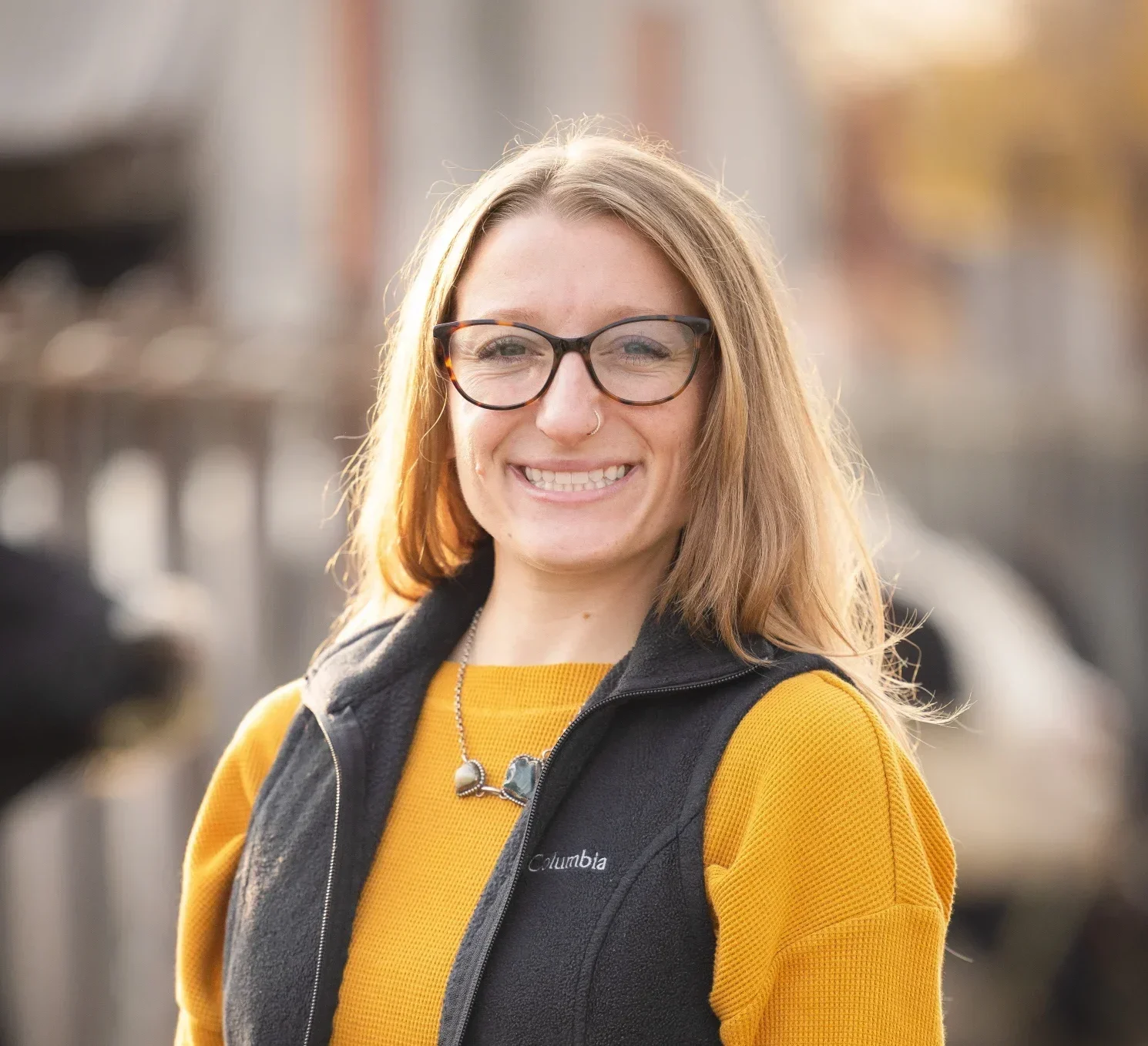
PhD, Animal Biology
Tana Jo Almand, M.S., is a Ph.D. candidate in Animal Biology at UC Davis, studying under Dr. Fabio Lima in the Department of Population Health and Reproduction at the School of Veterinary Medicine. Her research focuses on reducing antibiotic use in dairy cows while maintaining animal health and welfare. Using machine learning, she develops tools to incorporate cow-level information into treatment decisions, helping producers identify low-risk animals and improve selective dry cow therapy practices. Prior to her doctoral studies, she managed a dairy diagnostics laboratory in California’s Central Valley, leading disease investigations and producer support. She earned her M.S. in Animal Biology from UC Davis, where she studied male porcine reproduction, and her B.S. in Animal Science with a minor in Entrepreneurship from the University of Nebraska–Lincoln. She is also a recipient of the California-Denmark Innovator Fellowship, funded by the Novo Nordisk Foundation and the Office of UC Investments, through which she looks forward to further developing her entrepreneurial skills and learning how to translate laboratory research into industry applications.
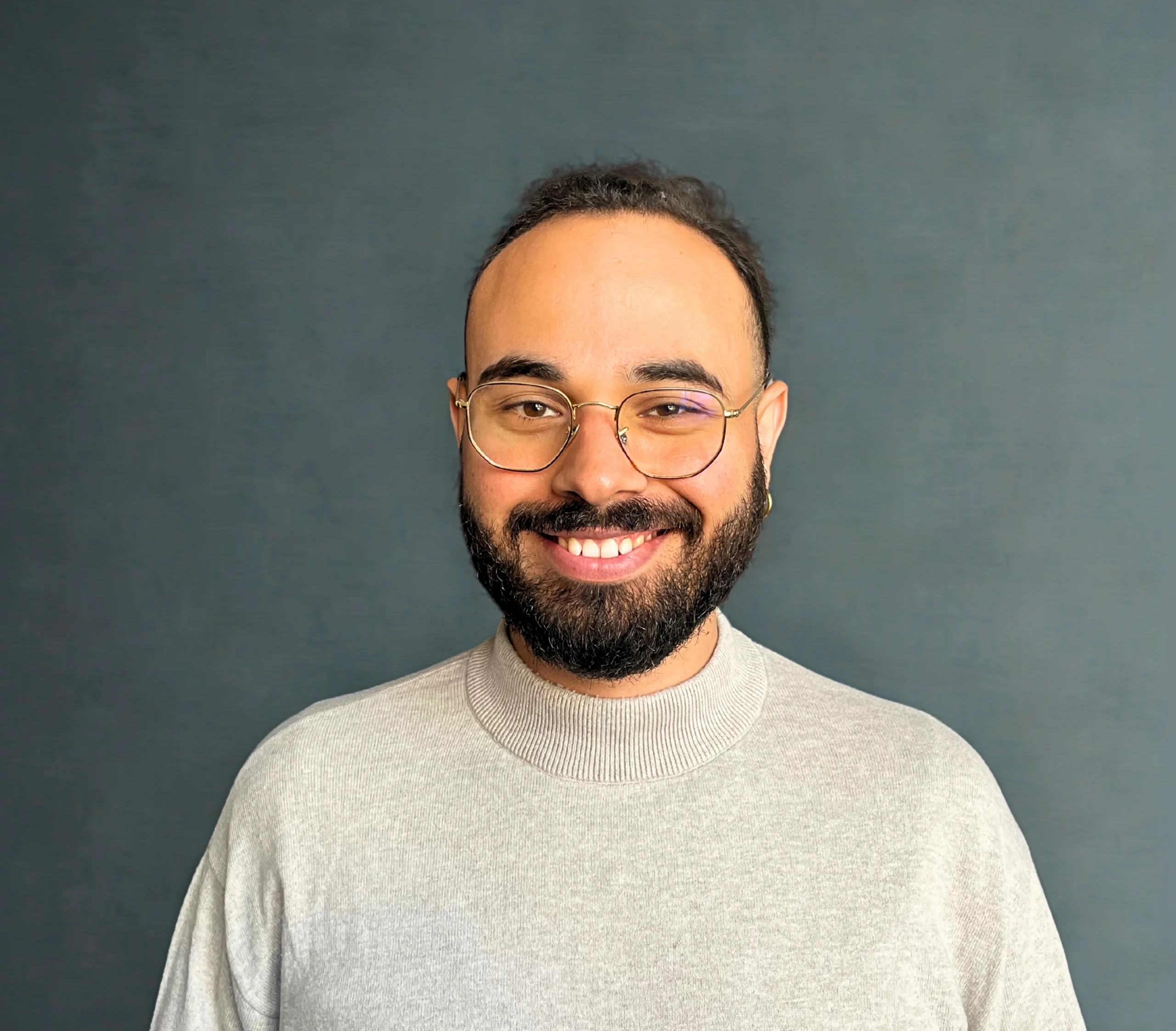
PhD, Analytical Chemistry
Samir Hobloss is a postdoctoral researcher at DTU Food, where he leads research into the nutritional dynamics of vitamin D in farmed and wild salmon. His work combines analytical chemistry, marine science, and public health to better understand how environmental and dietary factors influence vitamin D availability, crucial for populations in low-sunlight regions. His current project investigates how light exposure in marine ecosystems may naturally enhance vitamin D levels in fish, with implications for sustainable aquaculture and human nutrition.
With a background in engineering, Samir has consistently pursued research that bridges chemistry with real-world health challenges. From exploring natural sweeteners in plants to advancing nutritional strategies through marine research, his work is driven by a passion for science that improves lives.
He brings a cross-cultural perspective shaped by academic and professional experiences across several countries and is especially motivated by opportunities that connect research with innovation and meaningful impact in health and sustainability.
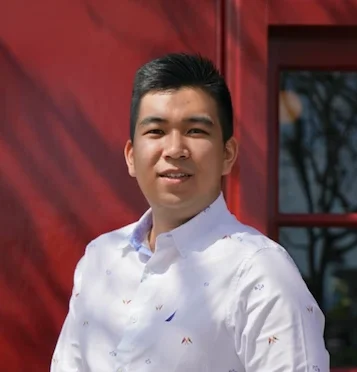
PhD, Agricultural and Environmental Chemistry
Lik Xian Lim, Ph.D. is a postdoctoral researcher at the University of California, Davis, with expertise in sensory science and its application to food and beverage innovation. He earned his Ph.D. in Agricultural and Environmental Chemistry at UC Davis, working with Dr. Anita Oberholster and Dr. Jean-Xavier Guinard to investigate the threshold perception of smoke taint in wine. By integrating chemical analysis with sensory evaluation, his research has helped the wine industry better detect and mitigate smoke impact amid rising wildfire risk.
His portfolio spans wine, coffee, and alternative proteins. An expert in both wine and coffee, Lik has led studies on consumer acceptance, quality evaluation, and descriptive analysis of wines, including mouthfeel characterization, and optimized brewing methodologies at the UC Davis Coffee Center to enhance coffee’s flavor, aroma, and texture. His cross-category expertise enables him to translate sensory insights across premium beverages and other food sectors.
In his current work on cultivated meat and meat alternatives, Lik bridges technical product development with consumer expectations, placing sensory evaluation at the forefront of innovation to ensure healthier, sustainable, and market-ready foods.
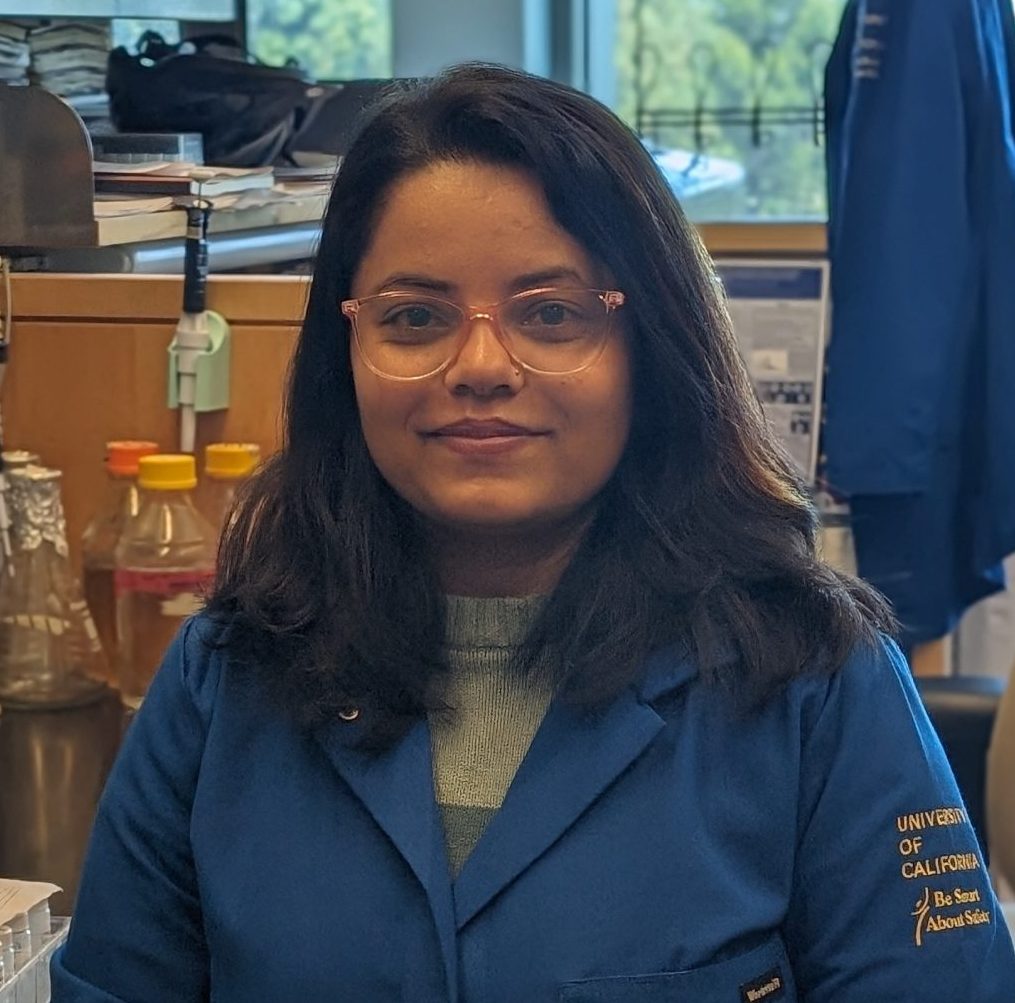
PhD, Plant Sciences
Samhjana is a Ph.D. candidate in Plant Sciences (Horticulture and Agronomy), with a minor in Biotechnology, at the University of California, Davis. Her research focuses on plant genomics, disease resistance, and sustainable agriculture, using advanced genome assembly, RNA-seq, and bioinformatics to identify resistance genes that can strengthen global food security. Beyond the lab, she is the Founder President of Women’s Initiative for Sustainable Agriculture and Environment (WISE Nepal), where she leads women-focused innovation and “waste-to-wealth” programs that empower rural communities. She is passionate about climate resilience, bio-based and circular economies, and biotechnology-driven products that translate scientific innovation into real-world impact. She feels fortunate to be part of the IIFH Translator Circle, where she can connect my research, entrepreneurship, and community work to help shape more sustainable food systems.
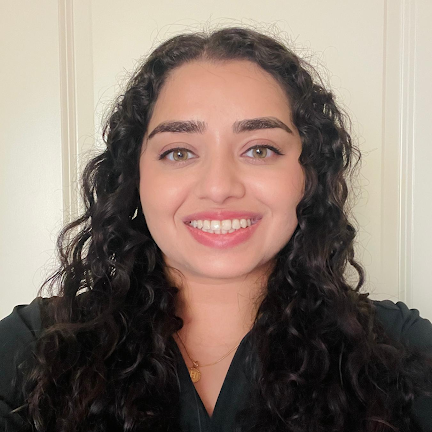
PhD, Nutritional Biology
Hareem Zahid is a PhD student in the Graduate Group in Nutritional Biology at the University of California, Davis, in the Department of Nutrition, under the mentorship of Dr. Roberta Holt and Dr. Andrew Hall. Her research examines how dietary components and whole foods influence zinc absorption, bioavailability, and cardiometabolic health across the lifespan, with particular emphasis on protein source, phytic acid, and mineral bioavailability, using controlled human nutrition interventions and stable isotope tracer methodologies.
She holds a Bachelor of Science in Nutrition Science from the University of California, Davis, and a Master’s degree in Health Policy and Law from the University of California, San Francisco. During her doctoral training, Hareem has led and contributed to interdisciplinary, federally and foundation-funded human studies evaluating zinc metabolism from animal- and plant-based protein sources in older adults, adolescents, and individuals of childbearing potential. Her work integrates dietary interventions with assessments of cellular zinc status, vascular function, cardiometabolic biomarkers, and dietary modeling across diverse populations.
Her research is driven by an interest in understanding how food-based dietary strategies can improve micronutrient adequacy and cardiometabolic health through human-relevant mechanisms, and how these insights can be translated into culturally grounded dietary guidance and nutrition policy in both U.S. and global contexts. Through the Food & Health Translators Circle, she aims to strengthen connections between academic research, the food and agriculture industry, and public health practice by translating nutrition science into actionable, industry-relevant solutions.
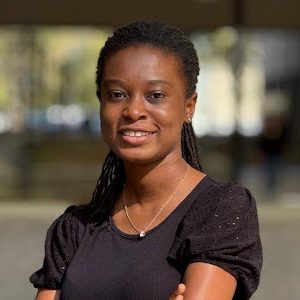
PhD, Nutritional Biology
Christabel Domfe is a PhD candidate in the Au Lab, Department of Nutrition. Her research focuses on the development, validation, and translation of innovative tools for assessing dietary intake. Throughout her graduate training, first at the University of Georgia, where she earned her Master of Science degree in Foods and Nutrition, and now at UC Davis, she has collaborated with interdisciplinary teams to validate innovative dietary assessment tools, including wearable sensor cameras for use in populations with limited literacy and numeracy skills. She is currently working on a mobile application that leverages artificial intelligence (AI) for dietary assessment.
Her research is driven by the understanding that dietary assessment is foundational to nutritional epidemiology and public health nutrition, informing federal programs and shaping dietary guidelines. Her goal is to harness technological innovations such as wearable sensors and AI-driven dietary recognition to enhance precision in dietary data collection and bridge the gap between technology and public health nutrition.
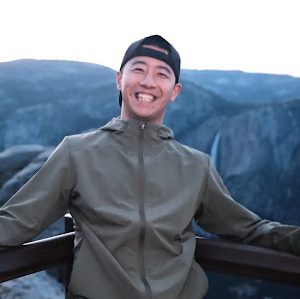
PhD, Nutritional Biology
Mengjiang (Troy) Huang is a PhD candidate in the Newman Lab in the Department of Nutrition at the University of California, Davis. His research focuses on precision nutrition, with an emphasis on lipid metabolism and cardiovascular disease, using advanced quantitative and lipidomic modeling approaches.
He earned his master’s degree in Biomedical Engineering from Cornell University and is currently pursuing doctoral training at UC Davis. During his PhD, he has collaborated with interdisciplinary teams, including researchers at the USDA Western Human Nutrition Research Center (WHNRC), on human nutrition studies aimed at advancing precision nutrition.
His current work applies lipidomic and metabolomic analyses to individuals with pre-clinical risk of atherosclerosis, with the goal of identifying novel biomarkers for improved disease detection and risk stratification. His research is driven by an interest in the complexity of individual metabolism as a foundation of human physiology and health, and aims to translate molecular insights into strategies for disease prevention, precision nutrition, and public health nutrition.
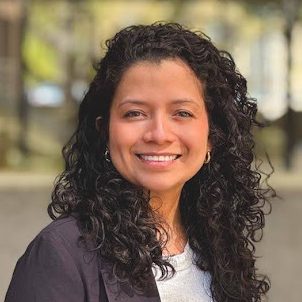
PhD, Nutritional Biology
Genesis Guerra-Gaitán is a PhD candidate in the Graduate Group in Nutritional Biology at the University of California, Davis, in the Department of Nutrition. Her research examines how dietary polyphenols and other bioactive food components influence cardiovascular health, with emphasis on inflammation, lipid-mediated processes, micronutrient bioavailability, and gut-derived metabolism, using controlled human nutrition interventions.
She holds a Bachelor of Science in Food Sciences from Escuela Agrícola Panamericana, El Zamorano, and a Master’s degree in Human Nutrition from Louisiana State University. During her doctoral training, Genesis has led and contributed to industry- and foundation-funded human studies evaluating the cardiometabolic effects of bioactive-rich foods, including oils, legumes, and fruits. Her work integrates dietary interventions with assessments of platelet function, lipid-derived inflammatory mediators, mineral absorption, gut microbial metabolites, and vascular function across diverse populations.
Her research is driven by an interest in understanding how bioactive components of whole foods influence early cardiometabolic risk through human-relevant mechanisms, and how these insights can be translated into culturally relevant dietary strategies for disease prevention.
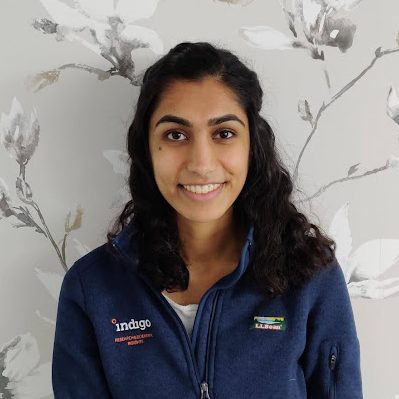
PhD, Microbiology
Shruti Parikh is a PhD Candidate at UC Davis working at the intersection of food systems and environmental microbiology. After graduating from the University of Washington with a B.S. in Environmental Science, she worked as a Research Associate at Indigo Agriculture, where she developed novel microbial technologies for agricultural applications. Under the guidance of Dr. Christopher Simmons in the Department of Food Science & Technology, Shruti now studies how agricultural practices shape soil microbial communities and influence the degradation of bioplastic materials. While her dissertation work focuses on the mechanisms of microbial degradation, her passion for problem-solving has also driven the expansion of this research to assess the impacts of persisting bioplastics on crop performance.
Beyond her dissertation, Shruti is motivated to push research a step further through stakeholder engagement and cost-benefit analyses such as technoeconomic evaluations of off-ground almond harvesting practices. She is particularly interested in bridging the gap between scientific discovery and application and aims to connect academic research with industry, policy, and entrepreneurial pathways to drive meaningful impact in food and health systems.
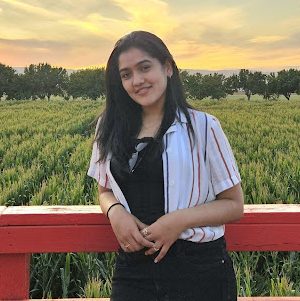
PhD, Chemistry & Chemical Biology
Riya Gogte is a Ph.D. student in the Department of Chemistry and Chemical Biology at the University of California, Davis. Her research focuses on understanding how changes in protein glycosylation influence human health, with a particular emphasis on glycan-mediated regulation of insulin signaling and metabolic pathways. Through the development of advanced mass spectrometry based analytical tools, she aims to uncover how glycosylation reshapes protein interaction networks and contributes to metabolic dysfunction. Riya’s work is driven by a strong interest in translating fundamental chemical insights into impactful applications. By integrating glycoproteomics, quantitative cross-linking mass spectrometry, and bioinformatics, her research seeks to illuminate previously inaccessible layers of cellular communication and identify novel molecular targets relevant to metabolic disease.
Prior to joining UC Davis, Riya completed a BS-MS dual degree in Chemistry at the Indian Institute of Science Education and Research (IISER), Tirupati. Her master’s thesis focused on the design and synthesis of novel inhibitors of ribonucleotide reductase, an enzyme with critical implications in cancer biology. This experience laid the foundation for her continued interest in chemical biology and translational research.
Across her academic journey, Riya’s research has consistently centered on advancing human health through interdisciplinary science. She is particularly motivated to explore how analytical innovations can be translated into diagnostic, therapeutic, or screening tools.
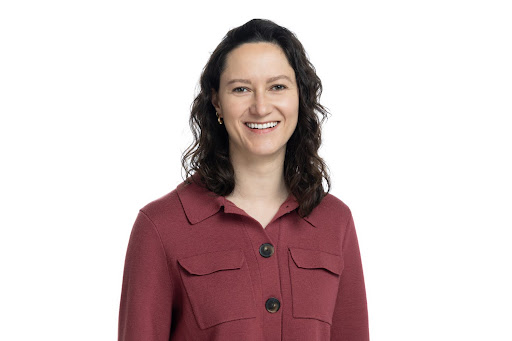
PhD, Biomedical Sciences
Postdoctoral Fellow, Department of Plant Pathology, UC Davis
Erin is a postdoctoral researcher whose work spans immunology, virology, molecular genetics, and bioinformatics to explore anti-viral innate immunity across all domains of life. Currently, she is Schmidt Science Postdoctoral Fellow in Dr. Pam Ronald’s lab at UC, Davis. Her main research project focuses on exploring plant genomic diversity to identify new viral resistance genes in plants, and then apply this knowledge to develop biological strategies that improve agriculture and food sustainability.
Erin completed her Biomedical Sciences PhD at UC, San Francisco in Dr. Joe Bondy-Denomy’s lab. There, she investigated an ancestral innate immune pathway in bacteria and how it works and co-evolves with co-evolves with bacterial viruses (phages). During this time, she discovered a viral sponge protein that sequesters many distinct immune signals, including cGAMP, which functions in human, animal, and bacterial immunity. This work was recognized by the Harold M. Weintraub Graduate Student Award, alongside the UCSF Discovery and Fletcher Jones Fellowships for excellence in research, and has led to 6+ peer reviewed publications and a patent. In the long-term, Erin’s goal is to expand our understanding of microbiology and plant biology, and use these fundamental insights to develop meaningful, real-world applications that improve planetary health.
Beyond research, Erin is a committed advocate for women’s empowerment at the local and global scale. During her PhD, she co-directed the trainee-led organization Immunologists for Gender Equity to support underrepresented gender minorities in the Bay Area pursue STEM research careers. She has also been involved with the non-profit Women’s Global Empowerment Fund for over 15 years to support women in Northern Uganda build sustainable livelihoods through multifaceted programming, including agricultural initiatives.
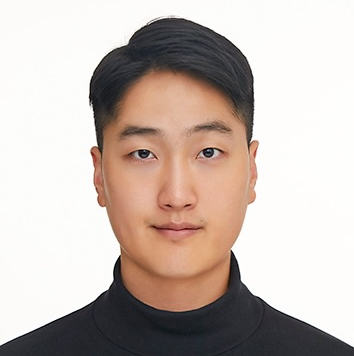
Postdoctoral Scholar at Dr. Melanie Gareau’s Lab at Department of Anatomy, Physiology, & Cell Biology at UC Davis Vet Med
Research Interest: Early-Life Nutritional Immunity and Microbiota-Gut-Brain Axis
I am a postdoctoral scholar at the University of California, Davis School of Veterinary Medicine, where my research focuses on how early-life nutrition and enteric infection shape the microbiota–gut–brain axis and influence long-term gut health, immune and neurodevelopmental health. I hold a Ph.D. in Animal Biology from UC Davis and a B.S. in Biochemistry from Texas Tech University.
My work integrates gastrointestinal physiology, immunology, and microbiome, with an emphasis on developing translational nutritional interventions, including milk-derived bioactives, bacterial postbiotics, and agricultural byproduct-enabled supplements. I’ve used neonatal mouse and piglet models to understand how early-life nutrition and microbiota regulate gut function, immune maturation, and neuroimmune outcomes.
In parallel with my academic training, I have hands-on experience managing an industry-scale smart poultry farm, where I applied science-based nutrition, biosafety, and data-driven decision-making to optimize animal health, welfare, and production efficiency. Together, these experiences drive my goal of translating rigorous biological research into practical, scalable nutrition and health solutions with real-world impact.
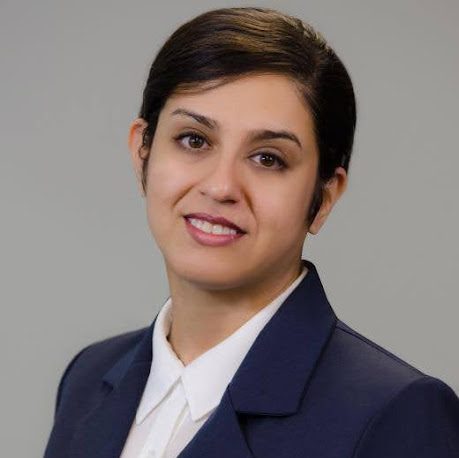
PhD, Agricultural & Biological Engineering
Associate Professor of Cooperative Extension | UC Davis
Farzaneh Khorsandi is an Associate Professor of Cooperative Extension in the Department of Biological and Agricultural Engineering at the University of California, Davis. Her work focuses on agricultural safety and health, with particular emphasis on off-road vehicle safety, including all-terrain vehicles (ATVs) and utility terrain vehicles (UTVs), as well as the interaction between equipment design, load conditions, and rollover risk in agricultural settings.
Her research integrates engineering analysis, field experimentation, and safety standards evaluation to better understand injury mechanisms and to develop evidence-based recommendations that improve worker safety. A major component of her work involves studying vehicle stability, head injury risk, and the effects of liquid and solid loads on ATV performance. Through this work, she collaborates closely with researchers, industry partners, and safety professionals to inform standards, training materials, and outreach programs.
As a Cooperative Extension specialist, Dr. Khorsandi is committed to translating research findings into practical tools and guidance for farmers, equipment operators, manufacturers, and policymakers. Her extension efforts include developing educational resources, participating in national and regional agricultural safety initiatives, and supporting multidisciplinary collaborations aimed at reducing injuries and fatalities in agriculture.
Beyond her research and extension activities, Dr. Khorsandi actively contributes to national agricultural safety networks and working groups and is dedicated to mentoring students and early-career professionals. Her long-term goal is to advance agricultural engineering solutions that enhance safety, sustainability, and health outcomes in agricultural and rural communities.
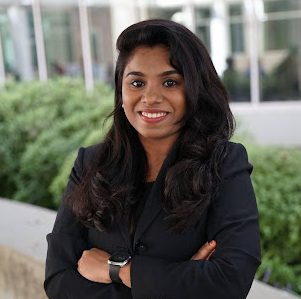
MS, Forensic Science
Abbibrinda Senthil is a master’s student in Forensic Science at the University of California, Davis, specializing in DNA analysis and molecular biology. She holds a postgraduate diploma in Humanitarian Forensics from the National Forensic Sciences University, India, and a B.Tech. in Biotechnology with a minor in Fisheries Science from ICAR Fisheries University, India.
She is currently a Business Development Fellow with the Mike & Renée Child Institute for Innovation and Entrepreneurship at UC Davis, where she works at the intersection of science, innovation, and health systems. In this role, Abbibrinda collaborates with faculty innovators, startup teams, and industry mentors to translate research into real-world applications, contributing to venture development, market discovery, and commercialization strategy. Her work focuses on developing science-driven solutions with the goal of improving sustainability and public health outcomes.
In addition to her academic and innovation work, Abbibrinda has demonstrated strong leadership in student governance, serving as Secretary of the Chancellor’s Graduate & Professional Student Advisory (CGPSA) Board at UC Davis, where she contributed to student representation and academic policy initiatives. She works on interdisciplinary research projects within the Centre for Health and Environment (CHE) and the UC Davis Orthopaedics Lab, focusing on the health impacts of environmental exposures and biomedical research with relevance to human health and environmental outcomes.
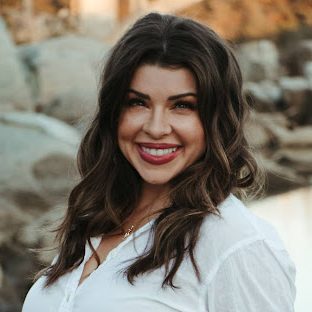
MBA Candidate
Professional Focus: Food & Nutrition Innovation, Health Systems Strategy
Chelsea Thomas is a food entrepreneur, registered nurse and STEM-designated MBA candidate in the UC Davis Sacramento program, with a background in global health and systems-based approaches to human and environmental well-being. She holds a Bachelor of Science from the University of California, Berkeley in Conservation and Resource Studies, where her academic focus centered on global health, nutrition, and sustainable resource systems.
Chelsea is the co-founder and CEO of Pep Pops, a functional nutrition startup developing high-protein frozen snacks designed to support active, health-conscious lifestyles. Her work focuses on bringing evidence-informed nutrition principles into accessible, consumer-ready products that bridge the gap between health science and everyday behavior.
Through her MBA training, Chelsea is building expertise in strategy, operations, and scaling mission-driven ventures, with a particular interest in food systems, preventive health, and cross-sector collaboration. Her broader goal is to contribute to food and health innovations that are both commercially viable and meaningfully improve population health outcomes.
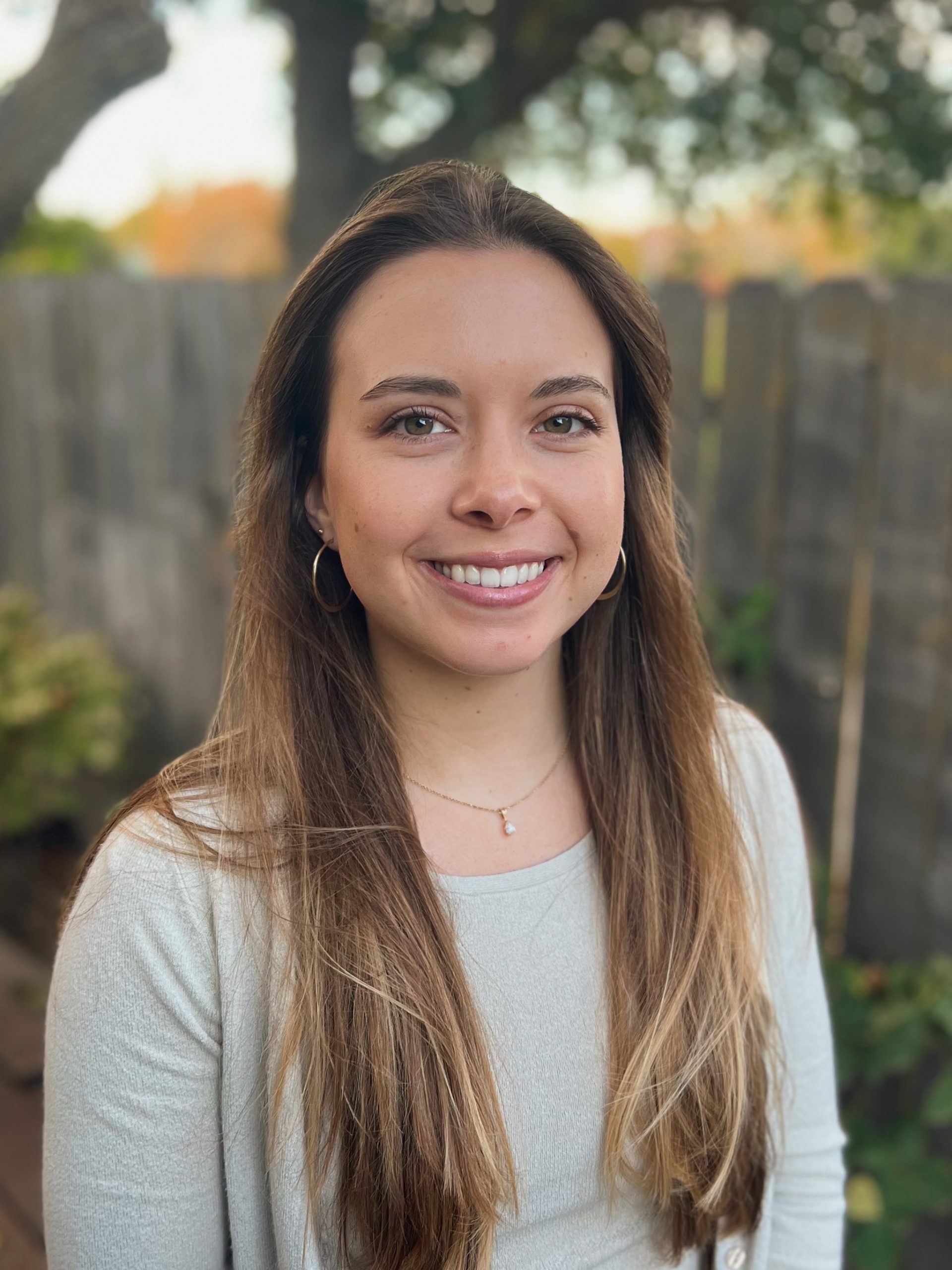
PhD, Nutritional Biology
Grace is passionate about improving metabolic health outcomes through innovative approaches in food, nutrition, and science. Her clinical foundation as a Registered Dietitian, combined with sensory research experience with the U.S. Army, inspired her to pursue a PhD in Nutritional Biology. Under the mentorship of Dr. Fawaz Haj, her research explores the cellular and molecular mechanisms driving metabolic diseases, with a focus on diabetes and its complications.
With a strong interest in business development and entrepreneurship, Grace is actively involved in the Designated Emphasis in Biotechnology and has participated in several leadership development programs at UC Davis. She is committed to bridging the gap between interdisciplinary research and real-world applications, with the ultimate goal of translating scientific discoveries into impactful solutions for metabolic health challenges.
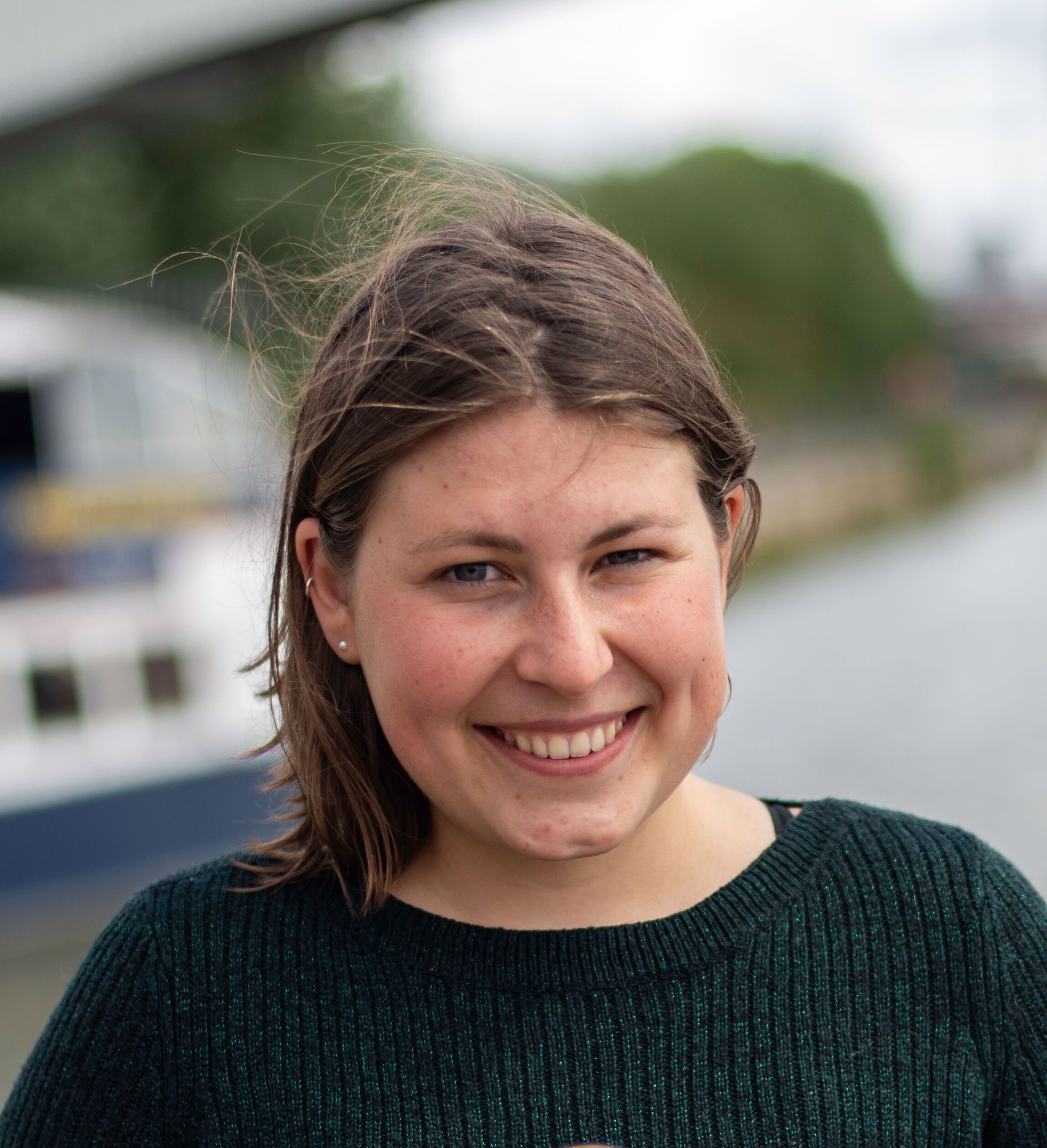
PhD, Environmental Science
Can we redefine how we grow, process, consume, and dispose of food to optimize sustainability? This question represents the pillar of Sarah’s research, which addresses the significant yet mostly untapped potential of food loss and waste solutions for the design of sustainable, circular, and resilient food systems. As a problem-oriented postdoctoral researcher, she focuses on identifying, quantifying, and mapping the impact of food loss and waste streams. She is particularly interested in assessing the environmental and social dimensions of food waste reduction policies and technology adoption, and has collaborated with major partners, including ReFED, a leading US non-profit.
Drawing from an interdisciplinary background in biochemistry, environmental policy, sustainable design, and industrial ecology, Sarah brings in a systems-thinking mindset across the food supply chain to the IIFH Fellowship Program. Sarah is also a keen science communicator and innovator. She has written for the Food Loss and Waste Collaborative and was featured in The Guardian and Chemistry World. During her time as a student at Imperial College London in the UK, she ran a food co-operative at her university campus, and won several pitches, both individually and as a team, including the Dopper Changemaker Challenge and the EIT Sustainable Food Systems Entrepreneurial Summer School.
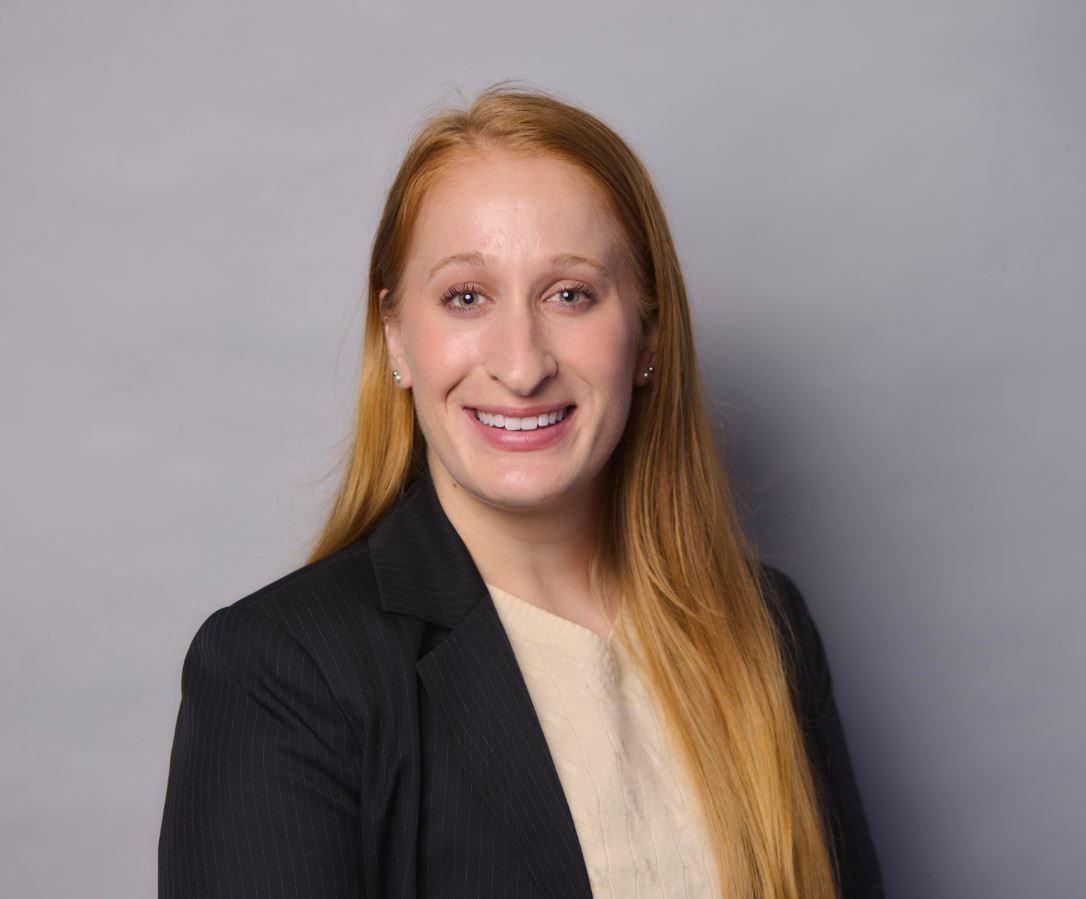
PhD, Biomedical Engineering with Designated Emphasis in Biotechnology
Katie is a Ph.D. candidate in Biomedical Engineering working in the Department of Chemical Engineering. Her current work involves the production of recombinant proteins using plant and fungal systems for low-cost, scalable, and sustainable protein manufacturing methods. While her background is in traditional medical therapeutics, her experience in the McDonald/Nandi Lab also taught her how bioprocessing can valorize agricultural waste to produce alternative protein solutions in food technology.
In addition to her research, Katie is also in the Designated Emphasis in Biotechnology (https://deb.ucdavis.edu/) and a Business Development Fellow (https://innovate.ucdavis.edu/business-development-fellowship-program). She knows that translating her scientific experience beyond academia requires understanding and collaboration in the business world and has pursued activities that allow her to build interdisciplinary bridges and develop skills not taught in traditional Ph.D. programs. She also enjoys scientific communication and volunteering in STEM outreach programs to engage with future students and the public alike to promote science and education opportunities. She hopes to use the skills she has cultivated to build a career in biotechnology and contribute to the food and health system, one where her passions for science, communication, business, and policy can create meaningful change in the world.

PhD, Plant Biology with Designated Emphasis in Biotechnology
Designated Emphasis in Biotechnology
Alex has a strong passion for generating revolutionary technologies that provide creative solutions to problems in agriculture, public health, and our changing environment. This motivation is manifested through her PhD work in Plant Biology in Dr. Zerbe’s lab, where she is also pursuing a Designated Emphasis in Biotechnology. In her research, she investigates how plants produce the metabolites we regularly use in food and medicine to create improved crops and bioproducts. She uses genomics, metabolomics, protein biochemistry, and structural biology approaches to produce synthetic biochemical pathways in plants and microbes. Alex was awarded the NIH MCB T32 Training Grant for her work.
Alex completed her undergraduate degrees with Honors in Environmental Science (B.S.) and Environmental Economics and Policy (B.S.) at the University of California, Berkeley in 2021. She actively strives to unite novel scientific discovery with entrepreneurship and commercialization of biotechnologies in order to positively impact society. Alex also recognizes the importance of translating scientific findings to our broader community and is involved in multiple outreach and scientific communication organizations at UC Davis. She is excited to continue to make meaningful contributions that help foster a healthier, more sustainable, and equitable food system through the Innovator Fellowship.
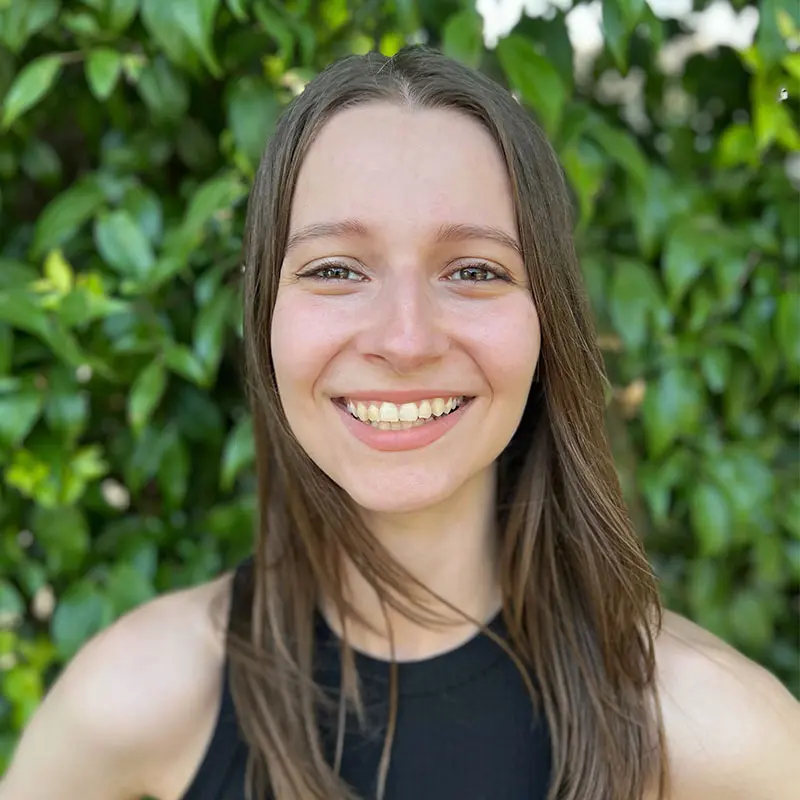
PhD, Plant Biology with Designated Emphasis in Biotechnology
Designated Emphasis in Biotechnology
Anna is a dedicated researcher and advocate for sustainable agriculture, driven by a passion for innovation and social impact. As a PhD candidate in Plant Biology with a Designated Emphasis in Biotechnology at UC Davis, she focuses on unraveling the biochemical and gene regulatory networks underlying specialized terpenoid metabolism in medicinal and crop plant species under the guidance of Dr. Philipp Zerbe. Anna has discovered a new group of unique defense metabolites in maize with promising antimicrobial properties, offering an avenue for environmentally friendly alternatives to traditional chemical pesticides. Her passion for science has made her a recipient of several awards, including the Dean’s Mentorship Award, the Eric and Louise Conn Biochemistry Award, and the Stocking Fellowship.
Anna is also a committed advocate for environmental stewardship and social equity, demonstrated by her contributions in launching and leading Project Amazon Link. This initiative, funded by UNU-BIOLAC, UC Davis Global Affairs, and the College of Biological Sciences, connects professionals from UC Davis and South American universities to discuss biotechnology approaches for global agricultural improvement and engage in collaborative problem-solving. By applying her expertise in plant biotechnology to create real world solutions, Anna aligns her efforts with the United Nations Sustainable Development Goals and is dedicated to advancing a more sustainable and equitable future.
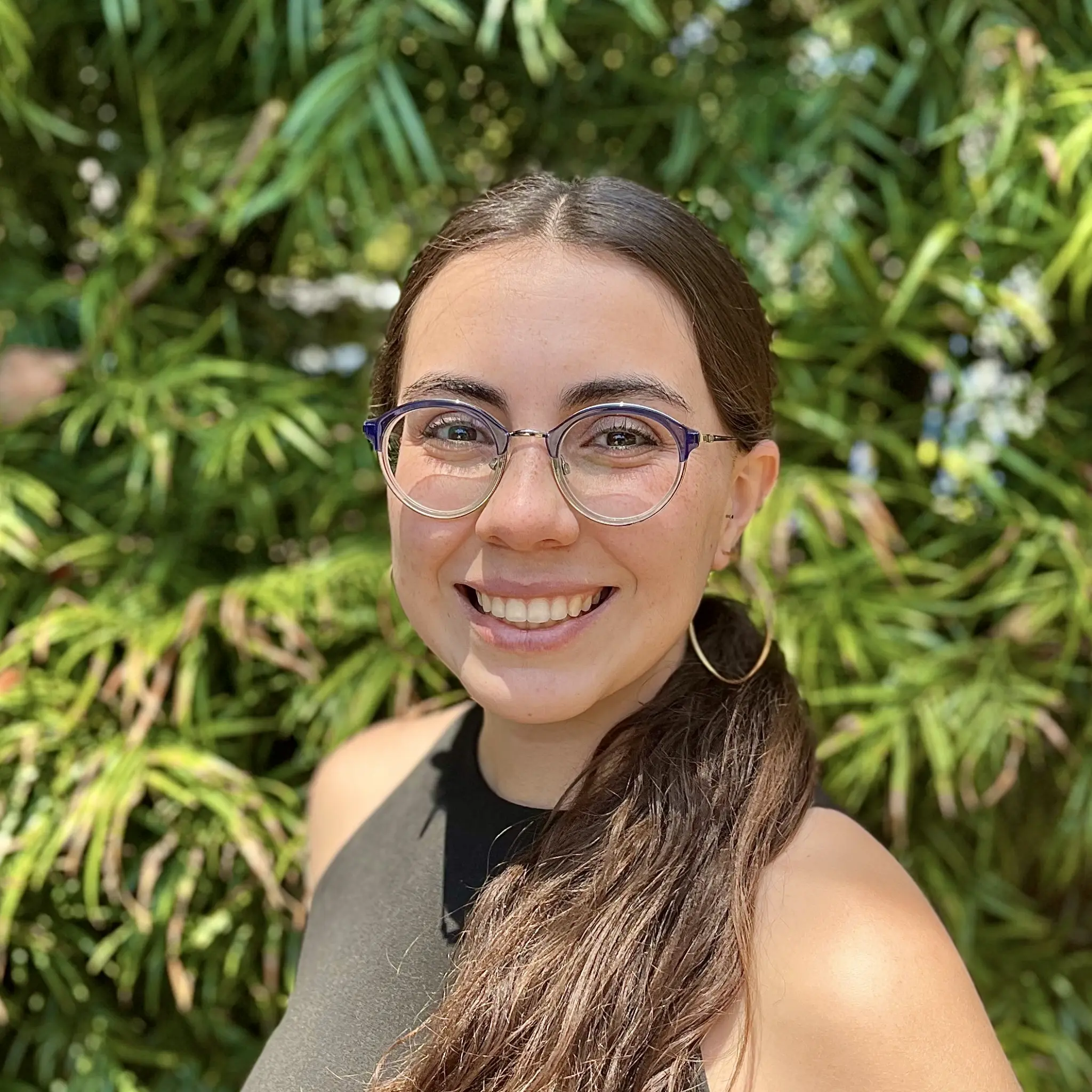
PhD, Plant Biology with Designated Emphasis in Biotechnology, UC Davis
Designated Emphasis in Biotechnology
Amber Flores has always sought out experiences that unite her passion for science with her interest in business and entrepreneurship. Her current desire to improve food systems and agriculture is manifested through her PhD work in Plant Biology, where she is using CRISPR/Cas9 gene editing to improve nitrogen use efficiency and carotenoid content in lettuce to improve it’s sustainability and nutritional value.
Amber’s skillsets in molecular biology and gene editing are complemented by demonstrated commitment to innovation and entrepreneurship. She’s completed the UC Davis Business Development Fellows Program, is pursuing a Designated Emphasis in Biotechnology, and has already completed a 3-month commitment with Ohalo Genetics, a plant breeding startup. Here she not only contributed scientifically but also to the team organizational structure and protocols. She is a recipient of the prestigious National Science Foundation’s Graduate Research Fellowship (NSF GRFP), and is engaged with PREP@UC Davis, a program that assists students with minority backgrounds to engage with biomedical research and related programs.
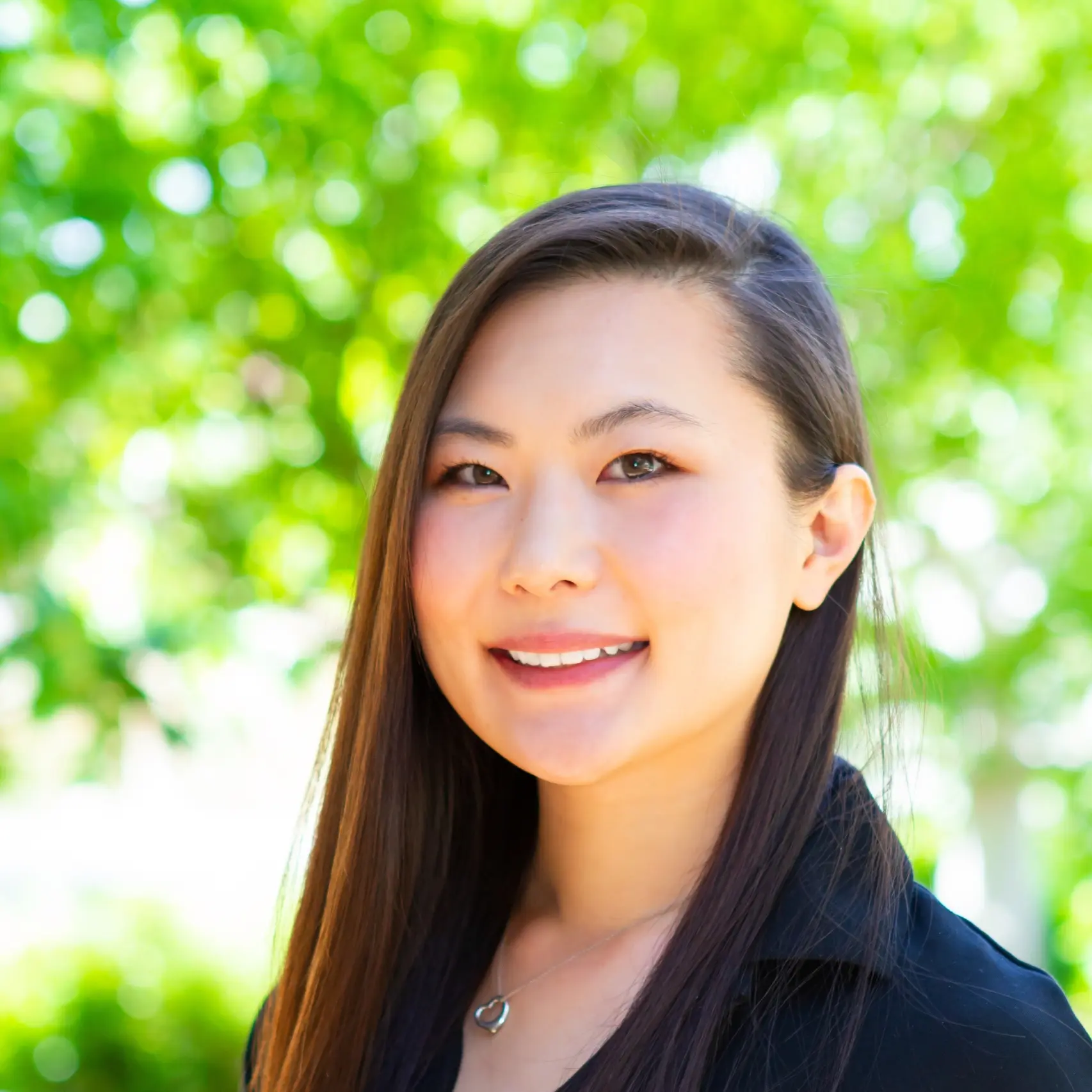
PhD, Food Science, UC Davis
Department of Food Science and Technology
Minami is an enthusiastic food scientist dedicated to fostering innovation and shaping sustainable, healthy, and environmentally beneficial future food systems. With a foundation in wine microbiology, her earlier focus on studying immobilization supports paved the way to transition into the realm of cellular agriculture. This unique journey propelled her towards pioneering and filing intellectual property for the development of edible mycelium microcarriers, aimed at facilitating the proliferation of animal cells crucial in cultivated meat production. She now researches the edible microcarriers for her Ph.D. thesis, guided by Dr. David Block, and as part of the Cultivated Meat Consortium to revolutionize food technology for a more sustainable and healthier future.
Additionally, Minami plays a pivotal role as the Co-founder and Director of Cultivated Foods at a university spinoff company called Optimized Foods, which harness the power of mycelium to create high margin, delicious food alternatives. Her journey, representing women in STEM and entrepreneurship, perfectly aligns with being a fellow at Supply Change Capital, and resonates deeply in her quest to revolutionize food systems through innovative solutions that prioritize both human health and the environment.
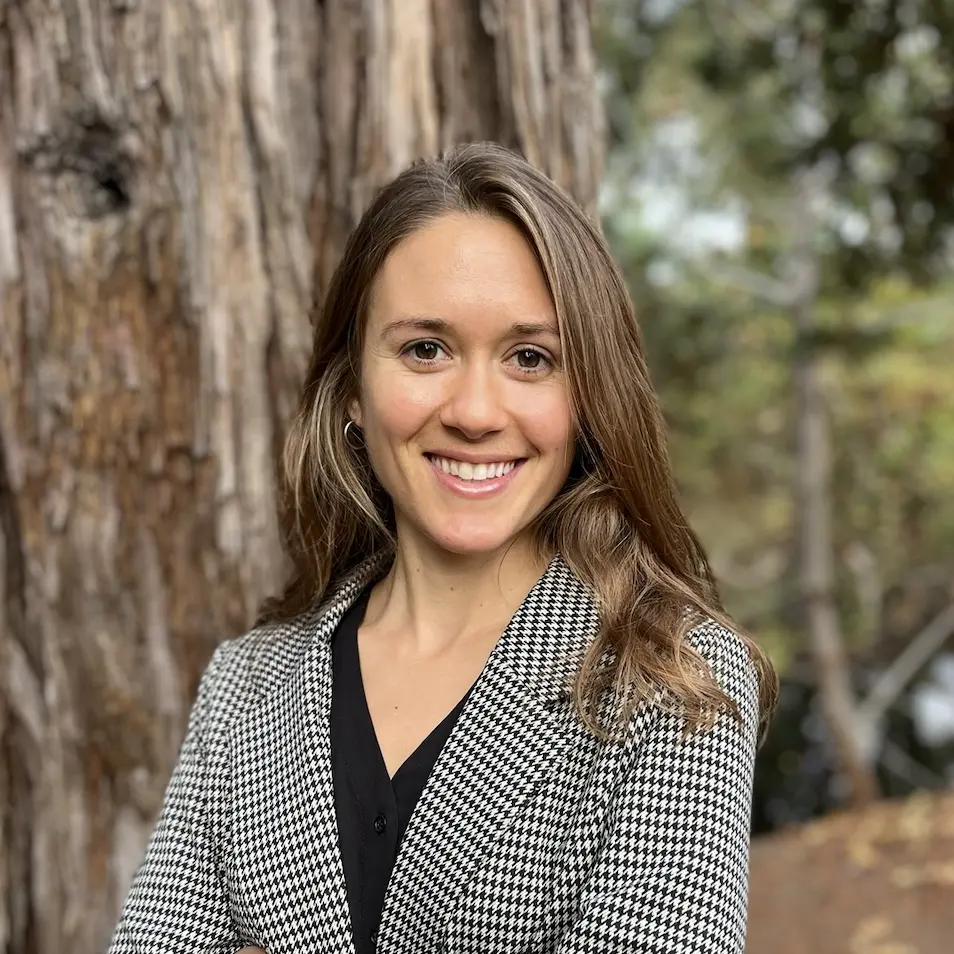
PhD, Food Science, UC Davis
Department of Food Science and Technology
Kasey’s mission is to advance human and livestock health through precision nutrition targeting of the gut microbiome. Kasey’s research aims to revalorize an abundant dairy cheese production byproduct to promote human health. Through collaborations with the UC Davis Milk Bioactives Group, Kasey is specifically studying how an enriched cheese production byproduct colloquially known as ProCream (a portmanteau of “protein” and “cream”) can modulate Bifidobacteria growth and metabolic circuitry, which holds exciting potential to be applied to promote gut and brain health and development in infants. Application of Kasey’s work could also significantly reduce food waste and offer increased economic returns to dairy producers for their milk.
Kasey brings multidisciplinary academic and industry expertise in biochemistry (B.S., Biola University), wine chemistry (Asti Winery), animal science (Ph.D., Cornell), and pediatric gastroenterology (postdoc, Vanderbilt University Medical Center). Kasey’s enthusiasm for agricultural sustainability, promoting human health, and effective science communication is evident in her social entrepreneurship initiatives. These include spearheading the Cornell Egg-Vengers and founding a 4-H youth program in Ithaca, NY. She is thrilled to be selected as an IIFH fellow and is eager to dovetail her dual passions for science and entrepreneurship to better serve and transform the world through food.
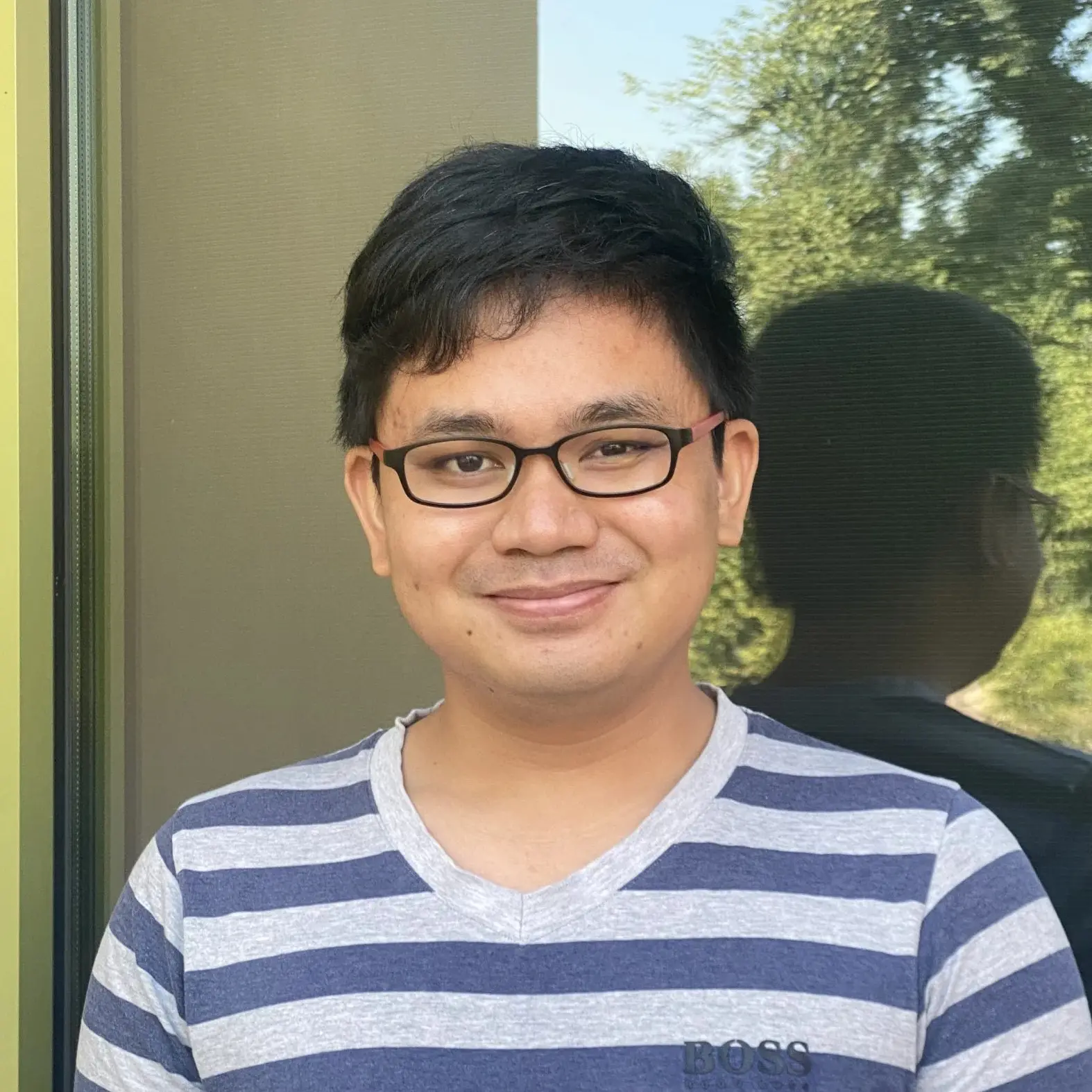
PhD, Chemistry & Chemical Biology, UC Davis
Russelle Alvarez is dedicated to developing mass spectrometry methods for the study of human health glycobiology. Russelle works to comprehensively understand the intricate pathways by which an individual’s glycobiology influences their health. Employing a multidisciplinary approach, Russelle integrates mass spectrometry, cell biology, chemical biology, and bioinformatics to discern patterns of aberrant protein glycosylation linked to diseases such as cancer and Alzheimer’s disease.
Prior to joining the UC Davis innovator community and the UC Davis Department of Chemistry, Russelle earned his BS in Biochemistry (Magna cum laude), and two master’s degrees, MS in Biochemistry, and MS in Molecular Biology & Biotechnology from the University of the Philippines – the most prestigious state university in the Philippines. His academic achievements include international fellowships and internships to renowned institutions such as Academia Sinica, University Medical Center Groningen, and the German Cancer Research Center (DKFZ).
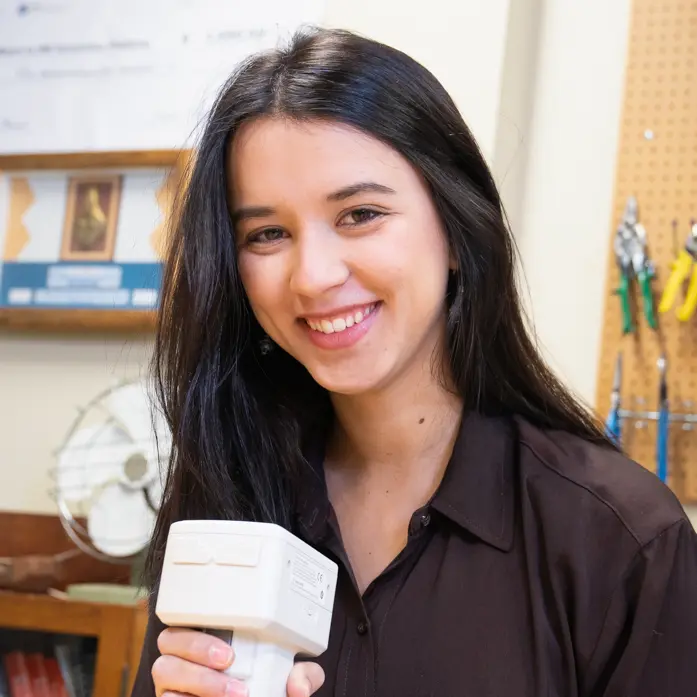
PhD, Biological Systems Engineering, UC Davis
Department of Biological and Agricultural Engineering
Donis-Gonzales Lab and Kornbluth Lab
Alice is a food and agricultural engineer committed to feeding the world while mitigating climate change. Her current research revolves around the innovative design and assessment of desiccant dryers for crops, serving a dual purpose of reducing post-harvest losses and elevating crop quality through energy-efficient drying methods.
As a UC Davis D-Lab team member, Alice actively contributes to on-campus education initiatives, encompassing both course instruction and the development of engaging curricula, and collaborating with global community partners on projects that address interdisciplinary education challenges and global engineering issues. Alice’s project portfolio includes contributions to sustainable agriculture, renewable energy, energy efficiency, and off-grid power solutions.
In addition to her academic pursuits, Alice is an IIE Business Development Fellow alumna and the Lead Project Engineer at Roastpic, a dynamic startup developing computer-vision routines to assess coffee quality. With a comprehensive perspective gained through academic rigor and startup involvement, Alice is well-positioned to make meaningful contributions to the intersection of technology, science, agriculture, and sustainability.
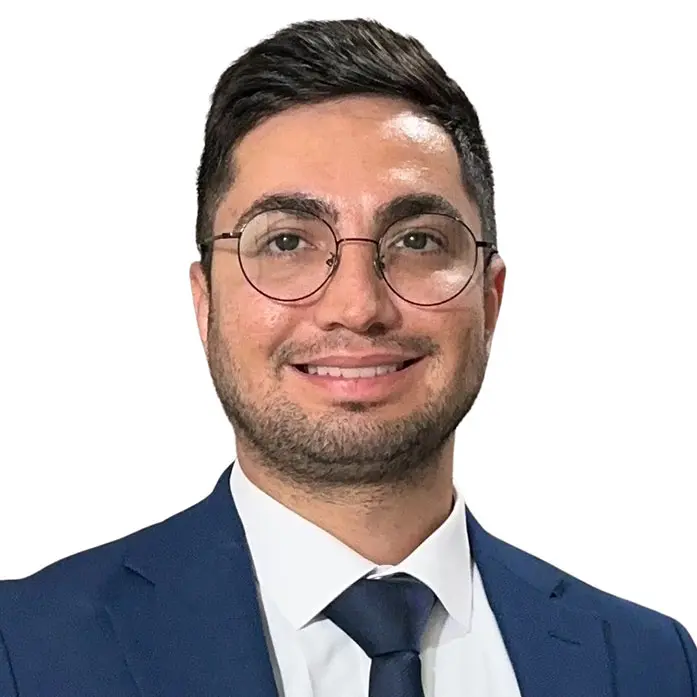
PhD, Biological Systems Engineering
Controlled Environment Engineering Lab
Saeed is a data analyst specializing in sustainable agriculture and environmental engineering, leveraging his expertise in the intricate interplay of water, food, energy, salinity, and nutrients to enhance crop yields while upholding sustainability principles. Currently, he focuses on the integration of AI within Controlled Environment Agriculture (CEA), aiming to revolutionize resource management in regions dealing with water and food security challenges. His work at UC Davis is dedicated to pioneering solutions that harmonize agricultural productivity with environmental preservation.
Before joining UC Davis, Saeed received a master’s degree in environmental engineering from Politecnico di Milano, Italy, and a bachelor’s in Civil Engineering from Shiraz University, Iran. His research portfolio extends across several institutions worldwide, including UC Berkeley (USA), TU Delft (Netherlands), and University of Almeria (Spain). Beyond academia, he involved in launching MUSH, a start-up at the forefront of CEA innovation in Italy, where he serves as a technical expert and financial strategist.
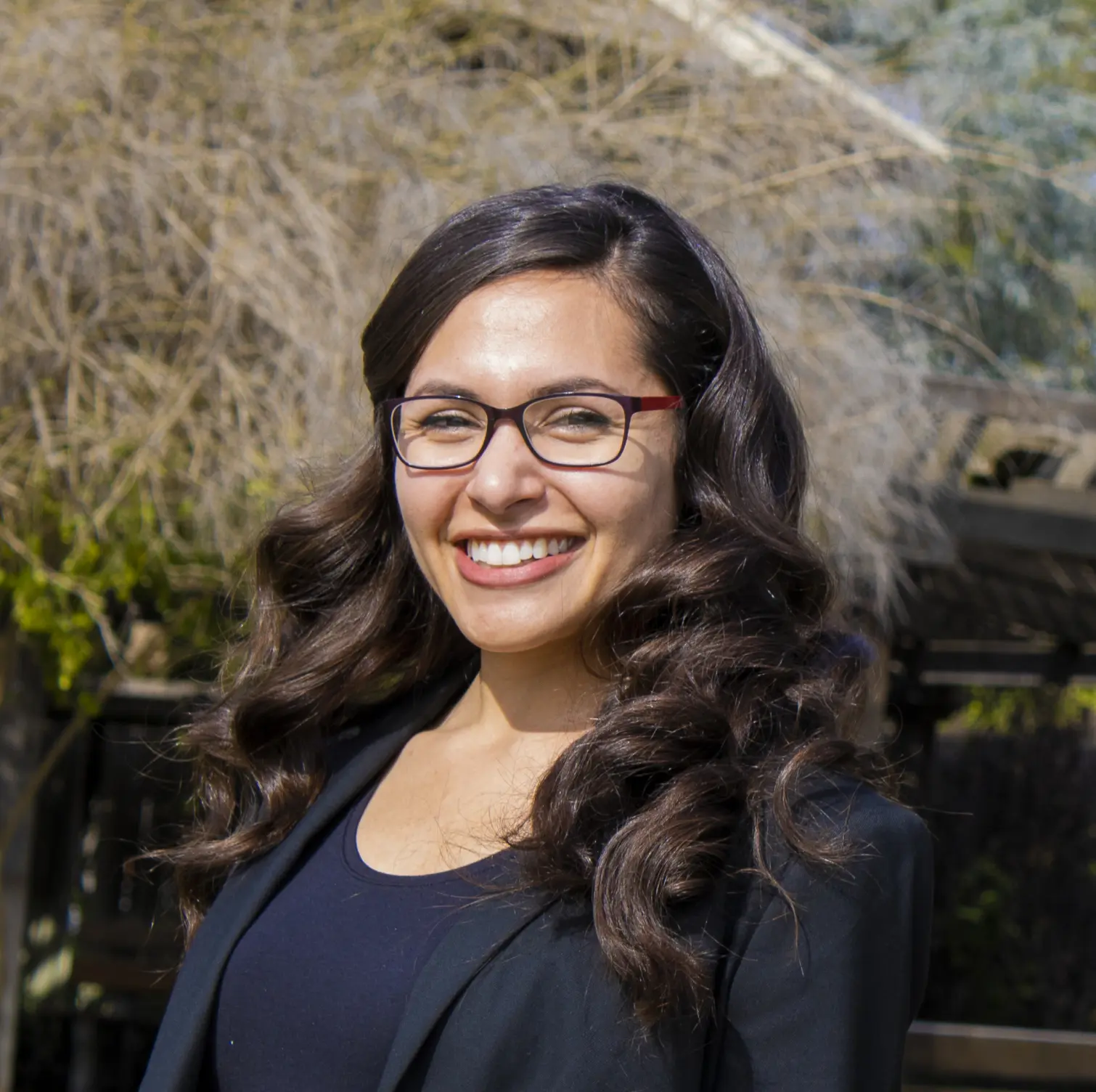
PhD, Molecular, Cellular & Integrative Physiology, UC Davis
Danielle is passionate about metabolic disease and obesity research. Her industry experience and graduate training have motivated her to pursue a career bridging biotech and academic research, with a goal of developing biomedical devices for metabolic disease management. Her work in Dr. Raybould’s lab has been interdisciplinary, spanning physiology, nutrition, and engineering, where she explored neuromodulation of vagal sensory neurons, and helped develop a microfluidic model of the gut-brain axis.
Danielle’s work at the startup Nortis, Inc. provided her with first-hand experience in entrepreneurship and product development. Her enduring interest in business and experience as a liaison among design engineers, biomedical researchers and manufacturing, have laid the groundwork for meaningful breakthroughs in metabolic biotech.
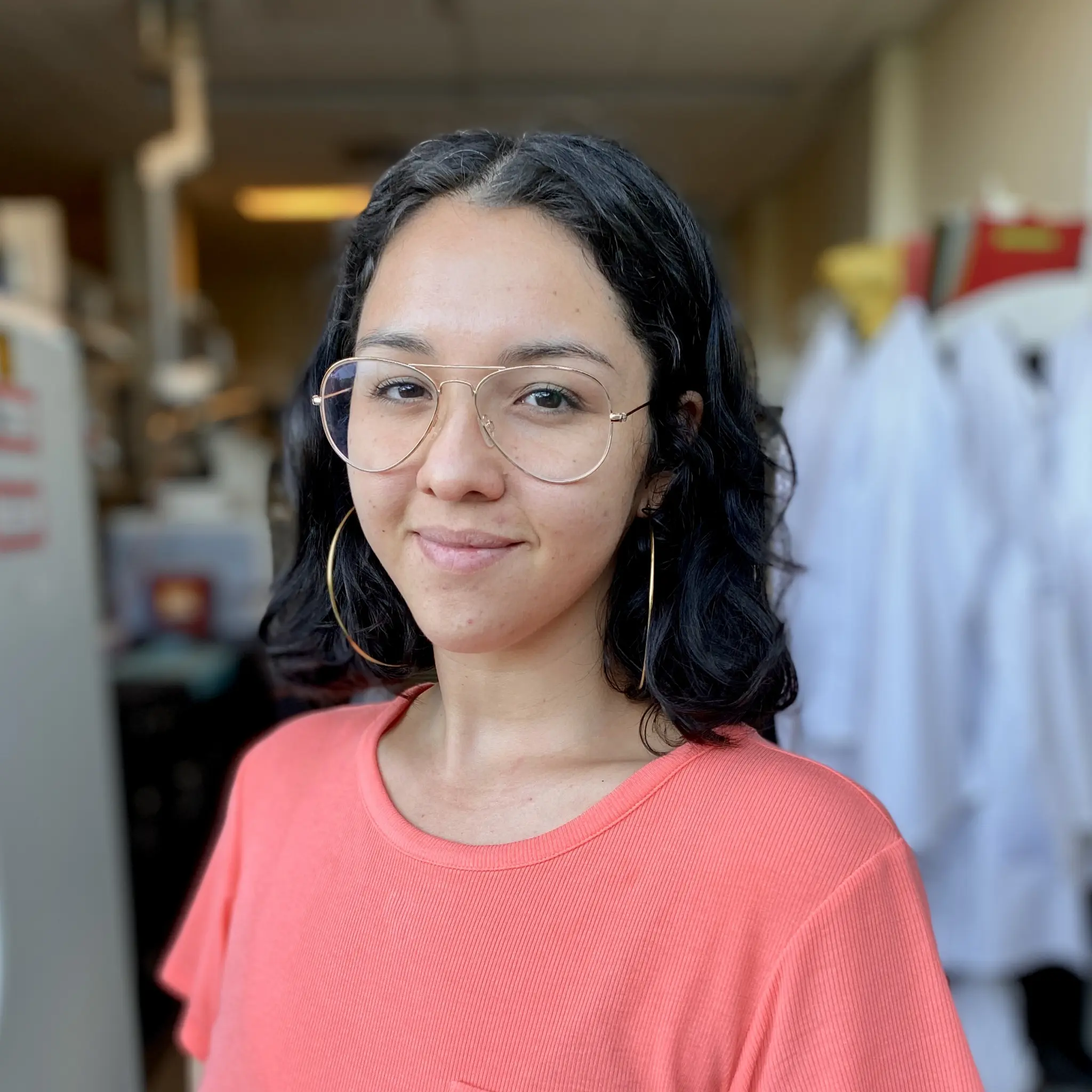
PhD, Food Science, UC Davis
Tana is an enthusiastic food scientist committed to developing healthier and tastier probiotic food. She holds a B.S. in Biotechnology Engineering and a Masters in Food Science. Her interest in becoming a product developer and entrepreneur motivated her to pursue a Ph.D. in Food Science under Dr. Nitin Nitin‘s guidance. Tana’s research focuses on developing innovative encapsulation systems for probiotics and other molecules to maximize their health-promoting effects. In 2020, she received the UC MEXUS-CONACYT Doctoral Fellowship to fund four years of her studies.
Tana leverages her interest in graphic design and her skills in public speaking to engage in various science communication activities. Now as the 2023-2024 Science Communications Fellow at the Innovation Institute for Food and Health, she will continue her mission to translate scientific concepts of food and nutrition into terms more easily digestible by a broader audience (pun intended).
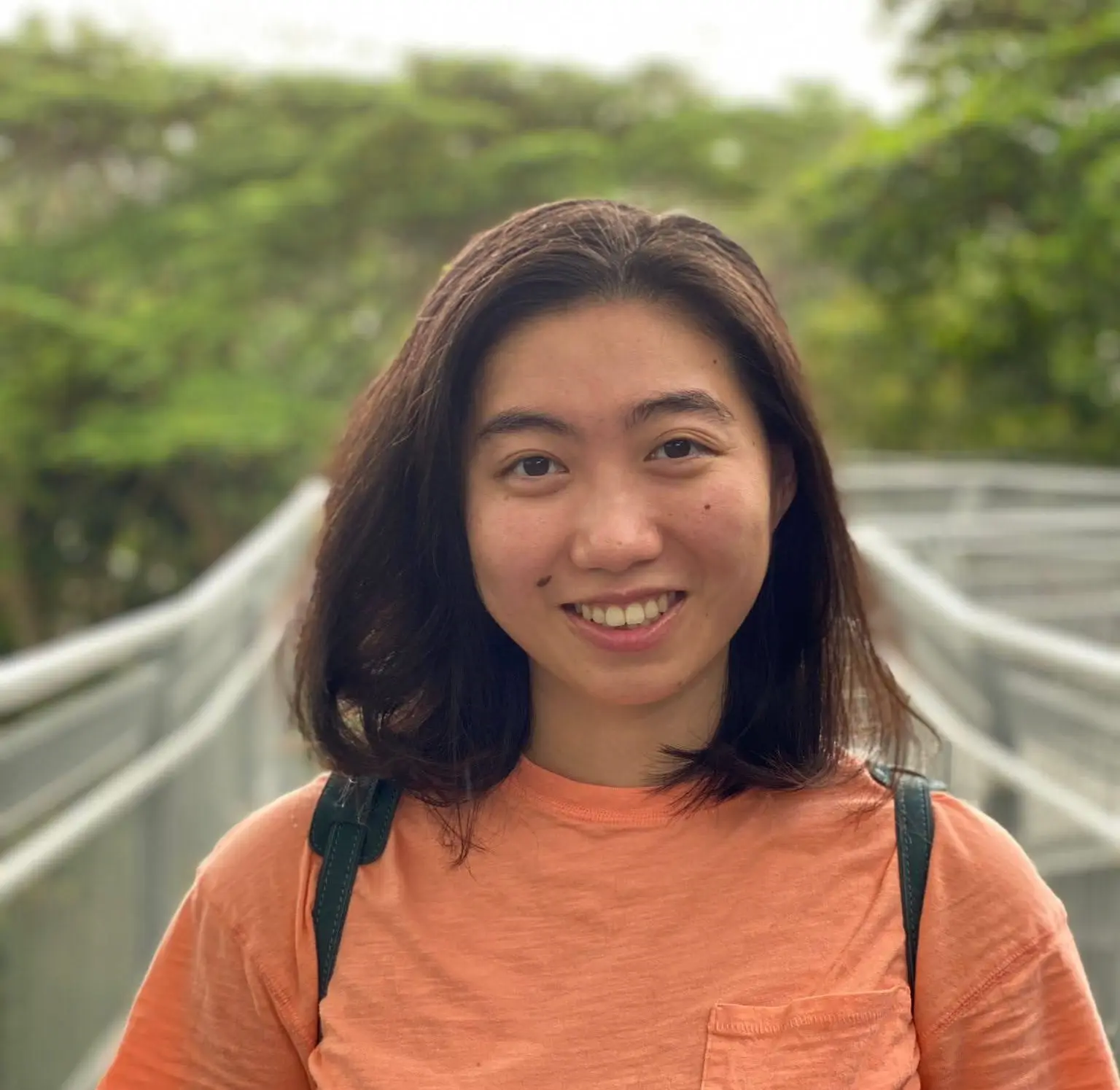
PhD, Food Science, UC Davis
Department of Food Science and Technology
Jane Ong is passionate about consumer perception in food science. Her ultimate goal of working as a consultant in product development, consumer market research and data analysis led her to pursue her UC Davis PhD in Food Science. Here, Jane explores the question of how novel food products—such as plant based milks—are perceived and categorized by consumers.
Jane brings to IIFH a rich background in entrepreneurship. She already holds a MS in Food Science with a focus on Sensory Science from the University of Guelph, which springboarded her experience as a product developer. Jane developed a plant-based burger and pH neutral soda for a small meat company and startup, respectively. She holds her own patent, and started her own company for a vegan cheese alternative in late 2019. While the company is no longer operating, Jane carries rich lived experience of navigating the startup journey and asking the right entrepreneurial questions.
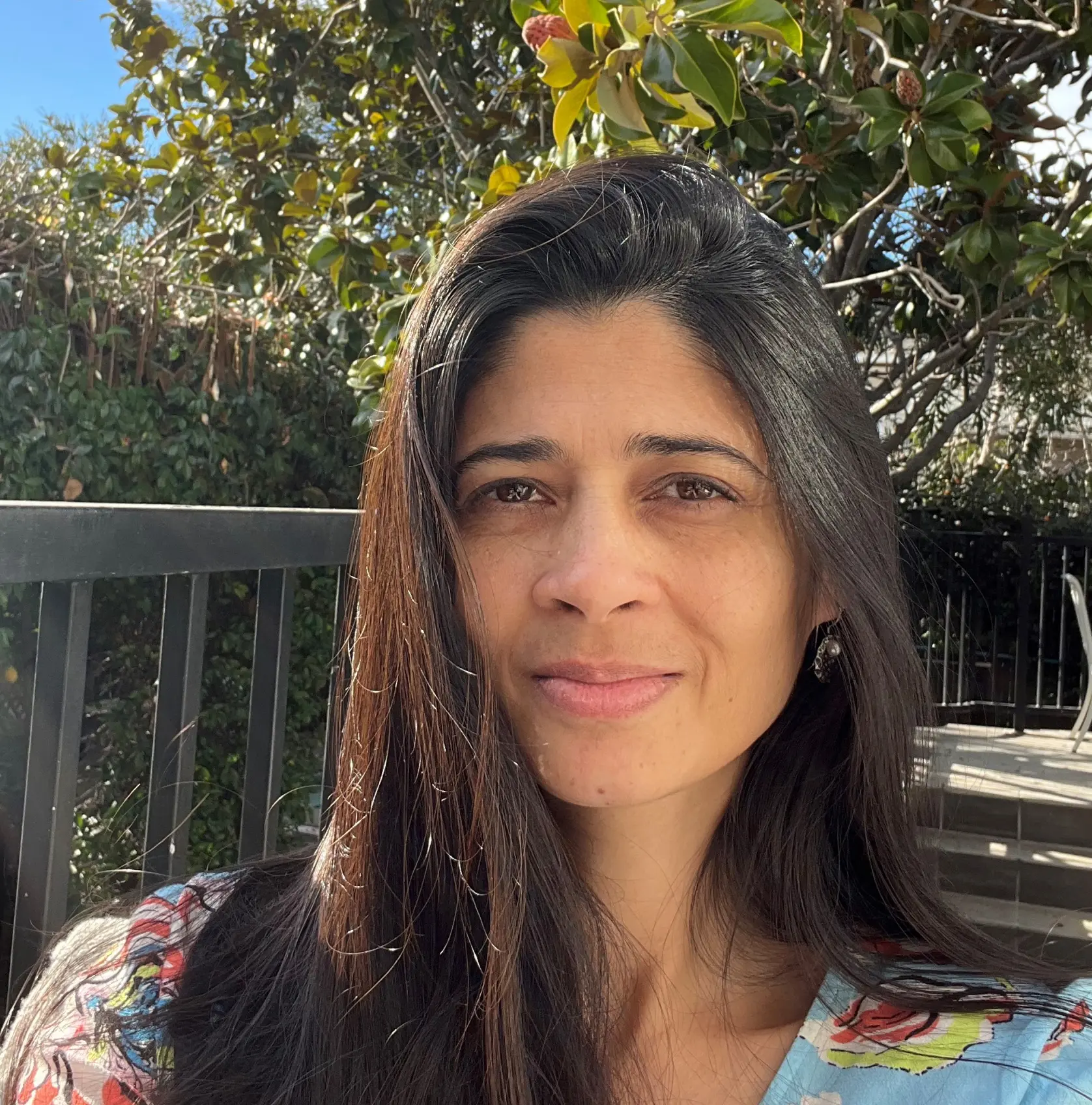
PhD, Biological Systems Engineering, UC Davis
Department of Biological and Agricultural Engineering
Tarini embraces multidisciplinary paths, having earned degrees in computer science and computer engineering, and job experience as a professional baker and time supporting trade desks on Wall Street. She is now combining her computational expertise with her passion in food, health and agricultural systems to pursue her PhD in Biological Systems Engineering at UC Davis. Her background in business development and professional baking gives her a unique perspective on leveraging research science for innovative applications.
Tarini’s research focus has been application of machine learning to predict the nutrition and sensory properties of food formulations. The goal for her career is to make food value chains more efficient, profitable and less wasteful. Her research lays the groundwork for radical new uses of machine learning in food production. She aims to take her skills from the lab to an innovative organization focused on food product development, where she can belong to a culture that uses data to change the way people are fed.
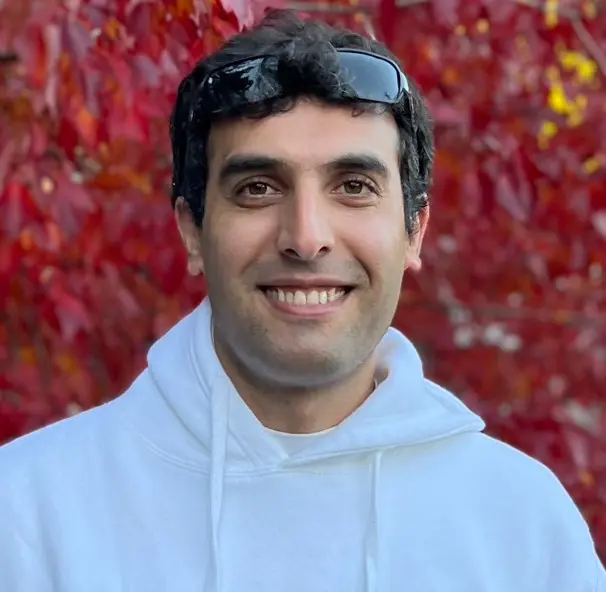
PhD, Biological Systems Engineering
Digital Agriculture Laboratory
Hamid brings advanced expertise in various applications of digital agriculture, including high throughput phenotyping, yield mapping, plant nitrogen status assessment and more. He utilizes his expensive experience with aerial data collection tools and new sensors to gather multispectral, hyperspectral and lidar data from crops and soil conditions. Analysis of these data help growers make informed decisions about their practices, and his passion for the optimization of all aspects of crop production makes him a leader in his field.
Hamid completed his undergraduate and masters in the Mechanical Engineering of Agricultural Machinery at the University of Tehran in Iran, where students ranked him first among sixteen professors and lecturers in his department in 2016. He is passionate about innovation, having recently helped found Kobin, a data analytics startup out of his UC Davis lab, and is excited to further his entrepreneurial pursuits and learn from industry professionals.
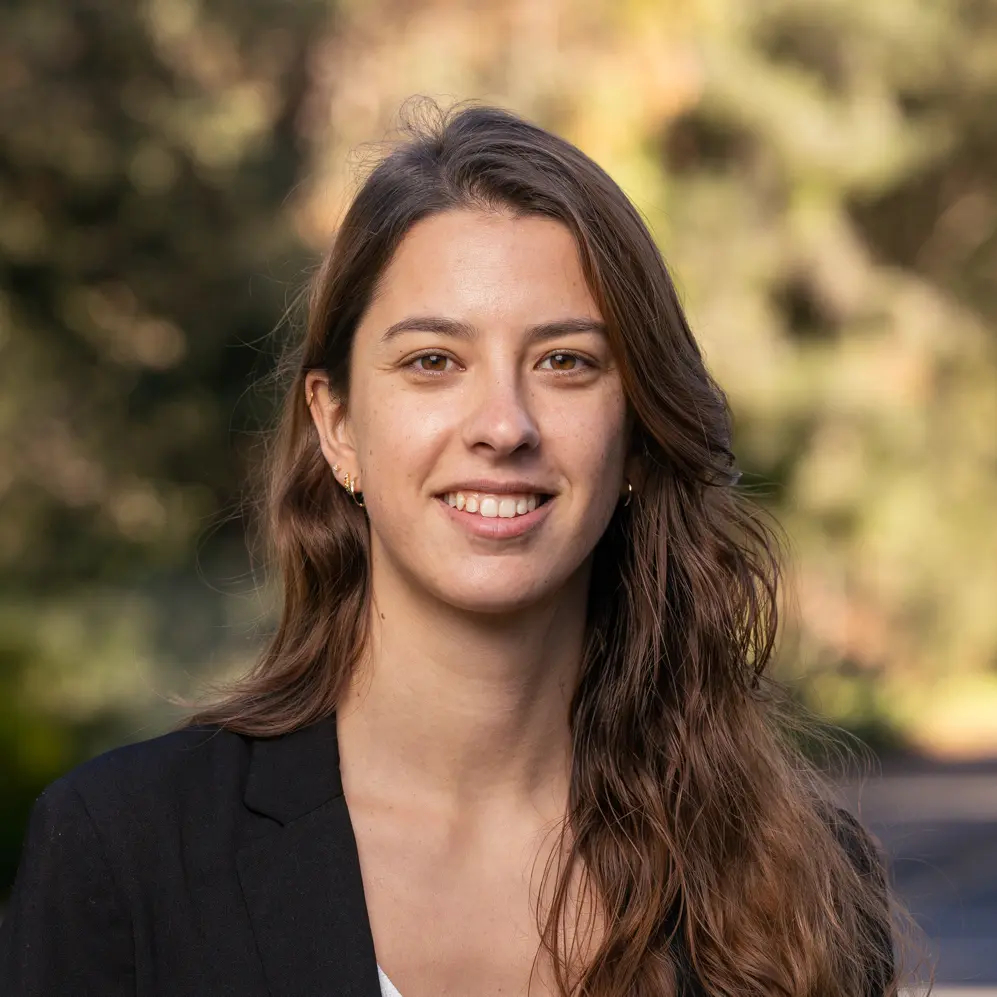
PhD, Biological Systems Engineering, UC Davis
Department of Biological and Agricultural Engineering
Berta is an eager food and agricultural engineer with a strong enthusiasm for innovation. Her profound passion for food systems is connected to her roots and drives her personal mission. She is currently a PhD candidate under the joint guidance of Dr. Chris Simmons and Dr. Alissa Kendall. Her academic pursuit centers on the comprehensive evaluation of both established and cutting-edge technologies. She has a dedicated focus on environmental and economic considerations, studied through the completion of meticulous life cycle assessments and technoeconomic analyses. Her portfolio encompasses a diverse array of projects, spanning from the optimization of organic waste treatment facilities to the pioneering production of bioplastics derived from algae. Berta’s career goal is to use her knowledge and skills in biological systems engineering to assist companies in their efforts to optimize processes. She aspires to build her own consulting team to facilitate the food industry’s move towards more environmentally friendly practices.
Berta brings a rich background to the IIFH Fellowship, involving experience in logistics and engineering roles at Fluvitex SL (a textile provider to IKEA), as well as Grup Unió SCCL, where she worked on an assessment of the environmental production of almond milk. She is also a an alum of the Business Development Fellows Program.
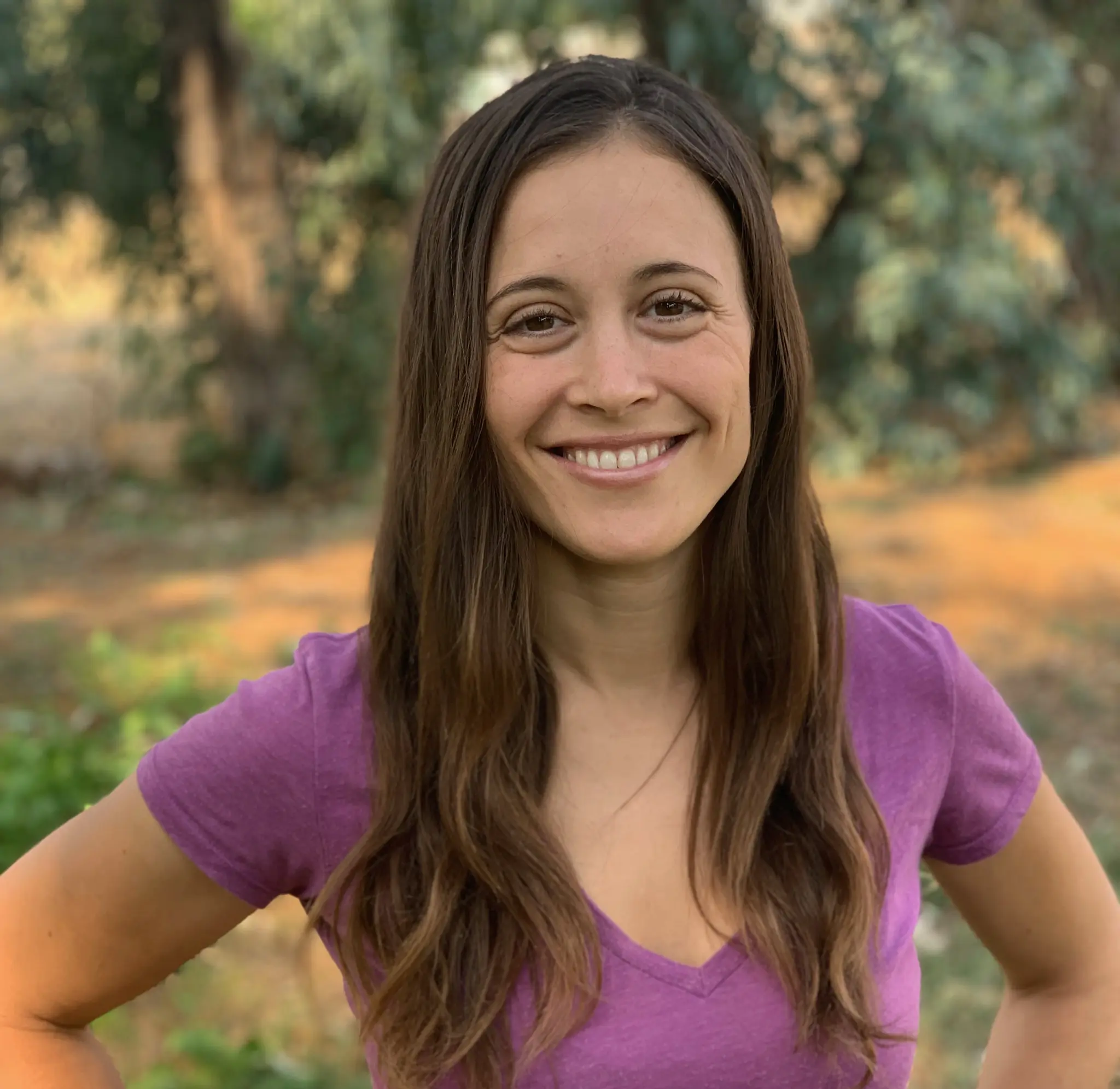
PhD, Soils & Biogeochemistry, UC Davis
UC Davis, California Soil Resource Laboratory
Jessica Chiartas has a passion and drive for translating learnings from the food and agricultural sciences into practice. She believes the key to identifying and creating solutions to global grand challenges from human to environmental health lie in the way we manage our soils and food and agricultural systems, at large. She works with diverse multi-stakeholder groups to develop comprehensive programs that adapt agricultural best practices on the basis of soil type, climate, and cropping system, and monitor and evaluate the impact. Chiartas sees her work as the catalyst to uniting a global community in tackling the formidable challenge of feeding 10 billion people on fewer acres with a smaller footprint, amidst climate uncertainty.
Chiartas’ pioneering research at UC Davis and the California Soil Resource Lab has investigated the long-term impacts of agriculture on soil carbon (C), soil health and ecosystem services. During her PhD, she has also collaborated with scientists and statisticians at UC Berkeley and within the OpenTeam network, represented UC Davis in the California Farm Demonstration Network, participated in the ASA-CSA-SSSA Climate Task Force to inform the Biden administration on climate and agriculture, led the Measurement Workstream for a Google Food Lab Accelerator, and worked with multiple external organizations to develop effective monitoring, reporting, and verification (MRV) protocols.
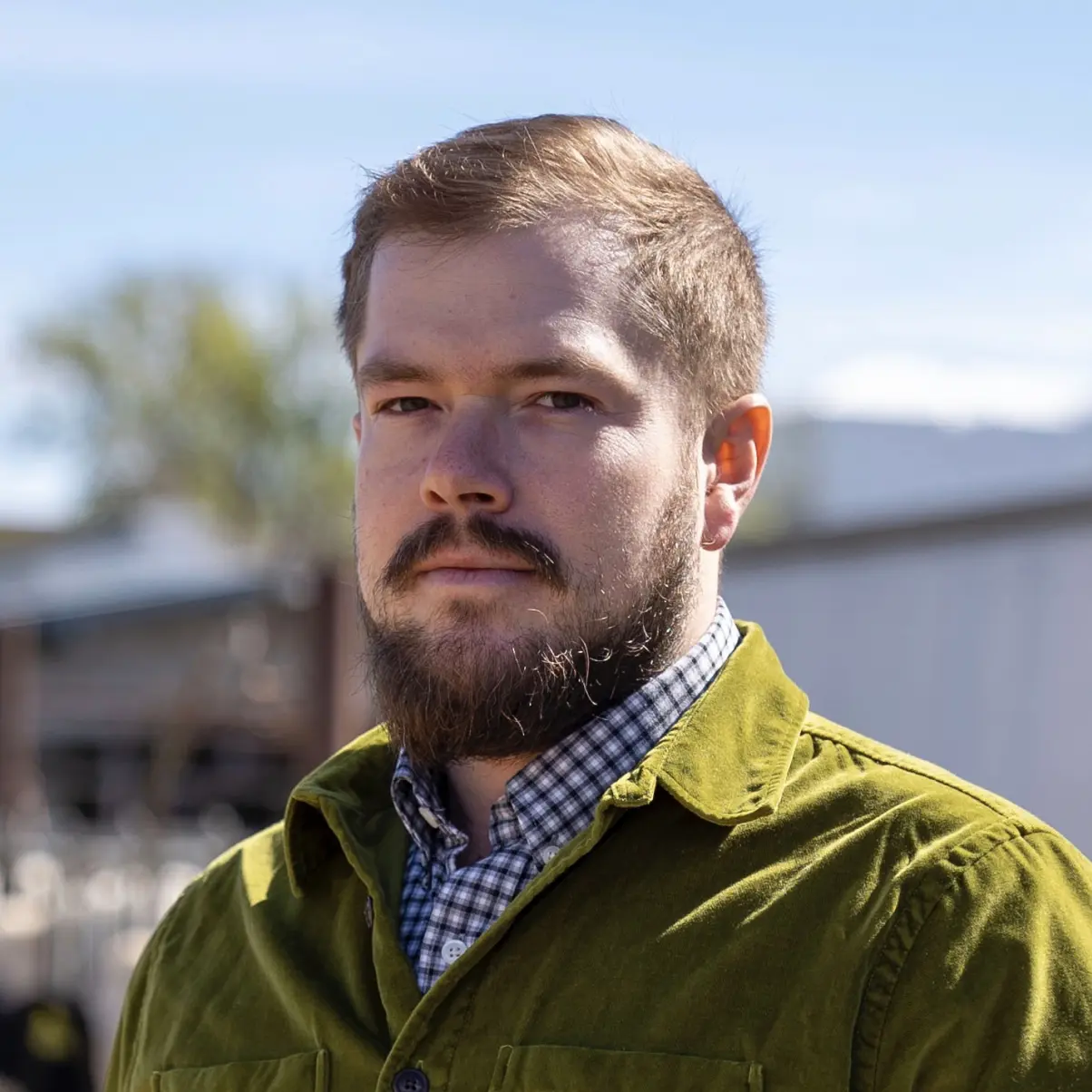
PhD, Animal Biology
Matthew is driven by a desire to discover intersectional relationships between soil health, crop production and animal nutrition. Matthew’s interdisciplinary research is best put in his own words. He designed his own PhD project to determine “how feed additives (…i.e. essential oils, saponins, and tannins) in beef and dairy cattle rations can be used to modify rumen fermentation characteristics and the gut microbiome, thereby improving animal health, reducing greenhouse gas emissions, and reducing nitrogen loss from manure fertilizer.”
This experience with plant secondary metabolites stems from his prior experience at Oregon State University where he explored and successfully deployed an environmentally friendly, essential-oil based pesticide in forage crops. Matthew ultimately is driven by real-world applications to science, providing him with excellent positioning to thrive in his fellowship and in taking his use-inspired research to the next level.
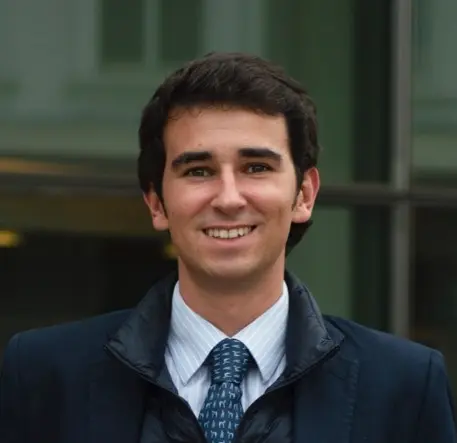
MS, Agricultural Engineering
MS, Digital Transformation of the Agri-Food and Forestry Sector
Manuel is IIFH’s third International Fellow. While pursuing his masters in agricultural engineering, specializing in plant production, he became fascinated by precision agriculture and business management. He developed an interest in the use of technology to improve production, quality, sustainability, profitability and health in the food chain. Manuel’s thesis research at the Escuela Técnica Superior de Ingenieros Agrónomos y de Montes de la UCO has thus far focused on the valuation of rural real estate assets and the impact that modernization investments have in terms of equity and cash flows. He demonstrated how it increased the ability to access credit, participate in corporate integration, expropriation value and sale and purchase value.
At UC Davis, he will focus on research on canopy-level nitrogen estimation in almond orchards using drone and satellite imagery for precision fertilization and irrigation. He is exploring the challenges of environmental and economic sustainability of farms, especially in contexts of inflation, market volatility and climatic adversities, and the use of precision agriculture to address this.
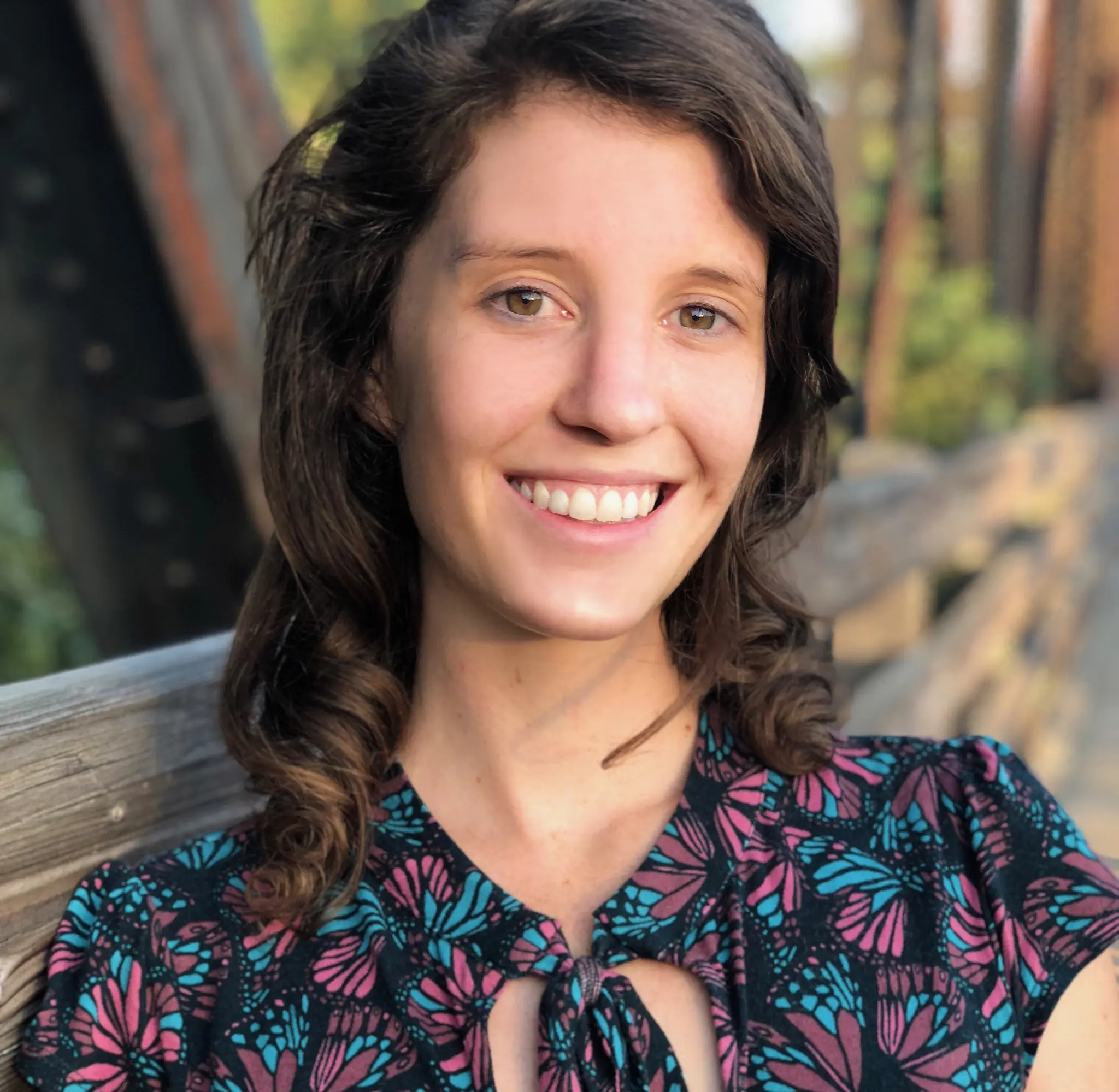
PhD, Soils and Biogeochemistry, UC Davis
Department of Land Air and Water Resources
Rachel Danielson is a soil biogeochemist and microbial ecologist aiming to improve the sustainability of our food system through a better understanding of plant-microbe interactions and leveraging microbes for ‘farmless’ cultivation of alternative proteins such as mycelial meats. Danielson sees a growing need for accountability in the environmental impact of food- and agri-tech: that is, backing innovations that are not just economically viable, but also sustainably scalable, with a net positive outcome for climate change mitigation and natural resource conservation.
As a UC Davis doctoral candidate in the Department of Land, Air and Water Resources, working under Dr. Jorge Rodrigues, Danielson studies how conversion of tropical forest to cattle pasture in the Amazon Basin impacts the function and diversity of root-associated nitrogen fixing bacteria, whose activity is crucial in providing a sustainable quantity of nitrogen to these unfertilized landscapes. Danielson’s collective training in environmental microbiology, agricultural science, and biotechnology throughout graduate school have motivated her to collaborate and assist in the acceleration of discoveries at the nexus of food and health.
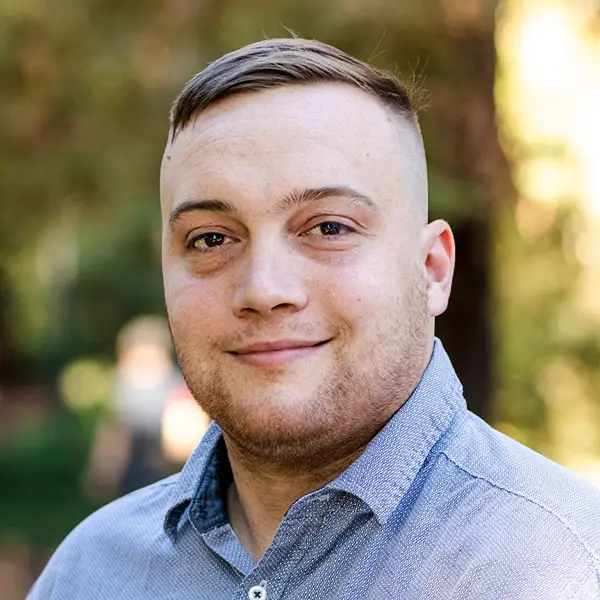
PhD, Plant Biology, UC Davis
Jake is interested in remediating pressing environmental and energy concerns using Synthetic Biology and Metabolic Engineering approaches. His research under Dr. Atsumi aims to synthesize high value chemical commodities from carbon pools that have been traditionally untapped or underutilized and includes engineering cyanobacteria to efficiently convert CO2 to useful chemicals that are currently produced from petroleum.
Jake has worked on projects with MARS-Wrigley where he learned considerations of making a product realistically scalable. He found this an entirely new challenge that piqued his interest in the business side of biotech, leading him to a role as a science consultant with Steel Perlot. Here, he gave insight into worthy investments related to chemical commodities produced from photosynthetic microorganisms. Jake believes that there is no question food tech is going to become increasingly relevant as our society faces an uncertain climate and an ever-increasing increasing population.
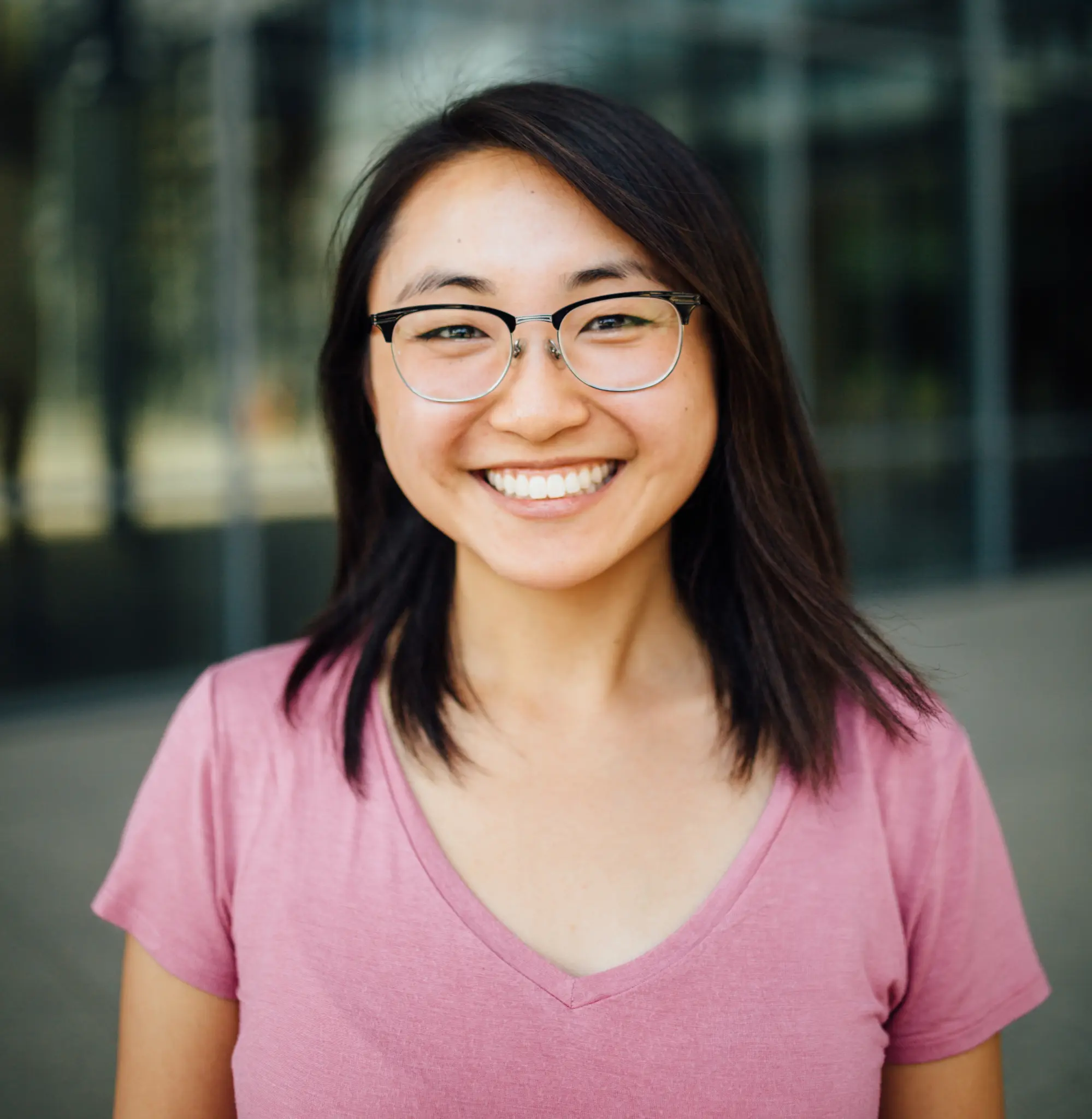
PhD, Food Science, UC Davis
Department of Food Science and Technology
Andrea Tam is a passionate food scientist who is driven to solve food challenges through the revalorization of food waste streams and incorporation of healthy components into existing food products to improve human and planetary health. As a PhD candidate in the Department of Food Science and Technology with Dr. de Moura Bell at UC Davis, she has gained a deep understanding of food system life cycles and the development of pilot-scale processes and products.
Through her research, Tam hopes to provide the scientific evidence needed to confirm the possible health benefits that could arise from the consumption of foods or animal feed containing a novel class of prophylactic ingredients that are currently considered waste. Ultimately, she looks to combine her academic research, industrial production, and business acumen to create equitable access to food products that will improve the health and well-being of all.
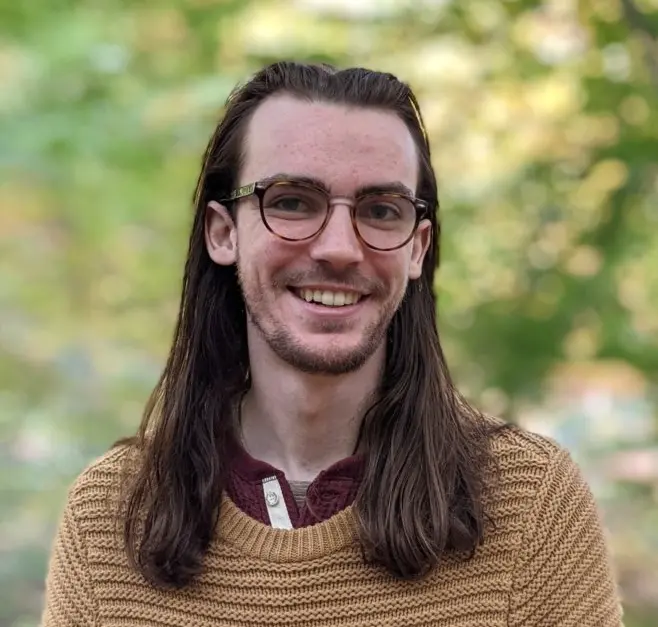
PhD, Biomedical Engineering, UC Davis
Leach Laboratory and Cultivated Meat Consortium
Nick has a strong drive to make a significant beneficial impact on the social and environmental world around him. Nick has a deep technical background in materials science and has worked with polymer synthesis, semiconductors, applied nanomaterials and biotechnology, leading him to pursue his PhD in Biomedical Engineering at UC Davis working with Dr. Kent Leach and the UC Davis Cultivated Meat Consortium. The primary focus of his research is developing edible scaffolding materials and advanced biofabrication processes for cultivated meat.
His entrepreneurial enthusiasm led him to many parallel activities, such as being president of the Davis Alt Protein project and a significant contributor and content editor of a sustainable foodtech podcast, Red to Green. He has discovered a deep passion for leading technological innovation, communicating science, and helping others achieve success to create broader societal impact than one person alone can generate.
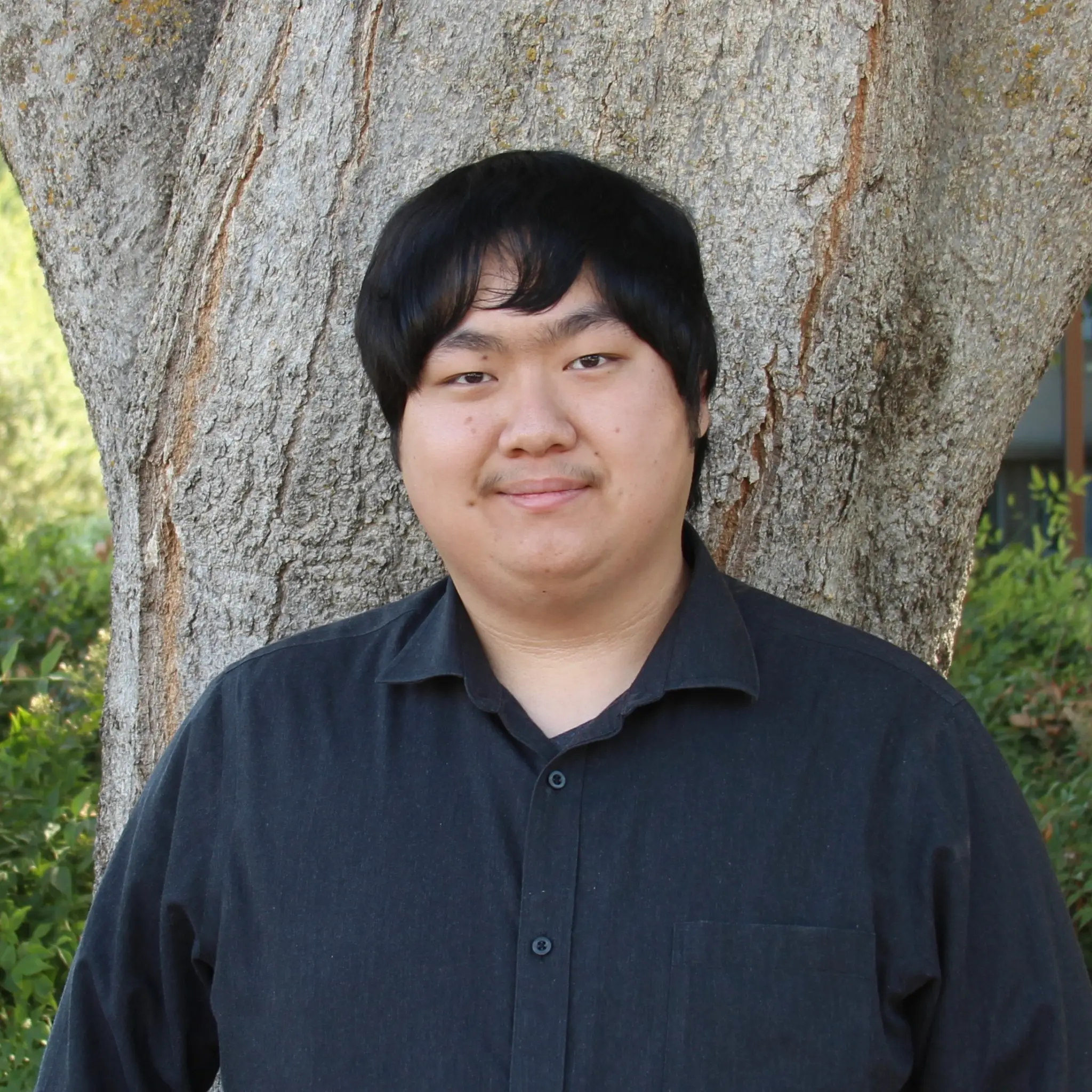
PhD, Biochemistry, Molecular, Cellular and Developmental Biology, UC Davis
Biochemistry, Molecular, Cellular and Developmental Biology Program
Albert Liu is a passionate researcher and science communicator driven to better understand what the future may hold for life on Earth by studying how the natural world has evolved. As a PhD candidate in the Biochemistry, Molecular, Cellular and Developmental Biology Program at UC Davis, Liu works alongside Dr. Patrick Shih researching the evolution of enzymatic carbon fixation. His research utilizes a combination of phylogenetic approaches and structural biology to observe patterns in protein evolution. Liu was awarded an NIH T32 training grant between the years of 2019-2022, and continues to be an active trainee in the Chemical Biology Program at UC Davis.
Since becoming a researcher, Liu has also pursued his interests in outreach and scientific communication to translate scientific findings to a broader audience. He completed the Scientific Communication Online Programme at Northwestern University during his Ph.D. studies and produces written content for the Innovative Genomics Institute and the Innovation Institute for Food and Health.
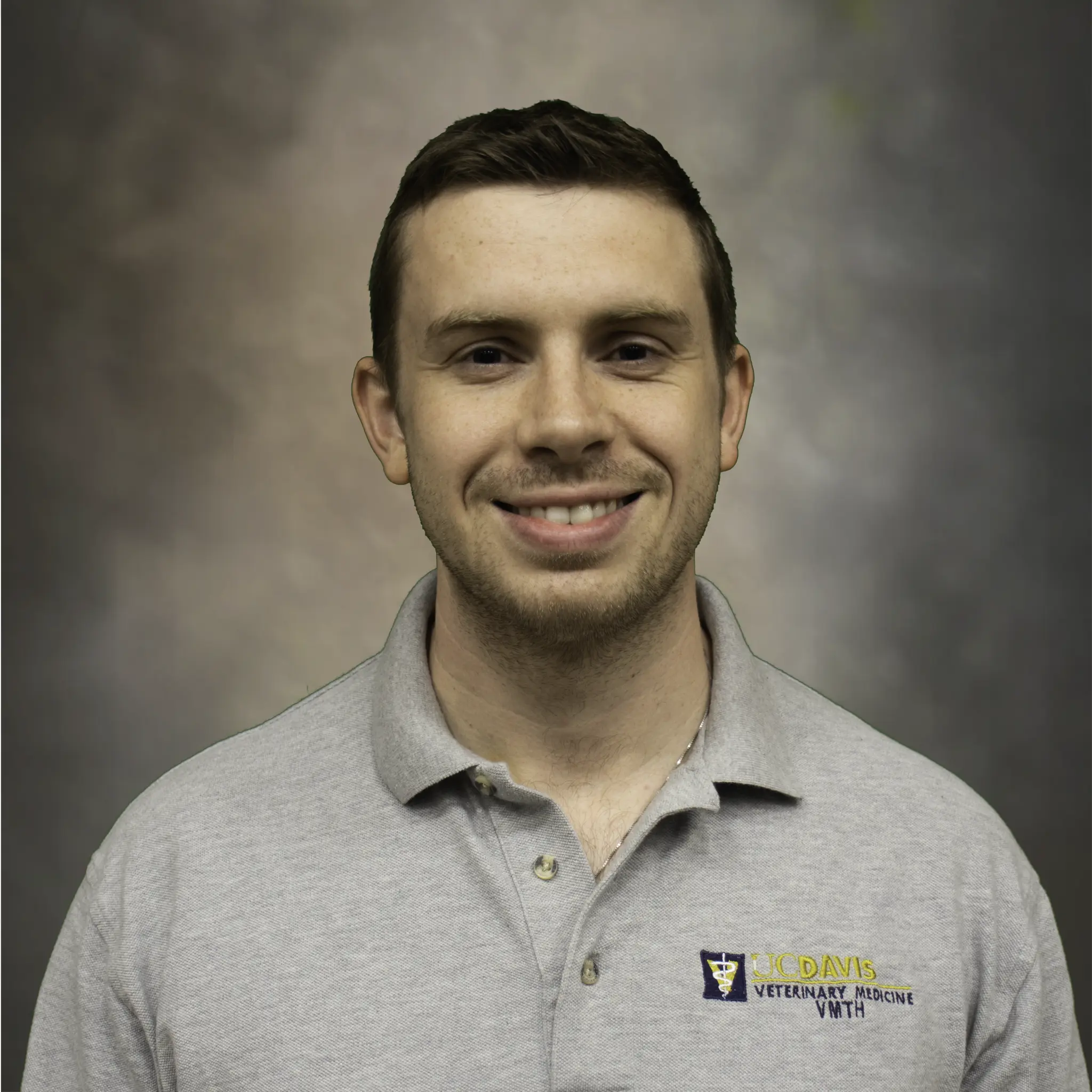
PhD, Animal Biology, UC Davis
Department of Population Health and Reproduction
Dr. Padraig Lucey is an incredibly dedicated practicing dairy veterinarian, expert in population statistics, and innovator. Dr. Lucey is driven to accelerate the benefits of academic studies by bridging scientific research and industry application. As a UC Davis doctoral candidate in the Department of Population Health and Reproduction, working under the guidance of Dr. Heidi Rossow, Dr. Lucey has developed transformative technology to improve dairy efficiency and resource by reducing feed inputs, manure and gas emissions to improve sustainability and efficiency of the California dairy industry.
Dr. Lucey is passionate about improving the agriculture system by bringing ground-breaking scientific work to industry stakeholders and bridging the gap between theoretical research and applying methodologies in industry in order to realize real-world benefits.
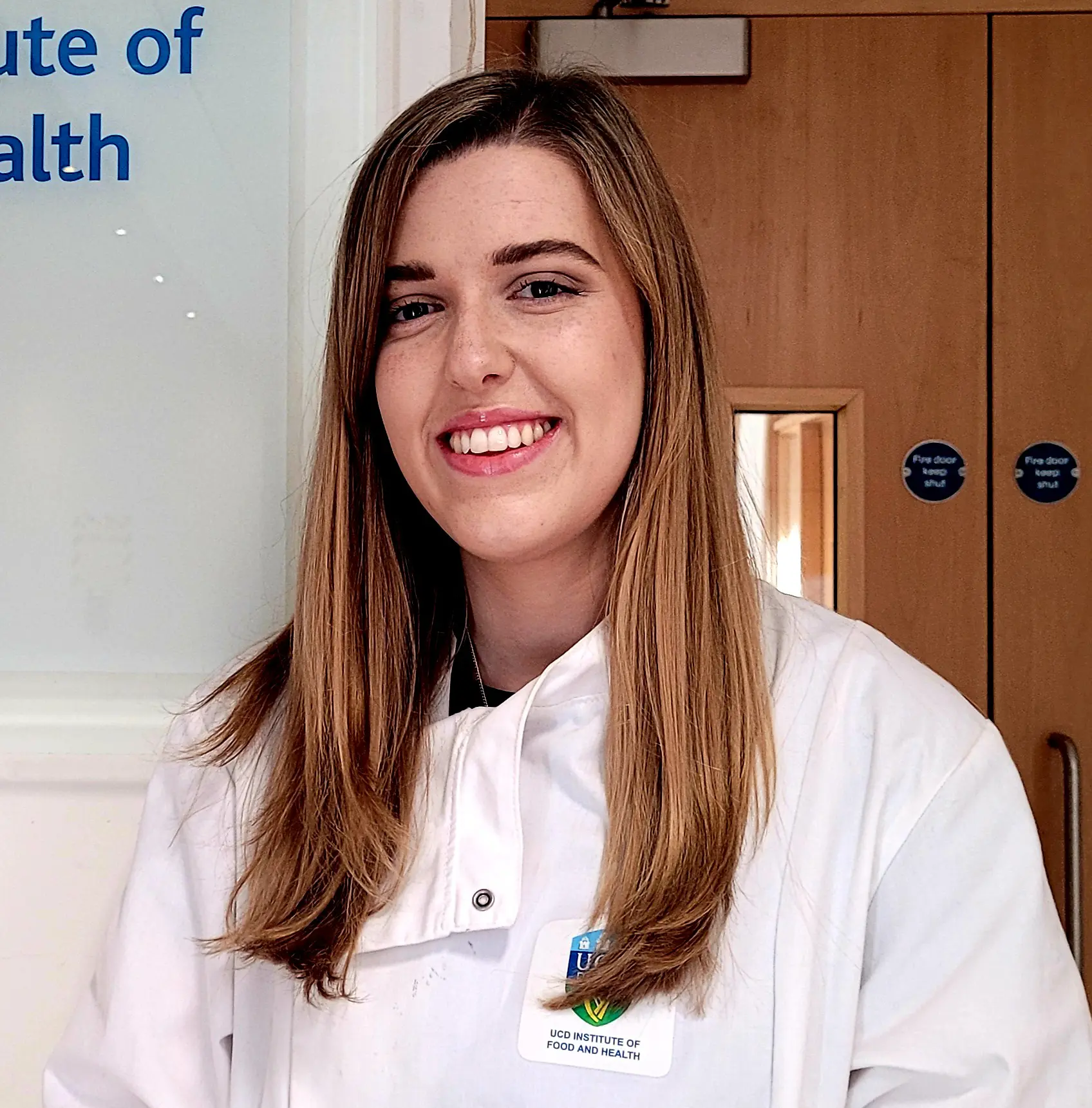
PhD, Agriculture and Food Science, University of College Dublin (UCD)
Dublin, Ireland
Róisín O’ Sullivan, the inaugural International Innovator Fellow, is a humble entrepreneur driven to develop solutions that encourage trust and transparency between food producers and consumers. As a PhD candidate in the UCD School of Agriculture and Food Science, O’ Sullivan has aided in the advancement of authentication techniques for dairy products. These techniques have potential to scientifically underpin claims such as “grass-fed” and “pasture-raised”, as well as legitimizing country of origin claims.
O’ Sullivan believes that driving innovation in the food system, specifically in areas of consumer communication techniques, will allow consumers to make food choices that support their health and well-being. Additionally, she sees the potential to encourage consumer understanding of the origin of their food, providing the ultimate farm-to-fork narrative.
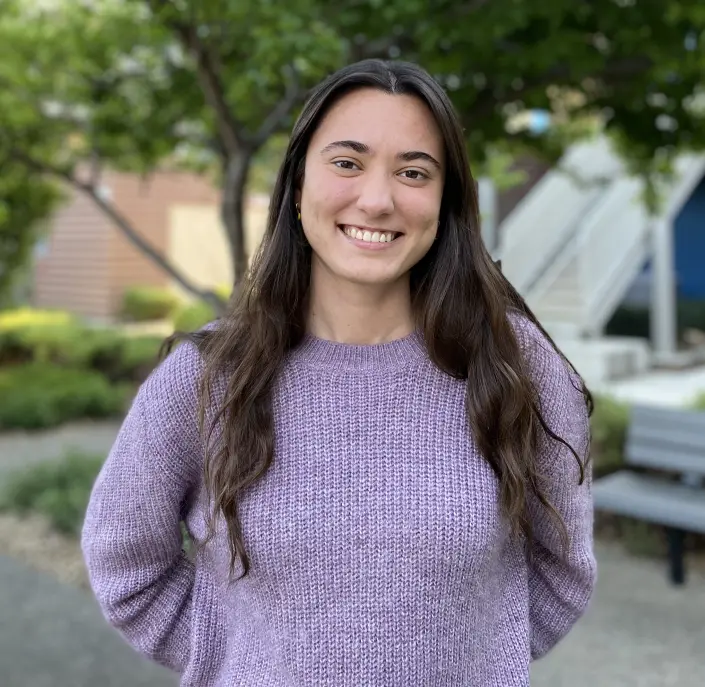
Master in Agricultural Engineering, University of Cordoba (UCO)
Córdoba, Spain
Victoria Ostos Martín is an international scholar from Spain. From her bachelor’s and master’s degrees in agricultural engineering, specializing in agri-food industries, she is fascinated by food processing and has a special interest in the use of technology to improve production, quality, and health in the food chain, as a way to solve the global problem of feeding a growing population without compromising the environment.
Victoria’s thesis research at the UCO College of Agricultural and Forestry Engineering, focused on the use of NIRS as a non-destructive sensor for in situ detection of bitter almonds and demonstrated the capacity of this technology to be used successfully in the agri-food sector enabling to detect the entry of bitter almonds into the industry to avoid adulterations and take decisions in real time. She is concerned about the significant safety and quality challenges in the food industry.
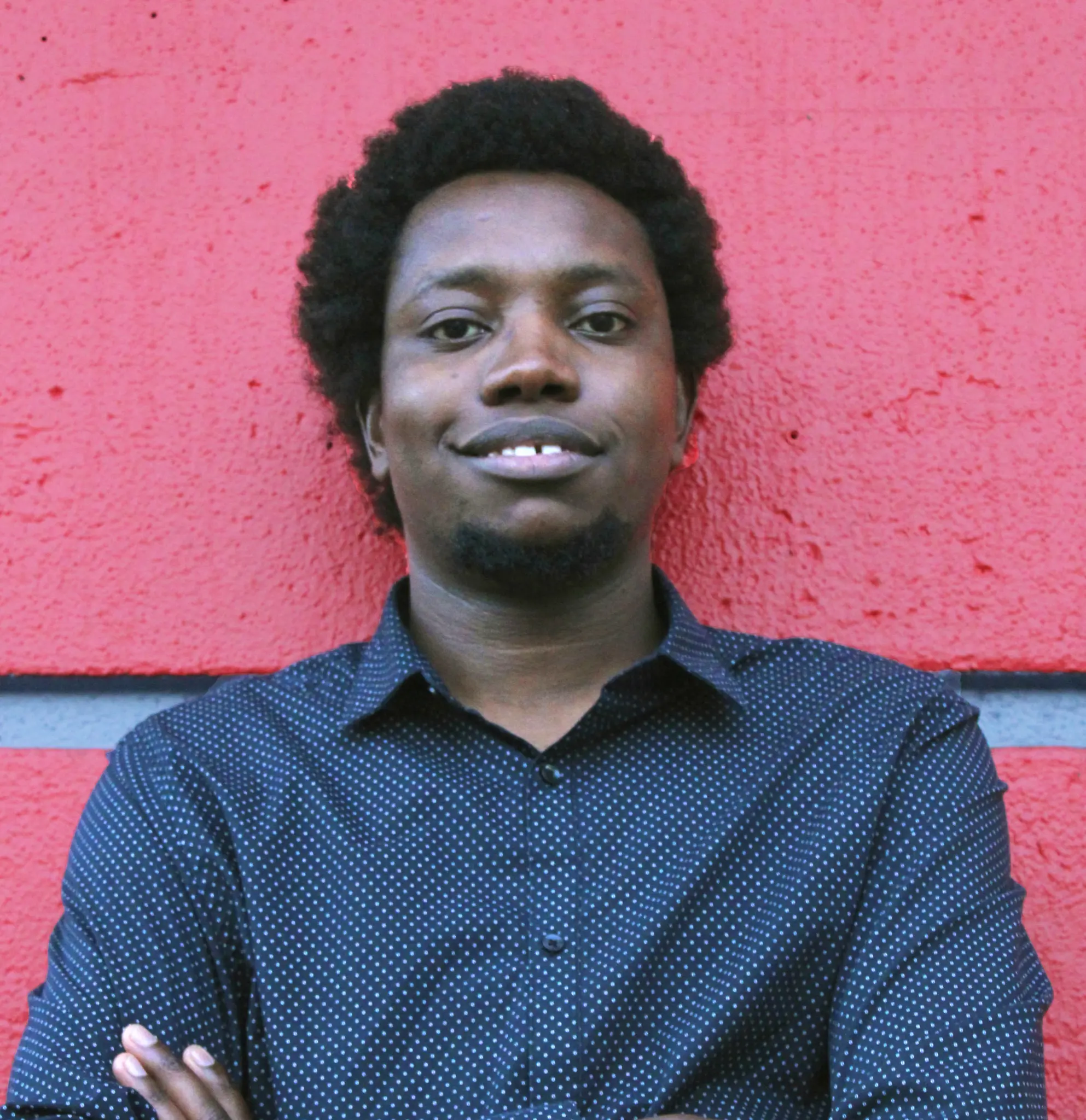
PhD, Plant Biology, UC Davis
Mwaura Livingstone Nganga’s persistence to achieve great success in uncharted territories has propelled his academic and professional career to soaring heights. Choosing to clear his own path to success, Nganga designed his own PhD project studying haploid induction (HI) in potatoes. No one had ever attempted to identify potato HI genes due to the sheer amount of work and high risk of failure expected. Thorough literature studies reduced that risk giving him the confidence to apply for the National Science Foundation (NSF) Graduate Research Fellowship and be awarded $150,000 for three years to pursue this endeavor.
Nganga’s pioneering research at UC Davis, under the direction of Dr. Luca Comai, has been so successful that NSF has awarded the Comai Lab an additional $1.4M to advance the potato HI study. Nganga is passionate about pursuing a career that allows him to improve the world’s economic development through technical innovations and plans to gain the skill necessary to run a global company with multi-billion-dollar revenue potential. Nganga was born in a small rural town called Kabete in Kenya. He strongly believes that innovation is the most efficient way to develop and lift communities from poverty.
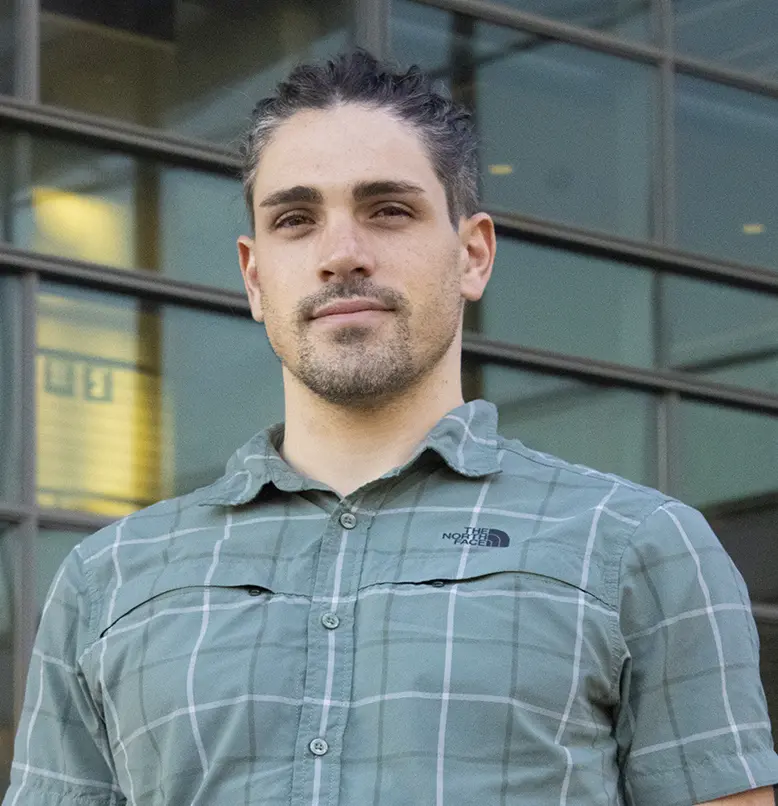
PhD, Horticulture & Agronomy, UC Davis
Department of Viticulture & Enology
Matthew Jenkins’ experiences as a leader and innovator guided him towards academic research with commercial potential. Jenkins actively supports teams developing agricultural technology solutions that promise a more sustainable, profitable future.
Jenkins’ research with Dr. Block and others at the UC Davis, Department of Viticulture and Enology has resulted in the development of novel technology that aims to address the complexity of modern irrigation management, minimizing excess irrigation and preserving limited water resources. Upon receiving a patent, this technology will move on to the commercialization stage.
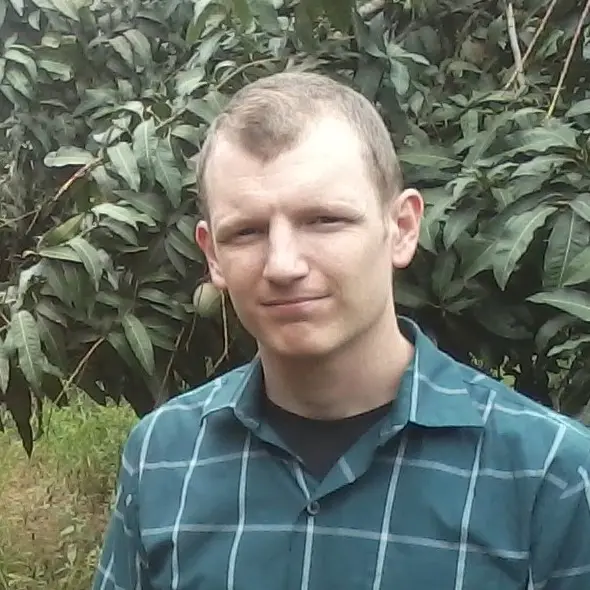
PhD, Food Science, UC Davis
Nick Reitz’s studies focus on postharvest biology and technology, he is looking to expand his knowledge and expertise to solve issues around food waste and nutrition deficiencies. Building upon decades-old methods, Reitz has been able to improve the understanding of plant calcium deficiency disorders that are responsible for about 1% crop loss in tomatoes and 10% loss in certain apple varieties.
In addition to his work with UC Davis Cooperative Extension Specialist and Pomologist, Dr. Mitcham and his extensive knowledge in food biology and chemistry, Reitz also enjoys exploring the economic drivers behind technology development and adoption in the agriculture sector. He hopes to apply that knowledge to the development of new technologies that will improve the food system.
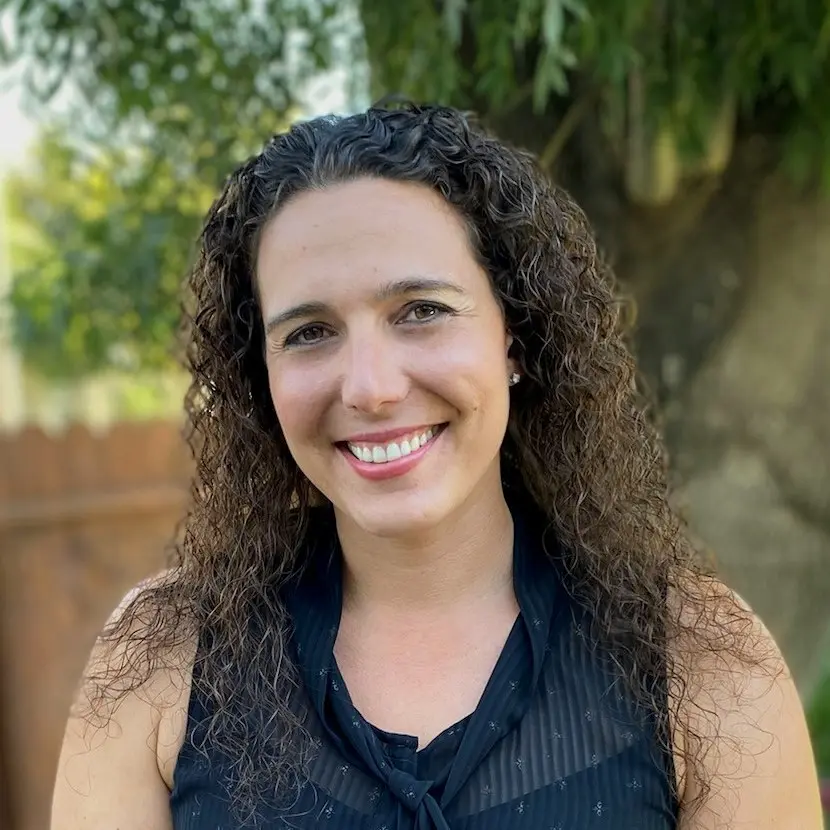
PhD, Animal Biology, UC Davis
Dairy Nutrition and Metabolism Laboratory
Ashley Niesen believes the future of agriculture depends on innovators tackling the challenges that others fail to see, and has spent her UC Davis research identifying novel solutions to improve cow production and survivability using less resources for better environmental and economic outcomes. Though limited investment in novel technologies has been made in the sector, Niesen’s work has the potential to transform the dairy industry. She has collaborated with investment and industry partners to move her research out of the lab and into the market upon completion of her PhD.
Working with Dr. Heidi Rossow, UC Davis Professor of Ruminant Nutrition, the hypothesis of Niesen’s research centers on mitochondrial function as an indicator of cow production and longevity in the dairy herd. During her PhD, the results have been presented at meetings of the American Dairy Science Association, California Animal Nutrition Conferences, and the American Registry for Professional Animal Scientists Continuing Education Conference for four consecutive years. As a result, Neisen has won five scholarships and two poster presentation awards for her work.
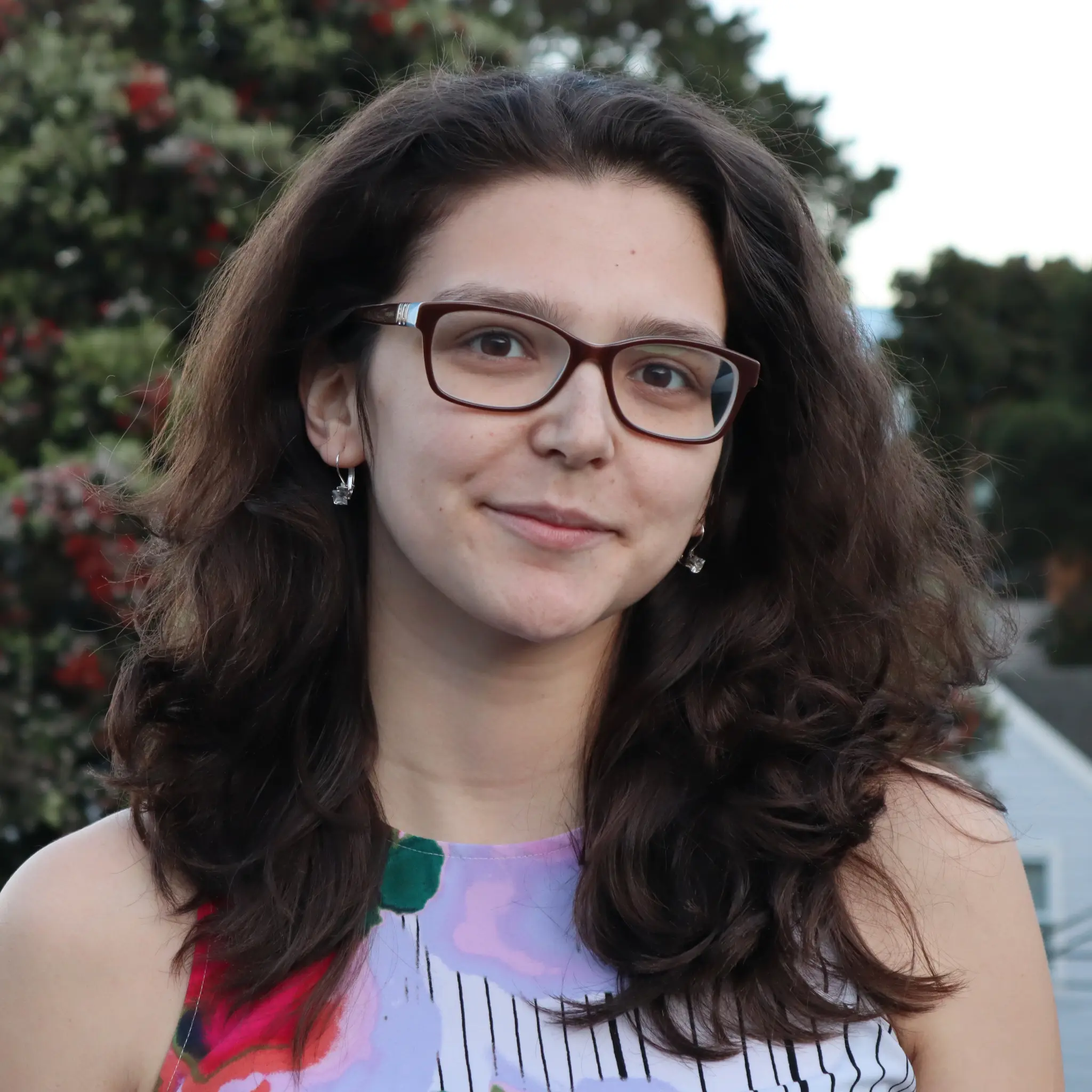
PhD, Agricultural and Environmental Chemistry, UC Davis
Emily Steliotes is passionate about identifying unique ways to reduce food waste and increase food safety through sustainable practices. Specializing in food and wine chemistry with an emphasis on industrial ecology, Steliotes has identified a way to utilize byproducts from wine and beer production and repurpose them into a biobased substitute for chemicals used in food sanitation.
Steliotes’ work looks to control common foodborne pathogens like E. coli and Listeria. In addition to increased food safety, the work that Steliotes is doing goes a step further to promote circular economies through waste recycling and environmental impact assessment. Through her work with Dr. Simmons, UC Davis Associate Professor and Vice Chair, Department of Food Science and Technology, Steliotes hopes to drive food system transformation by working closely with industry to develop and produce renewable chemicals that are better for the environment and human health.
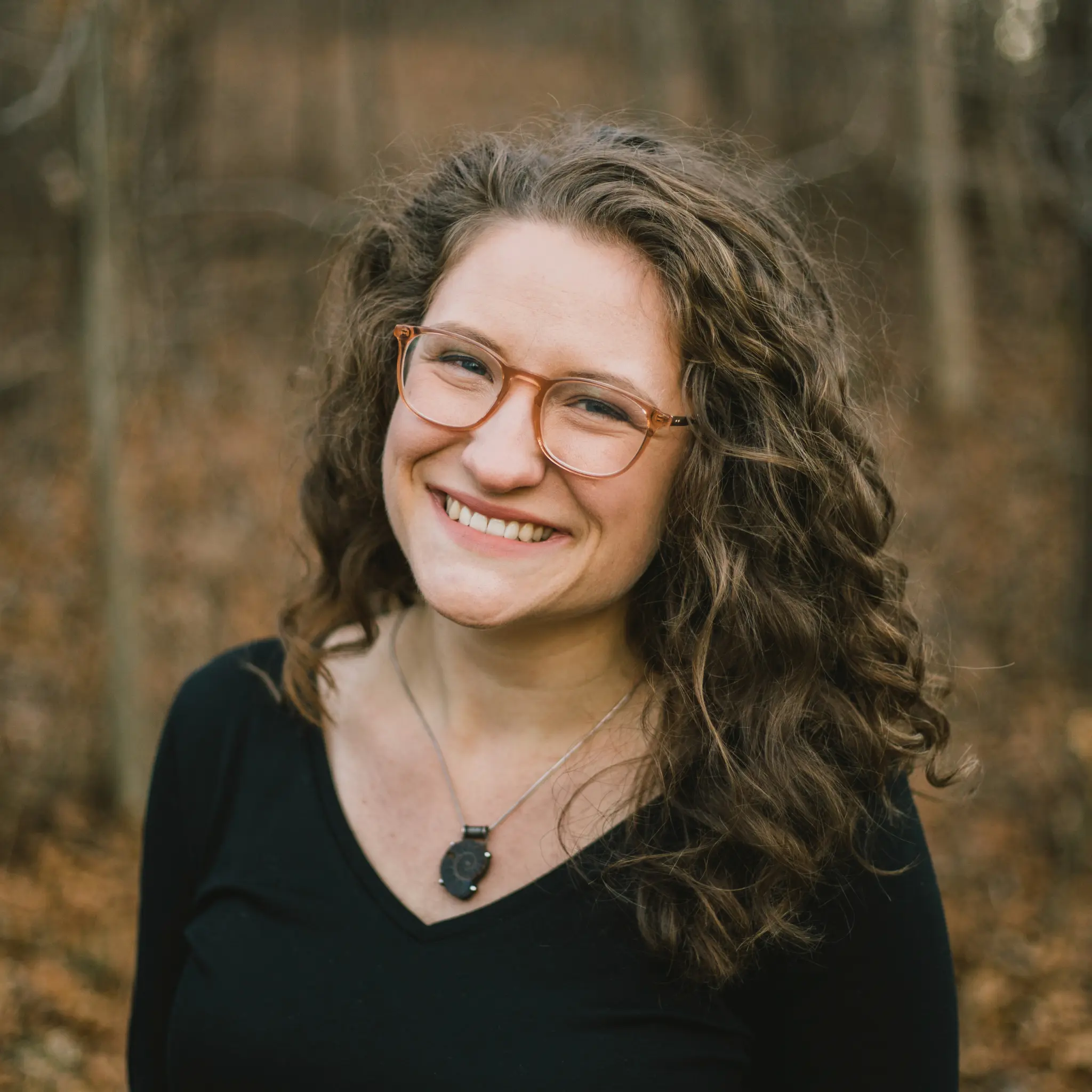
PhD, Microbiology, UC Davis
Britta Heiss has always had a passion for bacteria. Her undergraduate and graduate studies in microbiology exposed her to pivotal and inspiring research on animal health and food science applications.
At UC Davis, Heiss’ research with Dr. David Mills focuses on the development of the infant gastrointestinal microbiome, in particular the colonization of Bifidobacterium species. In breastfed newborns, human milk oligosaccharides (HMOs) contribute to beneficial growth of the bacteria and encourage complementary microbiota.
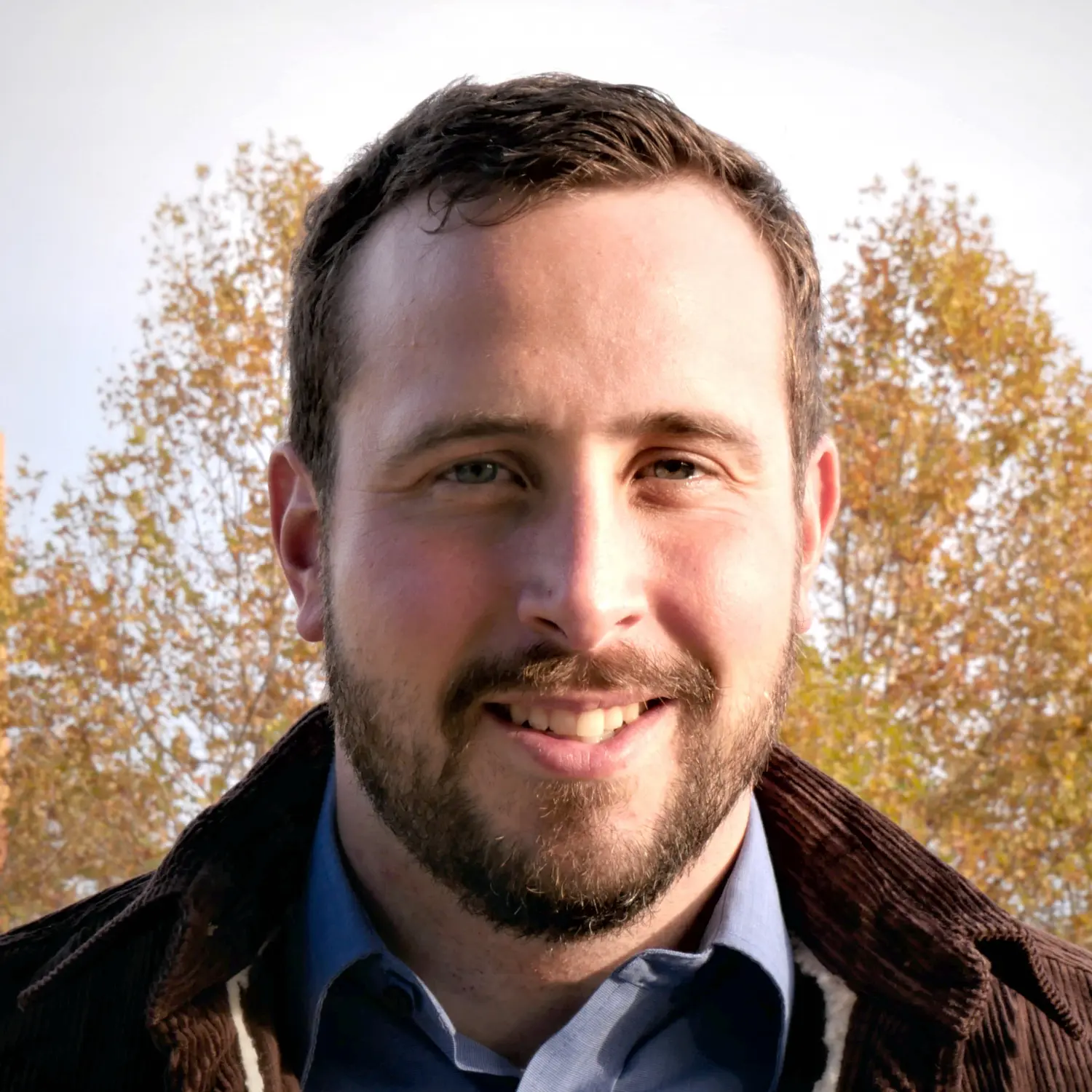
PhD, Food Science and Technology, UC Davis
Derrick Risner is a US Air Force veteran who also aims to leave his mark on the food system through enhanced sustainability practices.
His most recent work at UC Davis in the Food Science & Technology lab of Dr. Edward Spang resulted in an in-depth techno-economic assessment (TEA) of alternate animal protein production, and a first of its kind web-based computational tool for scenario-based assessment of projected costs. This cost calculator has the potential to broadly inform future activity and investment in the sector.
Derrick brings diverse expertise to his research, with an engineering technology undergraduate degree from Oklahoma State University, a master’s in Food Science & Technology from Oregon State University, and now a follow-on doctoral candidacy at UC Davis.
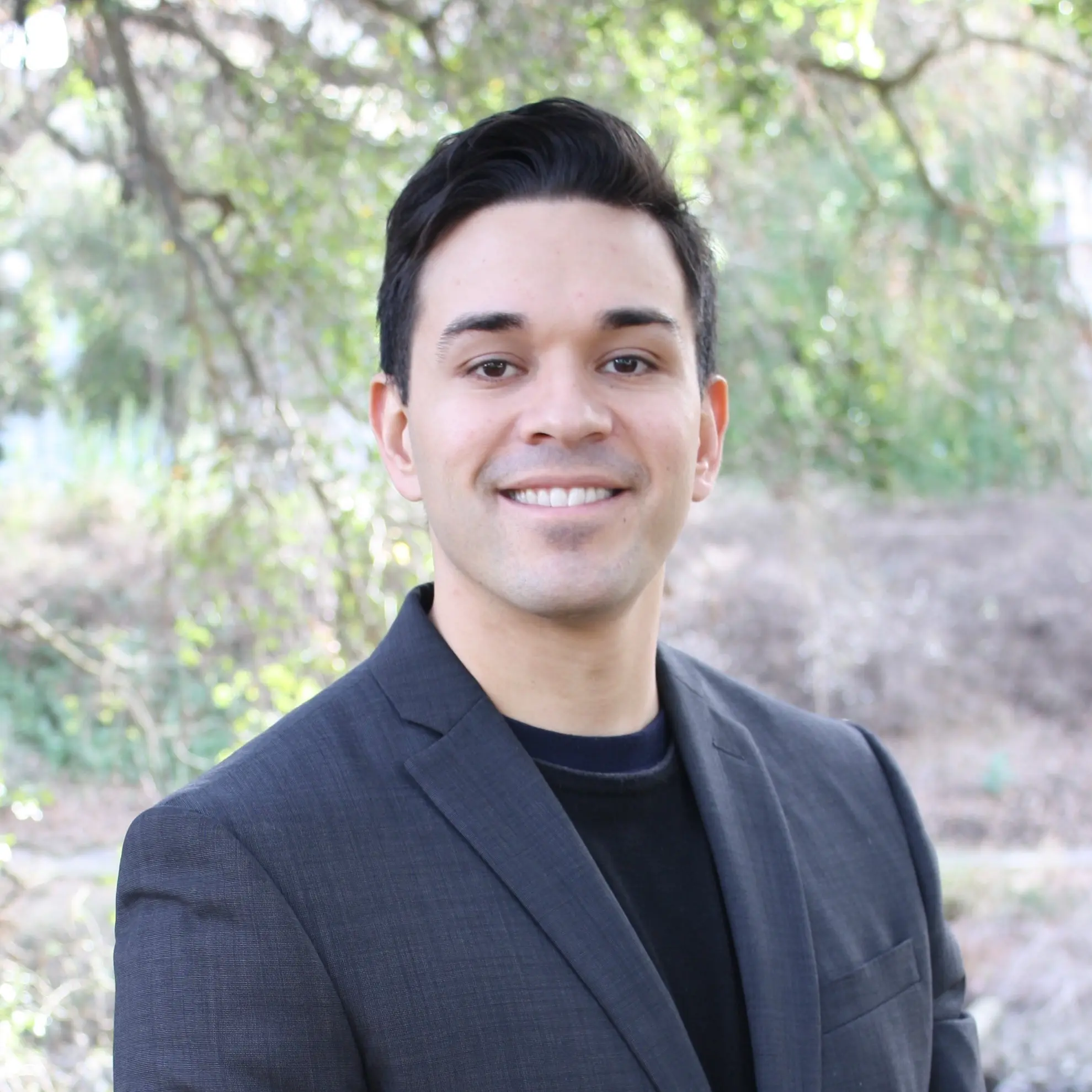
PhD, Chemistry, UC Davis
Angel Cobo has a keen ability to uncover unique multidisciplinary opportunities and innovations, with a commitment to sustainability-focused entrepreneurship. Angel’s thesis research focuses on the complexities and strategic opportunity involved in synthesizing novel molecules as potential therapeutics. As a UC Davis doctoral candidate in the Department of Chemistry, working under the guidance of Dr. Annaliese Franz, Angel has come to embrace the importance of sustainability and renewability across different disciplines.
Angel hopes to broach the ag and food industry by leveraging his technical chemistry skills, IP knowledge and entrepreneurial instincts to support disruptive technologies in this space. As an organic chemist, he is eager to put sustainability at the forefront and focus solely on alternative methods in the tech space.
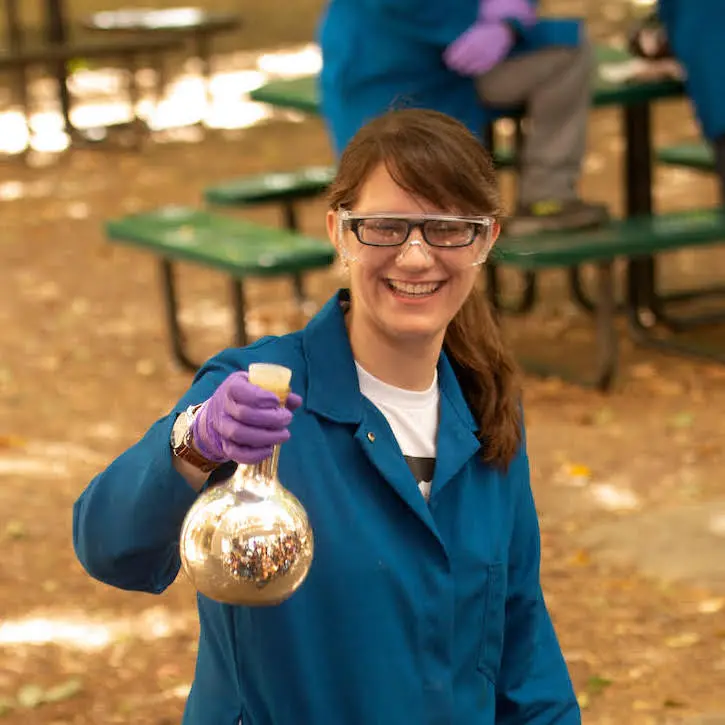
PhD, Chemistry, UC Davis
Morgan Matson has had a lifelong fascination with the power of nature’s renewable processes, concentrating on possible energy generation from biological hosts. Matson works on engineering the metabolism of E. coli to produce biofuels and other valuable chemicals with Dr. Shota Atsumi.
Morgan’s development of a hybrid electro-biochemical production system is an innovative and promising approach for producing valuable chemicals from atmospheric CO2 and renewable electricity. Using CO2 as a feedstock could potentially mitigate climate change, while providing long term resource security. In addition, this system could accelerate the growth of the renewable energy sector by providing new avenues for its application.
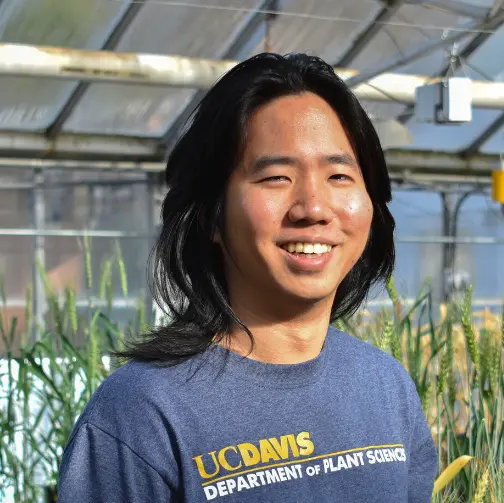
PhD, Horticulture & Agronomy, UC Davis
Pornpipat “Paul” Kasemsap has always had a passion for optimizing agricultural systems. As a PhD candidate in Horticulture and Agronomy with Dr. Arnold Bloom at UC Davis, he has come to understand the complexity of food production. Along the way Kasemsap’s higher education journey provided many opportunities to explore food production in diverse regions of the world such as Thailand, the Netherlands, and then California. Now he combines the different fields of genetics, crop physiology, and agricultural management to optimize plants as a food source.
Through his work, Kasemsap hopes to identify the plant mechanisms and genetic bases for maintaining nutritious food supplies in the face of elevating CO2. His findings should help guide on-farm nitrogen management, an element responsible for significant yield improvements during the green revolution, and aid food system sustainability into the future.

Post-doctoral researcher, Department of Entomology and Nematology, UC Davis, Chui Lab
PhD, Biological Sciences, University of Angers, France and IEES Laboratory, Pierre et Marie Curie University, Paris, France
Antoine Abrieux is an international postdoctoral scholar from France. He strongly believes in the potential of biotechnology to enhance food security and make the world a better place. Dr. Abrieux is interested to address important safety and quality challenges in the food, beverage, biofuel, and pharmaceutical industries. Through collaboration he sees that diversification of biotechnologies has great potential to produce biopesticides that influence insect behavior and physiology instead of controlling through insecticides.
As a scientist with 10 years of research experience, Dr. Abrieux developed an expertise in insect physiology, molecular biology and genetics to tackle problems related to crop production sustainability and food security by translating basic research into applied solutions. With a profound interest for the development of innovative approaches in biotechnology he is now using his scientific skillset to position IIFH at the center of meaningful and engaging conversations at the nexus of food and health.
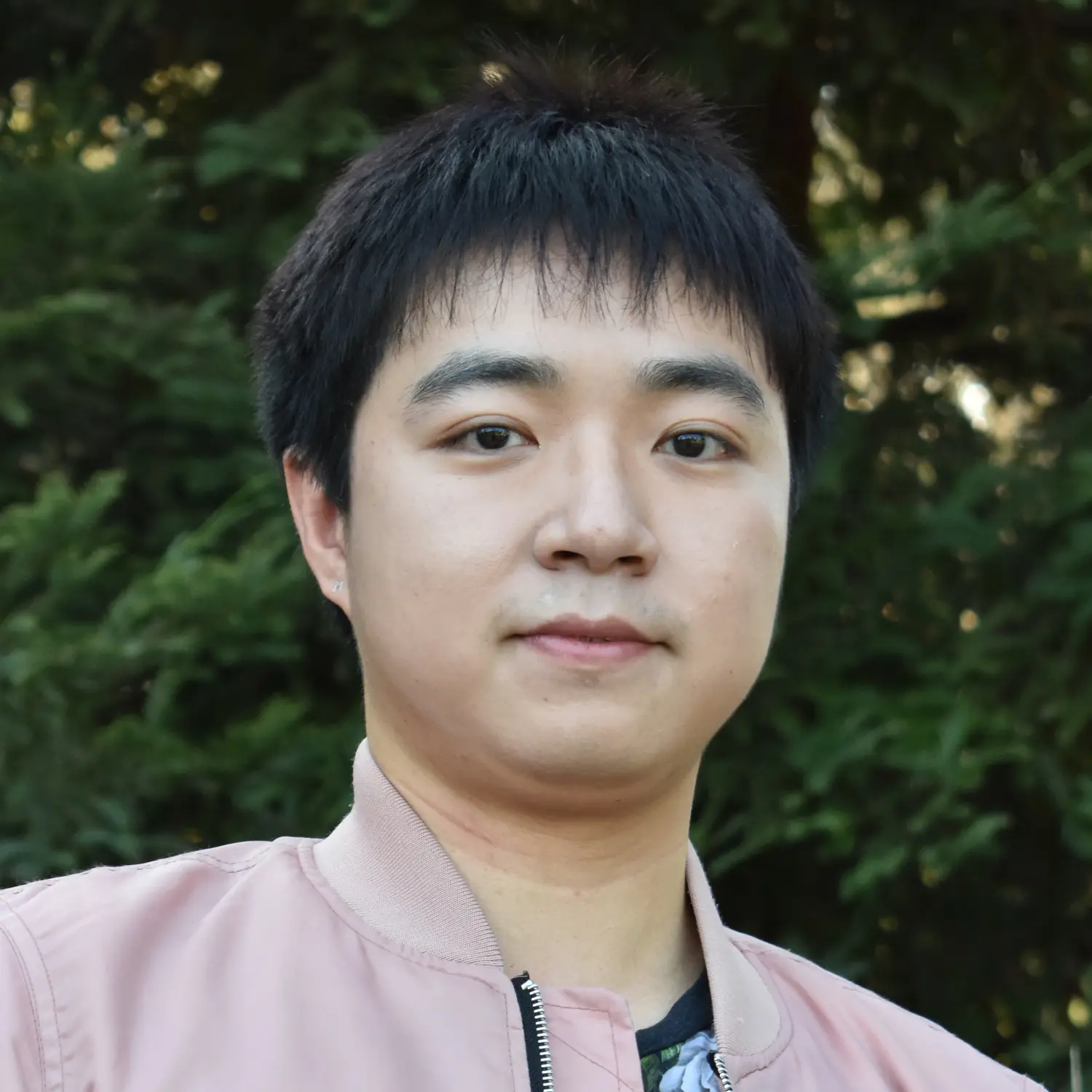
PhD, Biological System Engineering, UC Davis
Professor Pan’s Research Group
Xingzhu has a strong background in food engineering, food science, and biological science. He creates sustainable dietary supplements from fruit peels that would otherwise be waste by-products from fruit and juice consumption. He is fascinated by food processing and plant-based bioactive compounds, and specifically focuses on pomegranate antioxidants and fibers.
Through is work with Dr. Zhongli Pan in Biological System Engineering at UC Davis, Xingzhu is inspired to use his food engineering expertise to reduce food waste and empower nutrition accessibility worldwide. Before joining the UC Davis innovator community, Xingzh earned his Bachelor of Engineering in Food Science and Technology from Zhejiang University – one of China’s oldest, most selective, and most prestigious institutions.
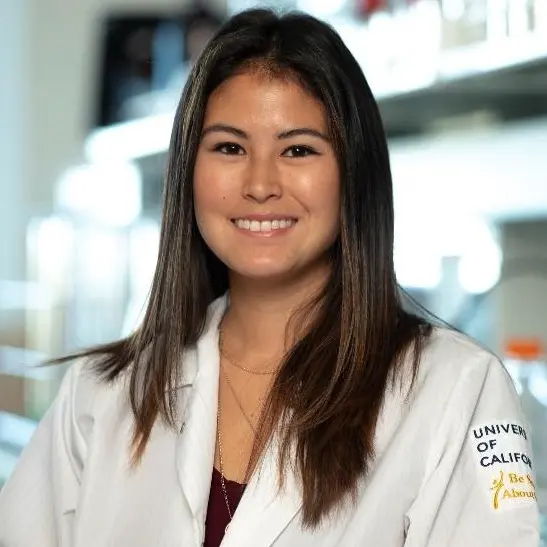
PhD, Animal Biology, UC Davis
Tawny Scanlan is concerned for the nutrition and food security challenges facing the international community. The global human population is projected to reach approximately 9.7B by 2050, and she proposes that aquaculture – the production and harvesting of plants and animals in water environments for food – could present an efficient solution for protein production and relieve wild harvesting pressures.
Through her work at the UC Davis School of Veterinary Medicine: Department of Anatomy, Physiology, and Cell Biology as a Graduate Student Researcher for Meyer’s Lab, Scanlan studies the impacts of global climate change on larval and juvenile rainbow trout gonadal development as a model for at-risk salmonids for developing reproductive biotechnologies to maximize genetic diversity in salmonid and sturgeon species for conservation biology and aquaculture production.
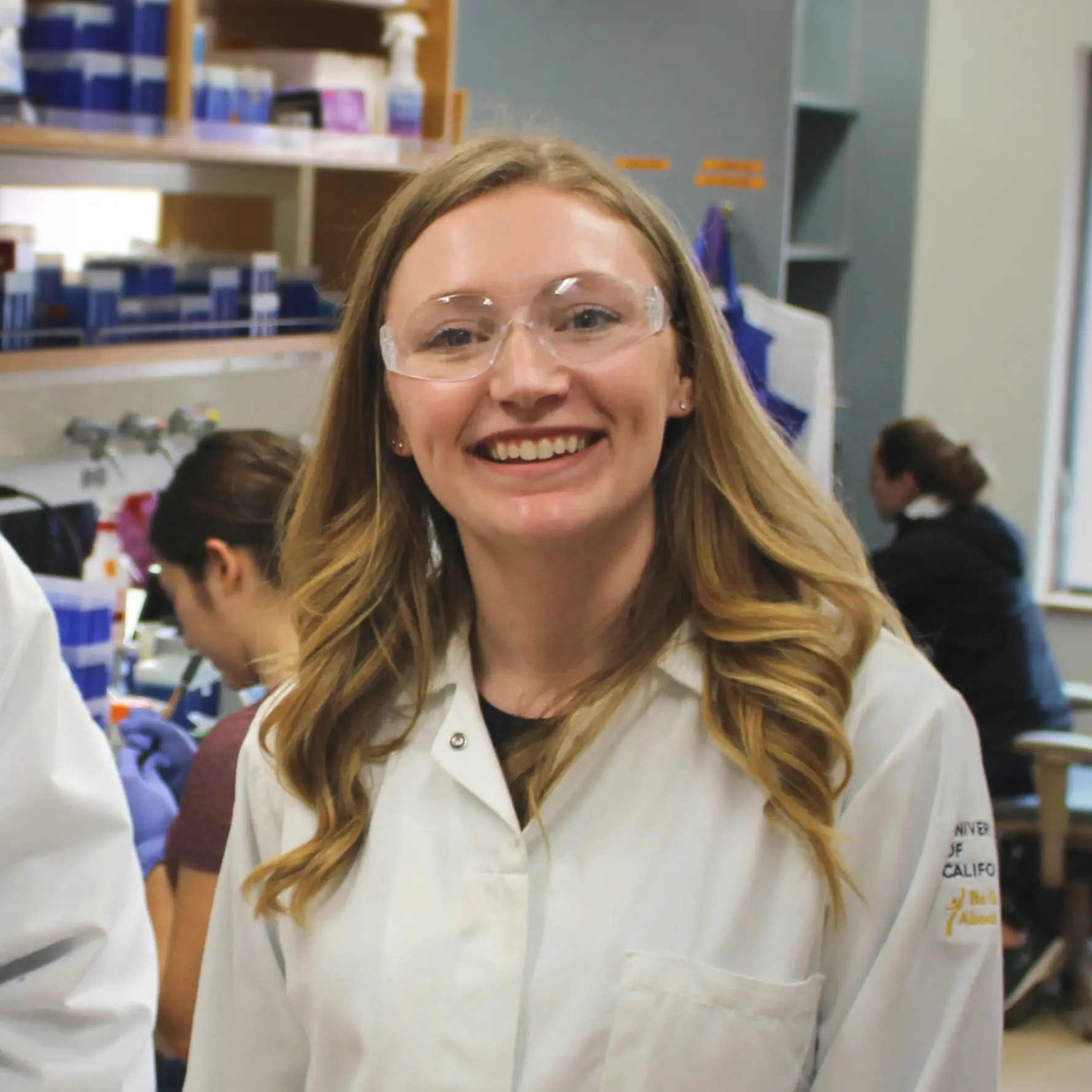
PhD, Plant Biology, Designated Emphasis in Biotechnology, UC Davis
Katherine “Katie” Murphy has dedicated her undergraduate and graduate studies to the biochemical defense systems of maize in the hopes of generating more resilient plants and products that can feed a growing global population.
As a PhD candidate in Plant Biology with a Designated Emphasis in Biotechnology, Murphy’s current work deepens our understanding of the naturally occurring antibiotic mode of action in maize. In the laboratory of Dr. Philipp Zerbe, Assistant Professor of Plant Biology at UC Davis, she uses functional genomics, metabolomics, biochemical, and genetic approaches to develop sustainable solutions for agricultural and bioproduct applications.
Since beginning her doctoral work in the Zerbe Lab, Murphy’s passion for the chemistry of plants has won her a series of honors and awards, including the Dean’s Mentorship Award, the Eric Conn Biochemistry Award, the Stocking Fellowship, and most recently the GradSlam Competition. Murphy previously received her BS in Chemistry, with Honors, from Stanford University.
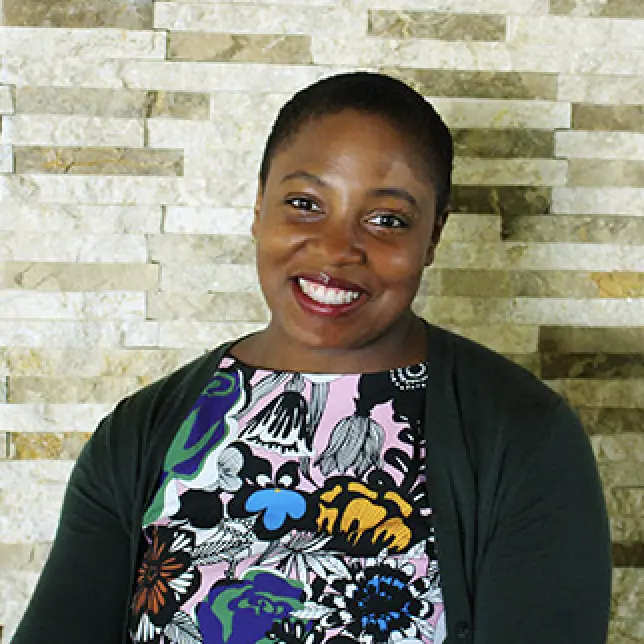
PhD, Biological Systems Engineering, UC Davis
Adina’s comprehensive PhD work in upstream development and downstream application of biochar soil mediation draws on extensive engineering expertise in biodiesel production, transportation management and waste treatment, as well as a personal love of agriculture in a global context that honors diverse cultural perspectives.
Adina is enthusiastically seeking ways to enhance the productivity and sustainability of agriculture and affected ecosystems. Her work with Dr. Bryan M. Jenkins, Distinguished Professor and Chair of the Department of Biological and Agricultural Engineering, directly addresses the longterm maintenance of soils for sustainable food production while simultaneously influencing markets for renewable energy through coproduct utilization, reducing waste, and potentially increasing carbon storage to mitigate greenhouse gas emissions.
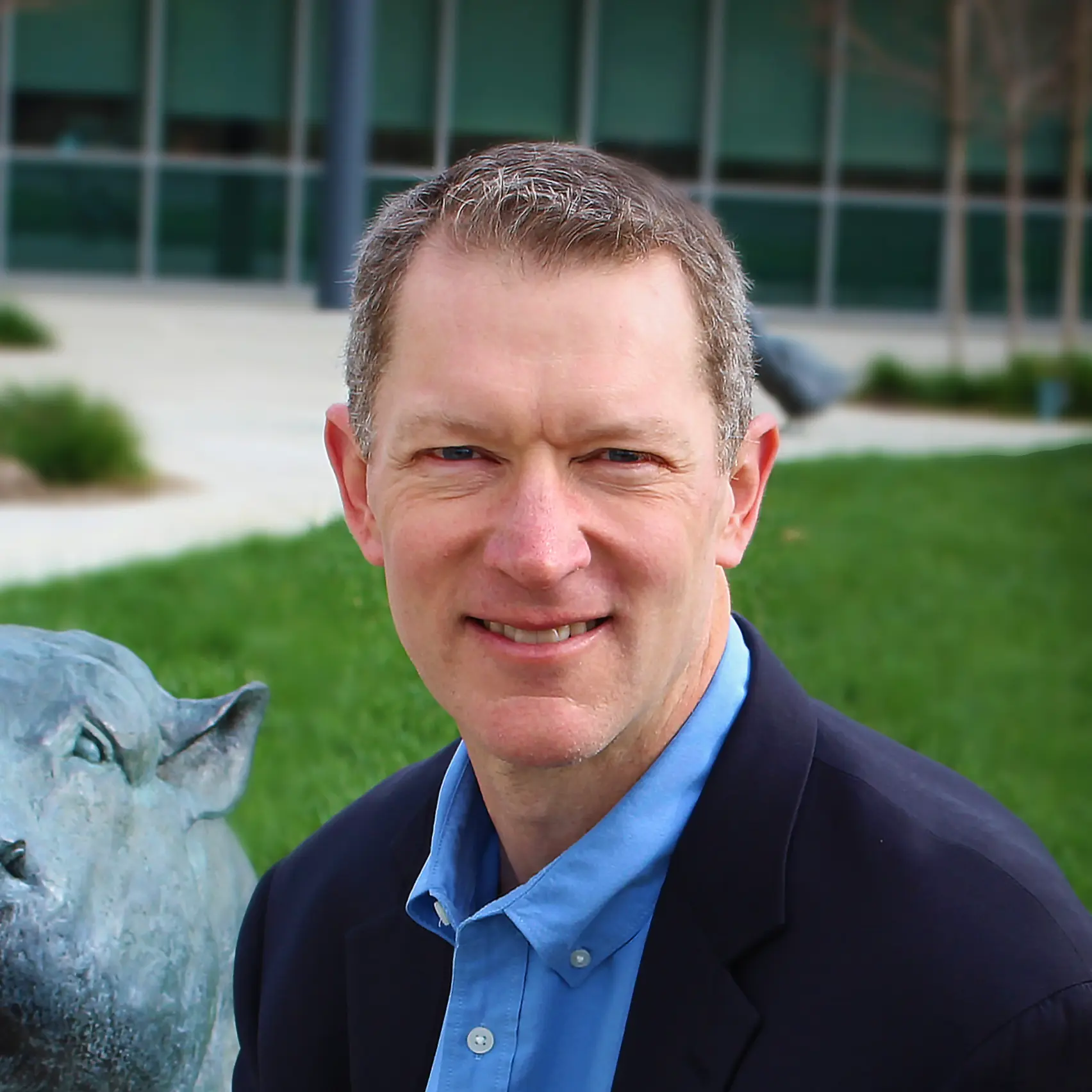
PhD, Applied Mathematics, UC Davis
Before joining the doctoral program, Sollers worked in IT security and risk management for over a decade with PwC and Ernst & Young, collectively. Previously, he received his MSc in Computer Science at Cornell University and his BS in Electrical Engineering at UC Davis.
Sollers doctoral work at UC Davis utilizes machine learning techniques to improve precision epidemiology for livestock. With Dr. Beatriz Martínez López, Associate Professor of Medicine and Epidemiology, and Director of the CADMS at UC Davis, Sollers works to develop effective analytical methods, prediction models, and decision tools for detecting and mitigating swine diseases such as Porcine Reproductive and Respiratory Syndrome (PRRS).
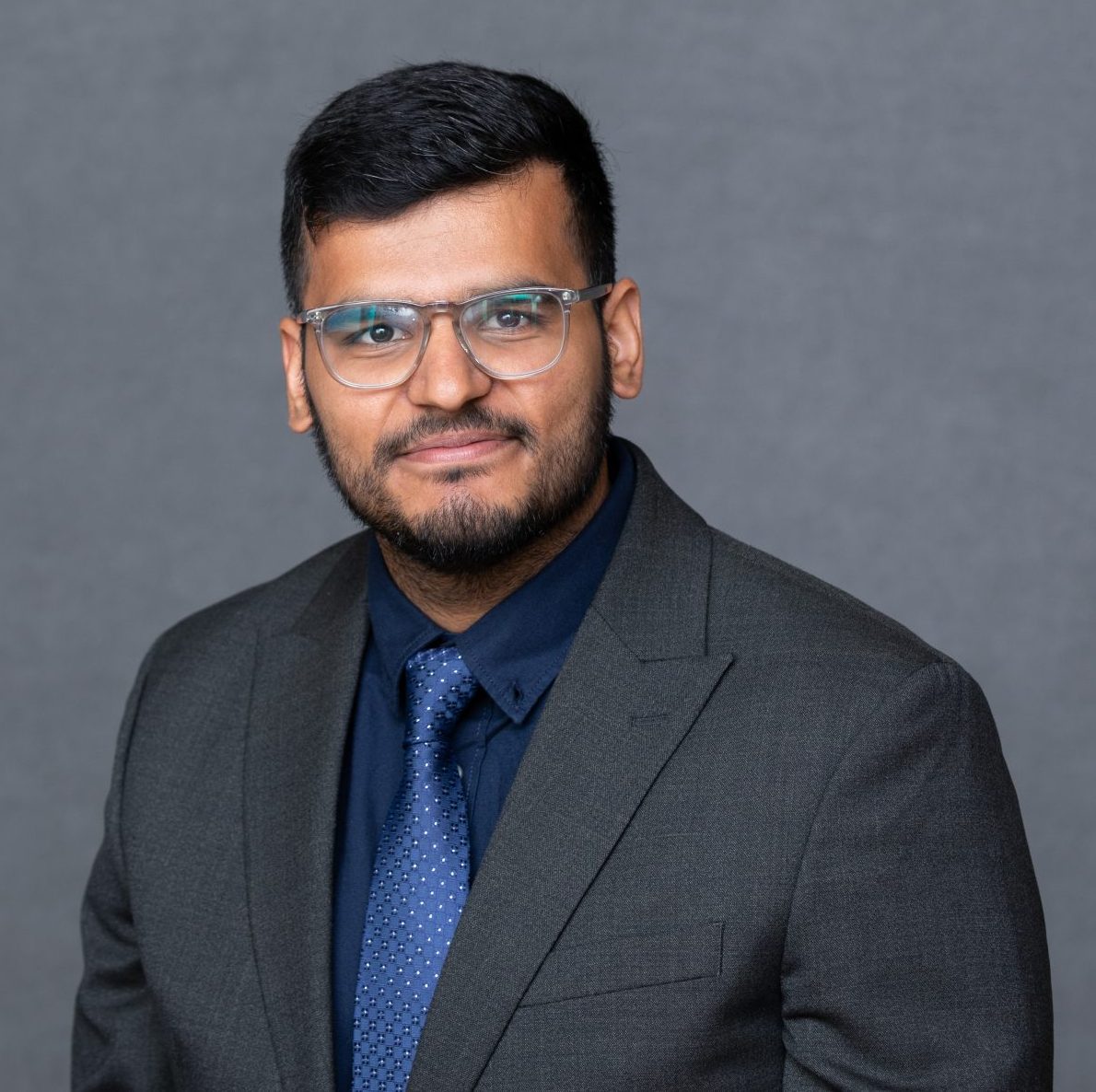
Hitesh Bali is a marketing and business development professional with a strong interest in helping new ideas grow—especially in the areas of food, health, and technology. He has over six years of experience working in different industries, including education technology, software, and healthcare, both in India and the U.S. During this time, he has led teams, helped companies grow their sales by over $10 million, and built smart strategies to reach more customers.
Now, as an MBA student at UC Davis, Hitesh is focused on using his skills to support innovation in food and health. He enjoys working with research-based startups and helping them understand customer needs, find the right target audience, and bring their products to market successfully.
As part of his Food & Health Entrepreneurial Fellowship, Hitesh is helping with the development of AminoSense—a tool that measures amino acid levels in the body to support muscle growth and better health.
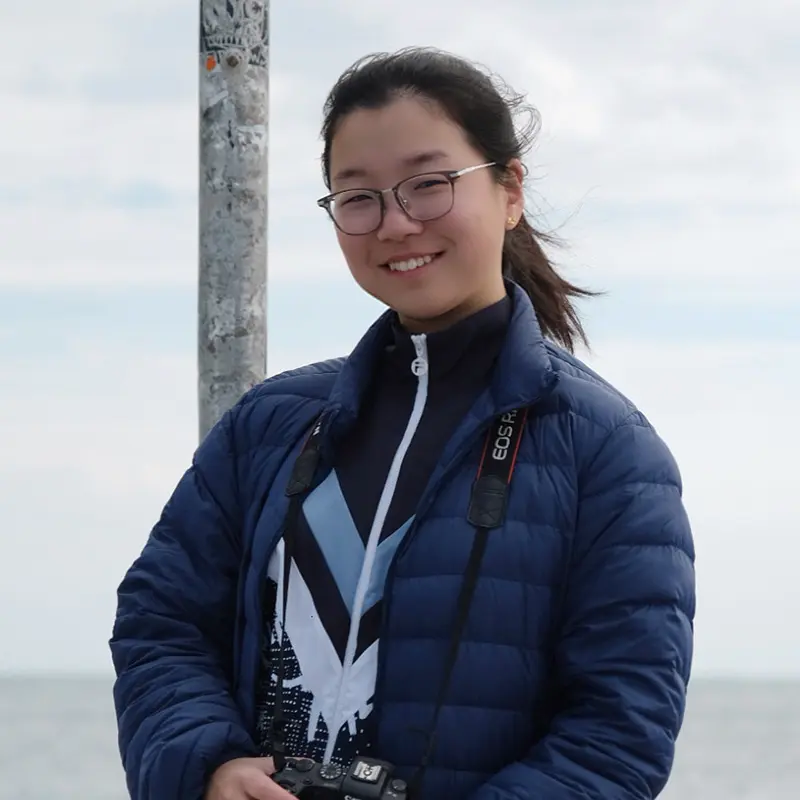
Poll Zhang is an impassioned researcher dedicated to exploring the field of Food Science with a keen focus on addressing the pressing issues in agricultural sustainability and discovering a deeper correlation between Food Chemistry and future commercialization.
As an undergraduate student in the Department of Food Science and Technology with Dr. Alyson E. Mitchell, Poll is driven to use almond shells as inexpensive agricultural waste and abundant bio-absorbent for the purification of winery wastewater, a contributor to ecological degradation of plants and soil microorganisms. Beyond alleviating environmental impact, Poll recognizes the potential value in utilizing the recovered extracts as an affordable and sustainable source to enhance the antioxidant properties of future food products innovatively.
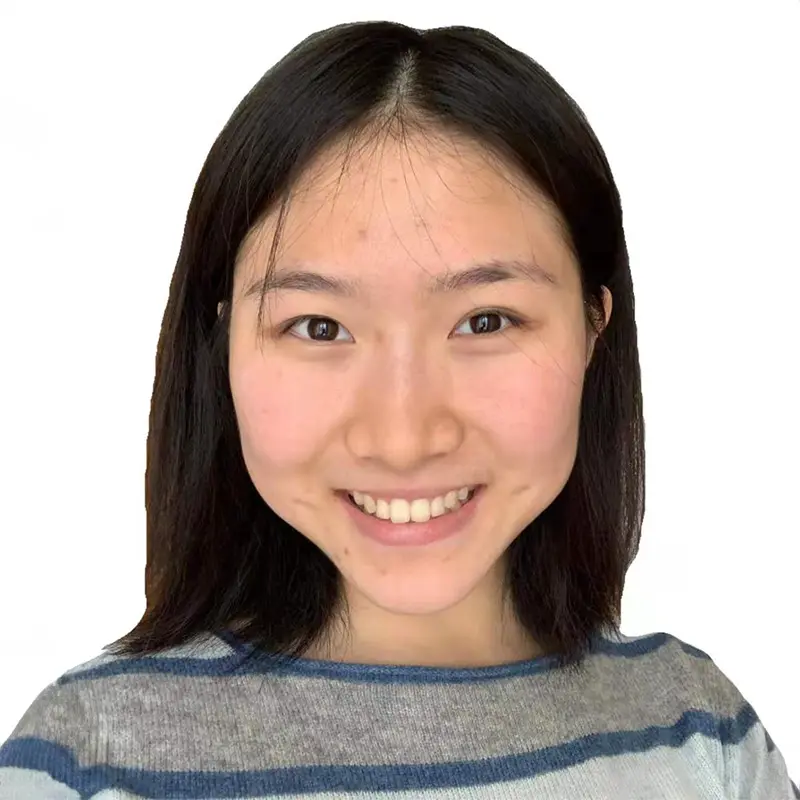
Emily is a senior majoring in Clinical Nutrition at UC Davis. Her research at IIFH focuses on the impact of dietary components on cardiovascular health. She investigates the effects of flavonoids like epicatechin on heart function and explores the maternal diet’s influence on cardiac development in animal models. Emily aims to bridge research with real-world dietary recommendations.
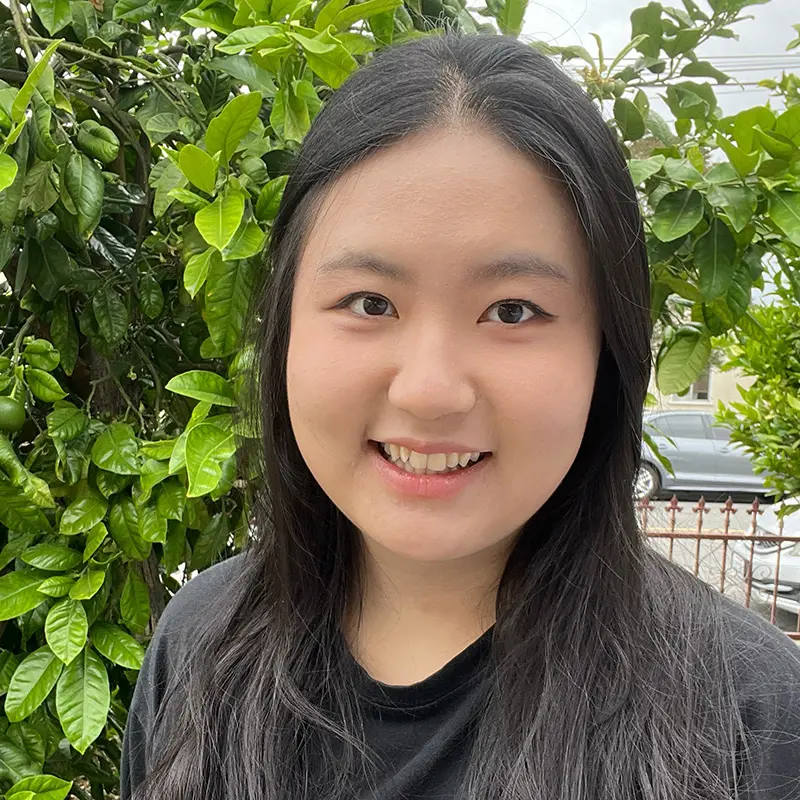
Kelly Zhaozhao is involved in research within the Lonnerdal Lab, focusing on pediatric nutrition that benefits absorption and improves health quality for infants. Since infant formula is the primary source of nutrition for non-breastfeeding infants, it plays a crucial role in their growth. For the innovatory fellowship, Kelly’s primary focus is on comparing lysozyme in breast milk with infant formula feeding and understanding how lysozyme functions and benefits children. After examining the disparities and health outcomes related to lysozyme, the goal is to improve infant formula by increasing its lysozyme concentration, as bovine milk has been found to have a lower concentration of this enzyme.
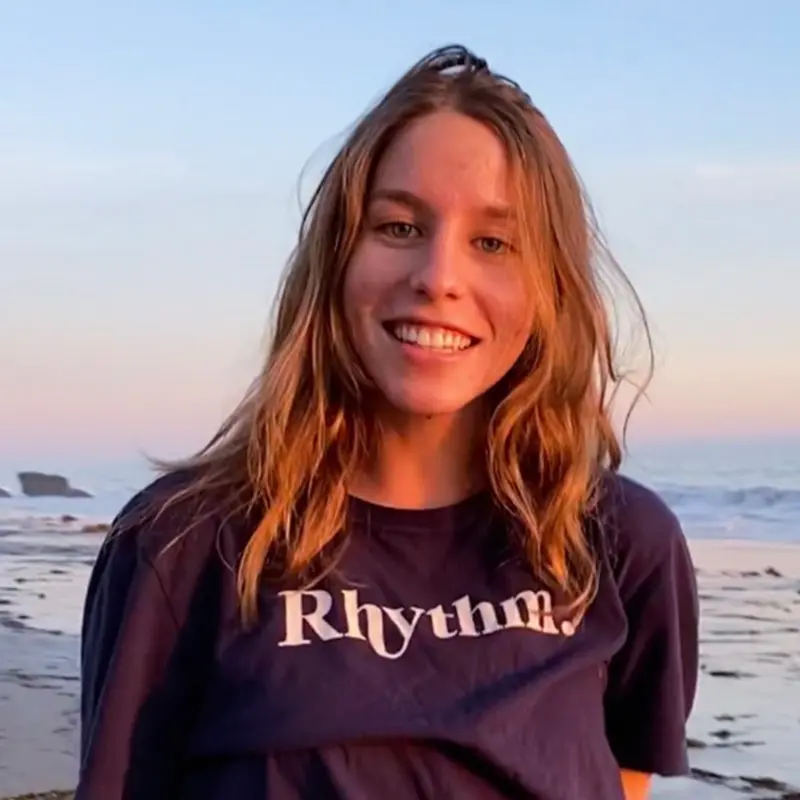
Olivia Torres is a 2024 research fellow and is entering her fourth year of the Clinical Nutrition program at UC Davis. She is passionate about interindividual differences in the metabolism of foods and how understanding these differences can impact our approach to many diseases. As an undergraduate researcher in Dr. Slupsky’s lab, Olivia has had the opportunity to assist on a variety of projects related to maternal and child health, through which she has developed a range of skills. Due to the nature of some of these project models, there is an opportunity to develop a novel, environmentally friendly feed additive to improve the health of animals. Olivia is highly passionate about research within the food and agricultural system and the potential to bring this research and its ideas into society.
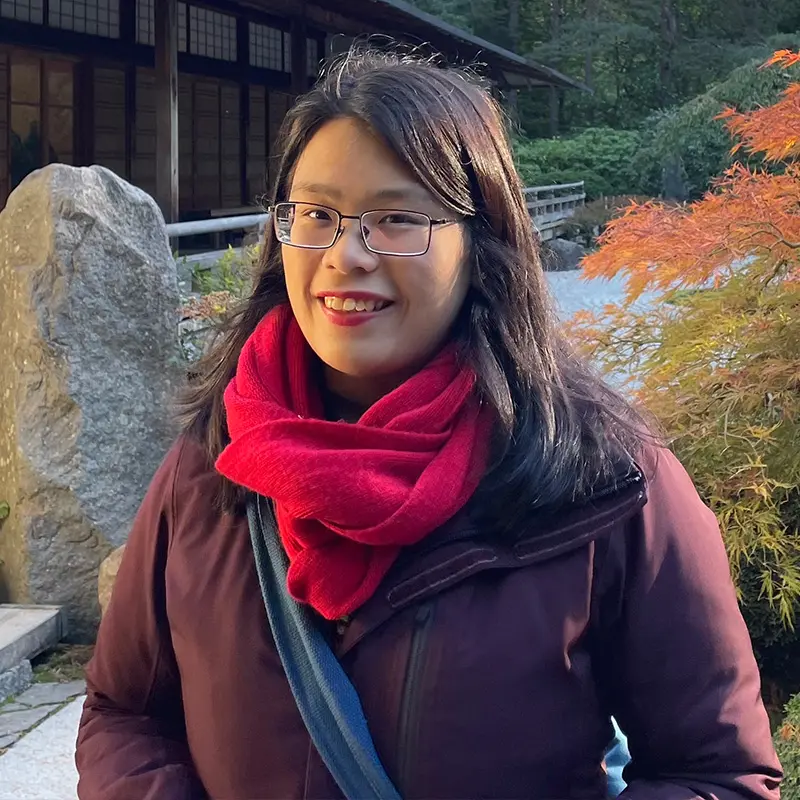
Rachel Shey completed her project for IIFH in the Bruce D. Hammock Lab. She worked on optimizing a nanobody-based enzyme-linked immunosorbent assay (ELISA) to detect aflatoxin B1, a potent mycotoxin produced by Aspergillus flavus, in cannabis. Since she was not able to obtain permission to use actual cannabis, she used a matrix of hemp, which is comparatively low in THC, to simulate cannabis. Rachel presented this project at the 2023 R. Bryan Miller Symposium, the 2023 Richard Larock Conference, and the 2023 Undergraduate Research Scholarship and Creative Activities Conference (URSCA). She won the AMPAC Undergraduate Poster award, the Francesca Miller Undergraduate Award, and best poster in the category of Physical/Analytical Chemistry. Rachel is graduating from UC Davis in three weeks with a BS in Entomology and a minor in Chemistry. In the fall, she will begin her Chemistry PhD program at Rice University.
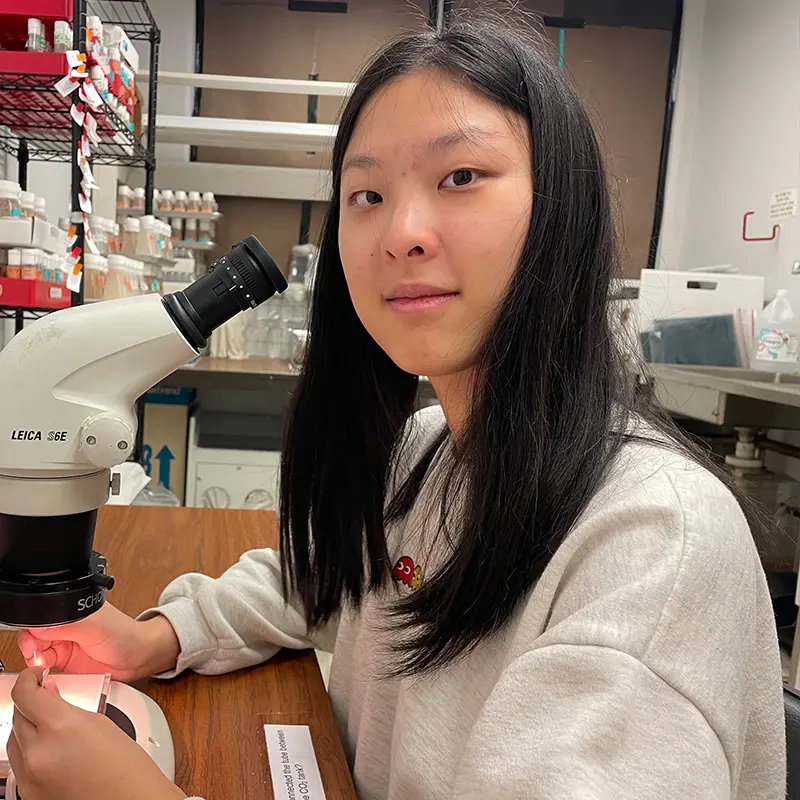
Alice Meng recently graduated from UC Davis with a B.S. in Biological Sciences. Currently, Alice is interested in understanding the role of nutrient-dependent mechanisms in regulating circadian and sleep behaviors. In the future, Alice intends to pursue a career in health-related research in the biotechnology sector.
Our team is here to help! Feel free to send any questions regarding the Innovator Fellowship to [email protected].